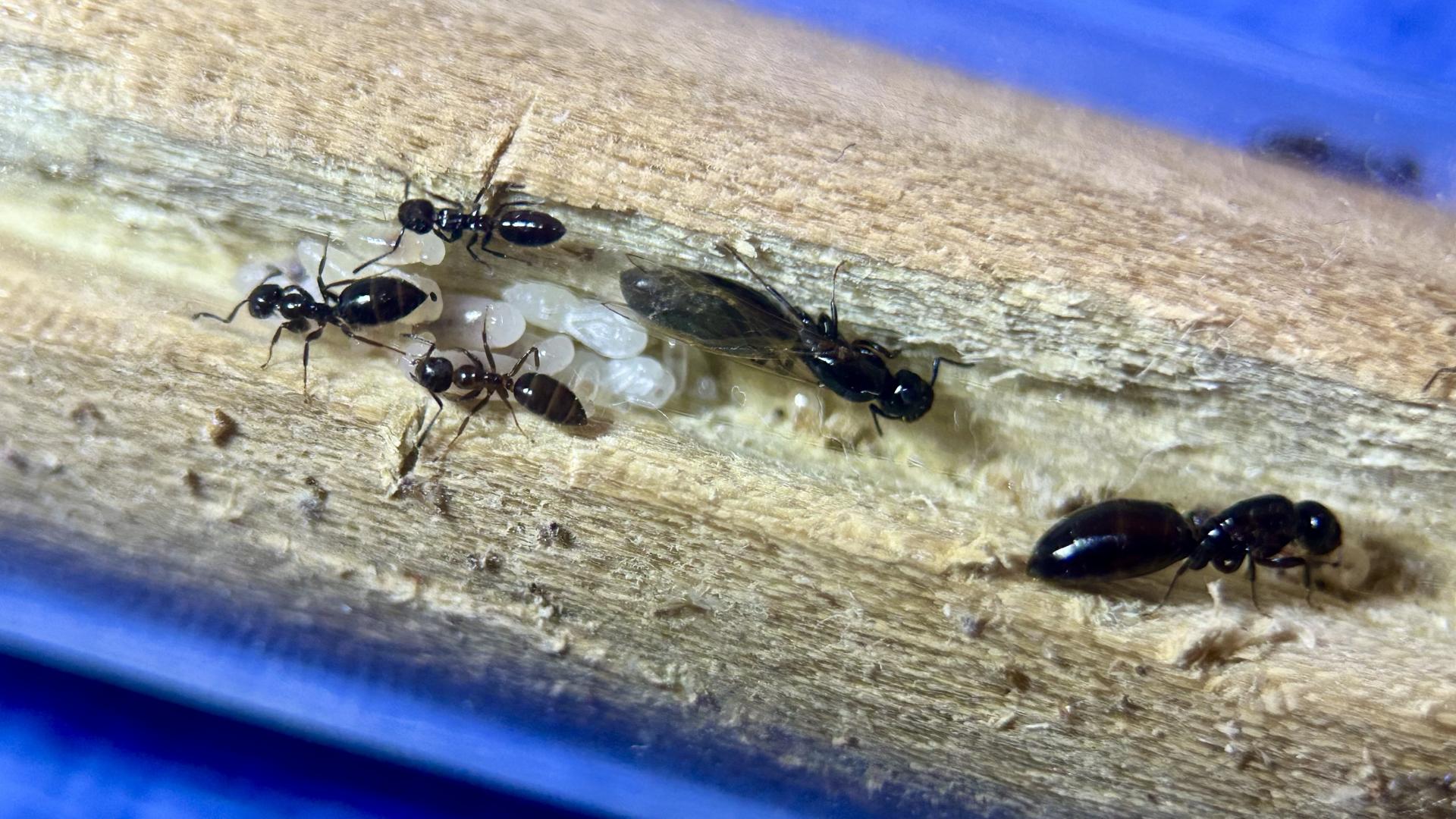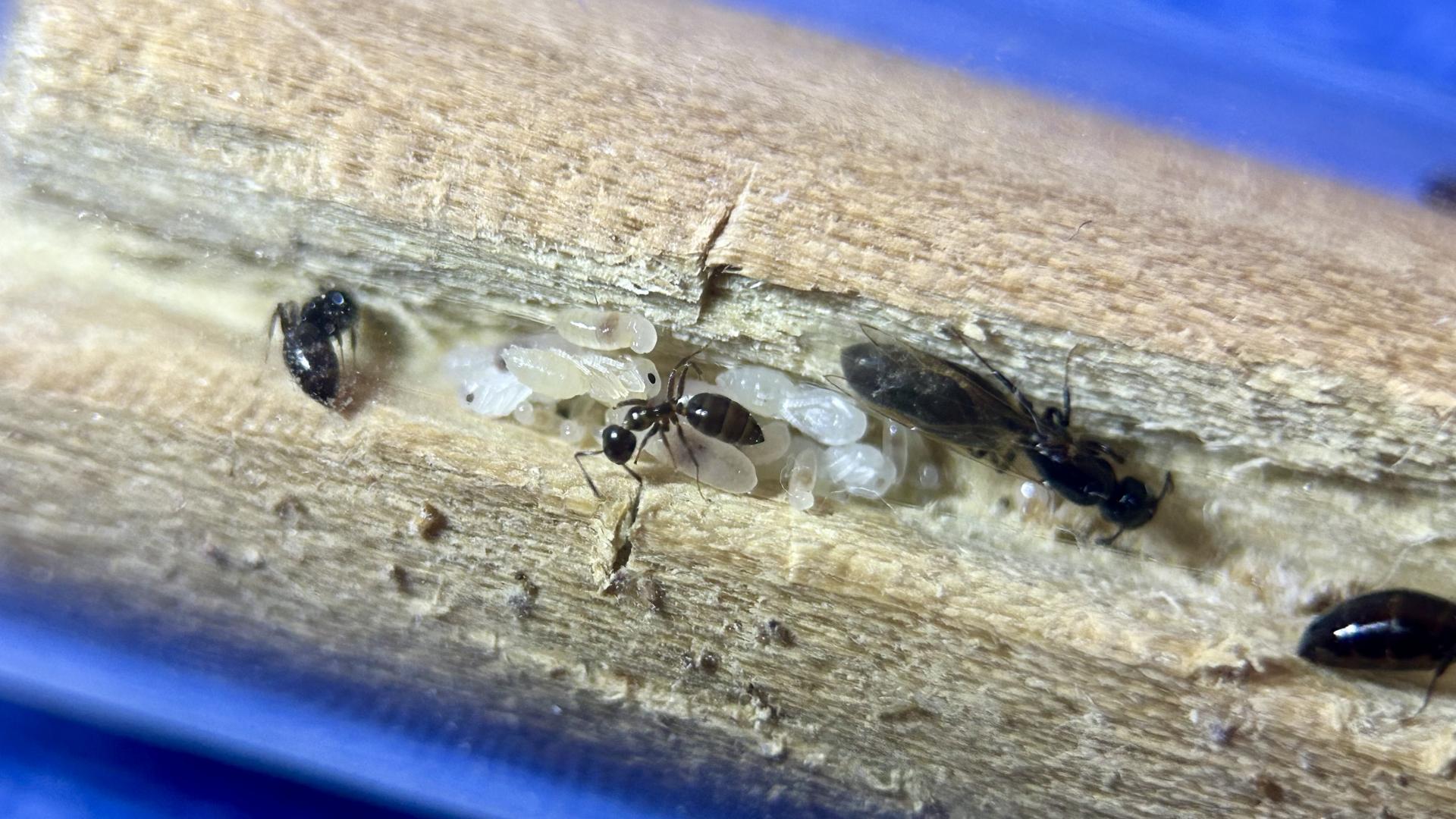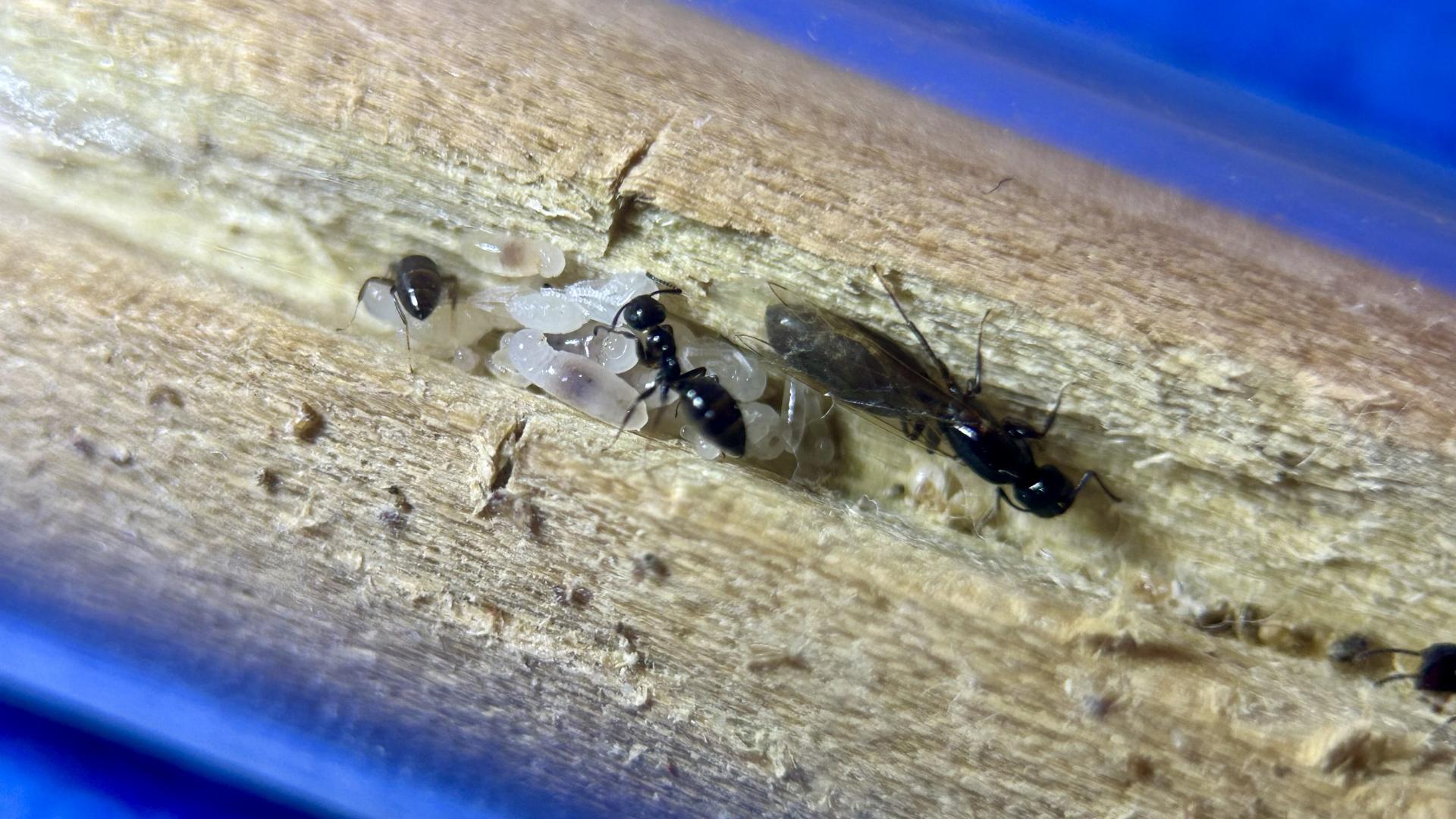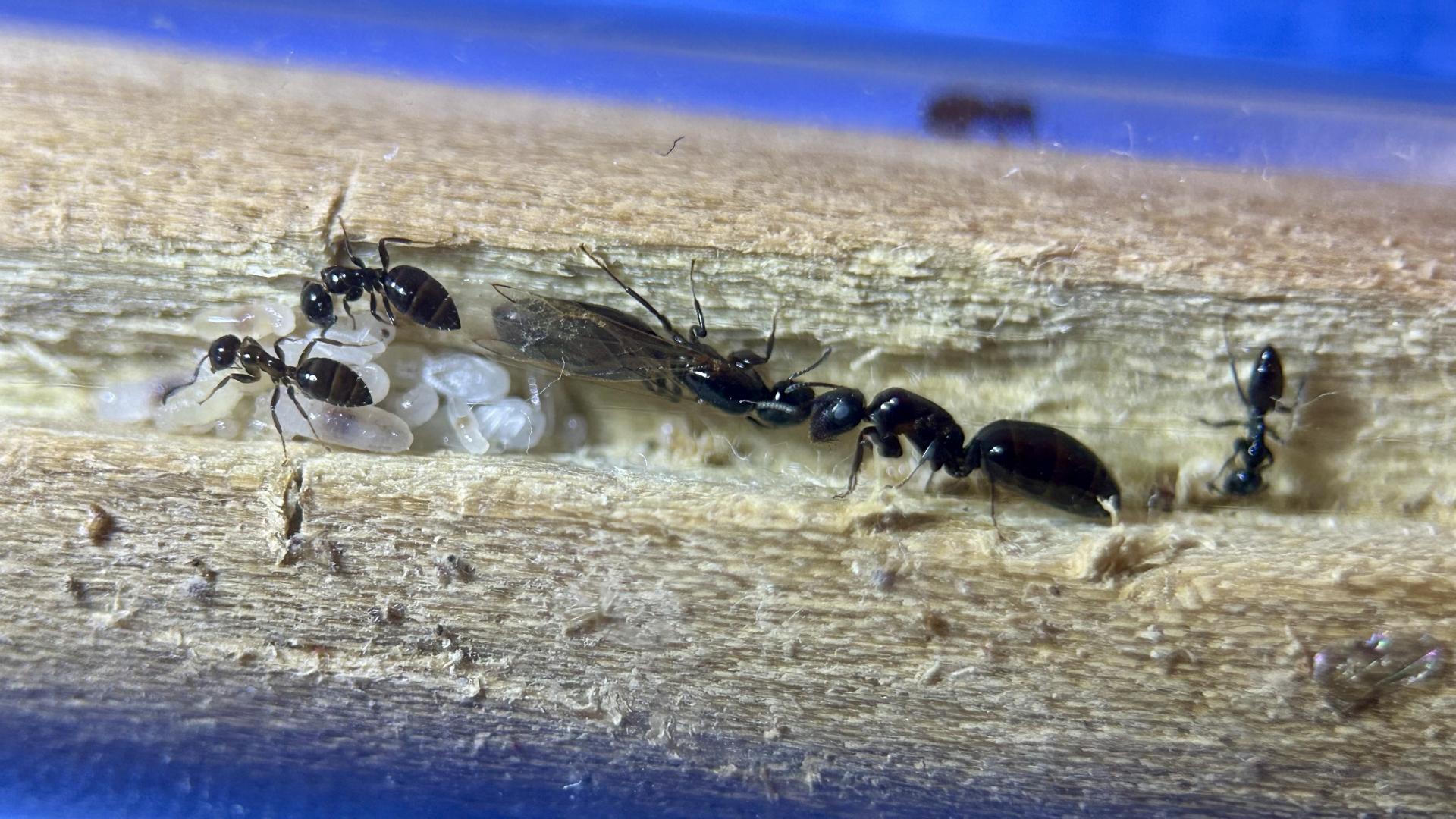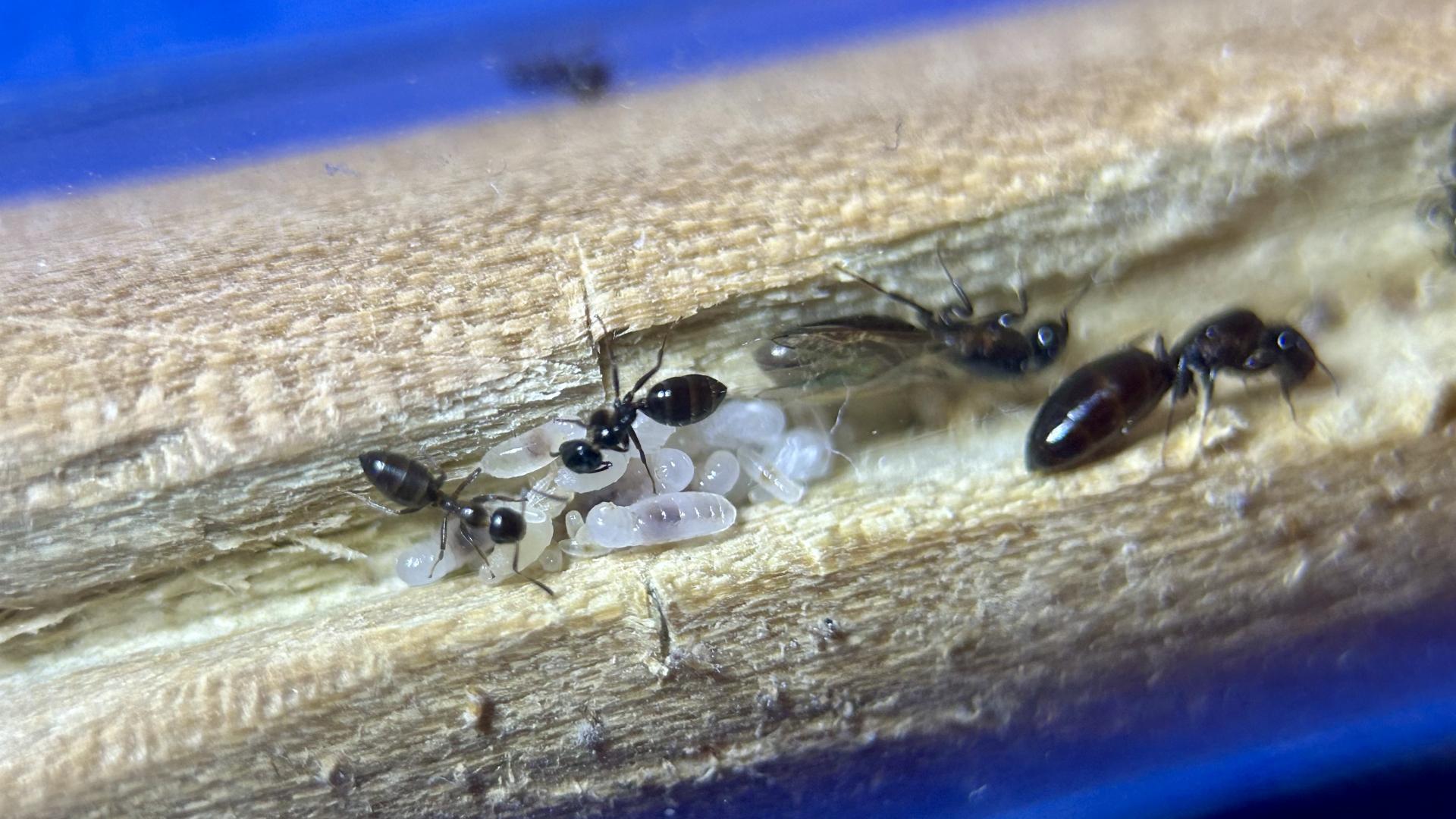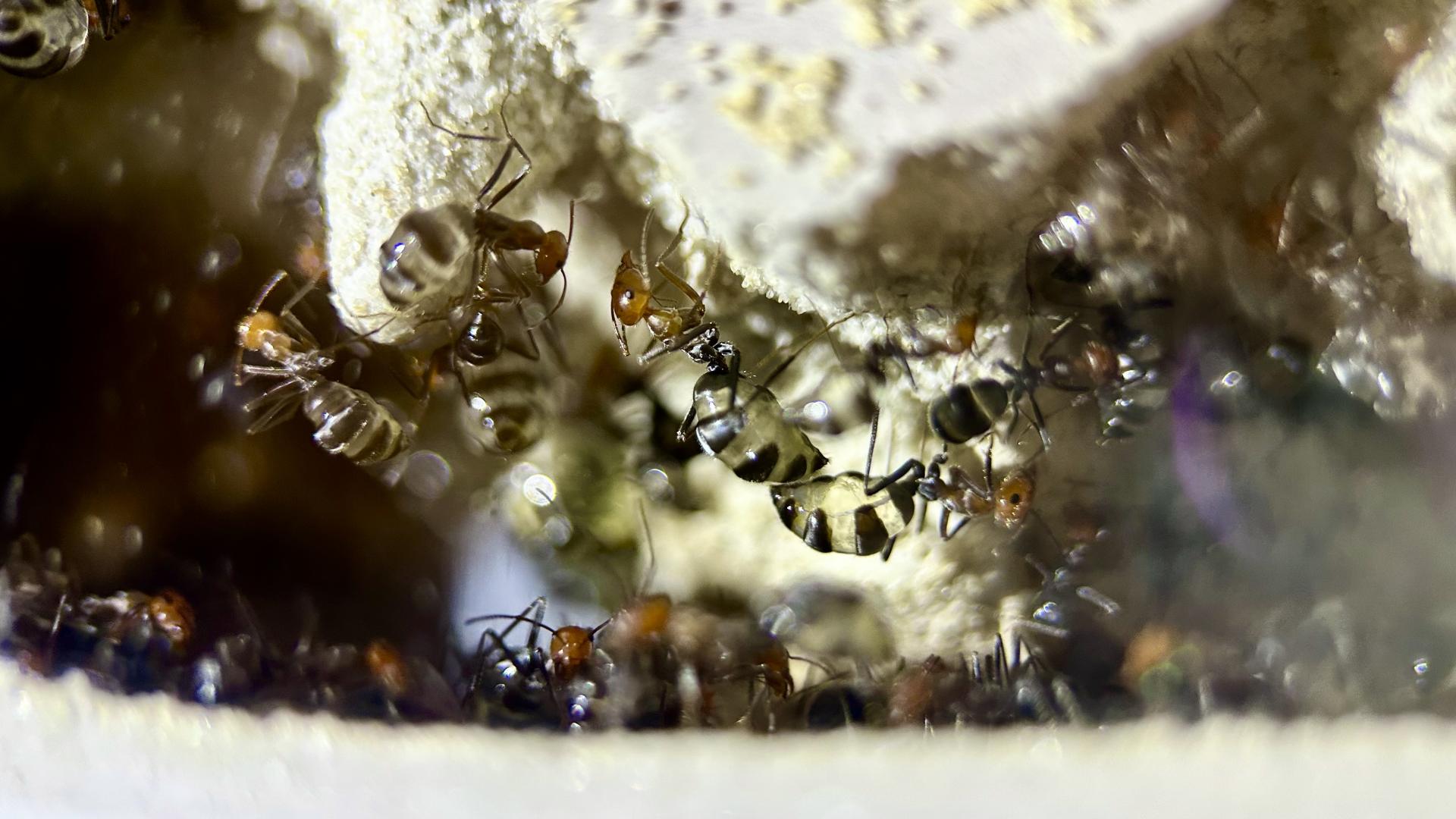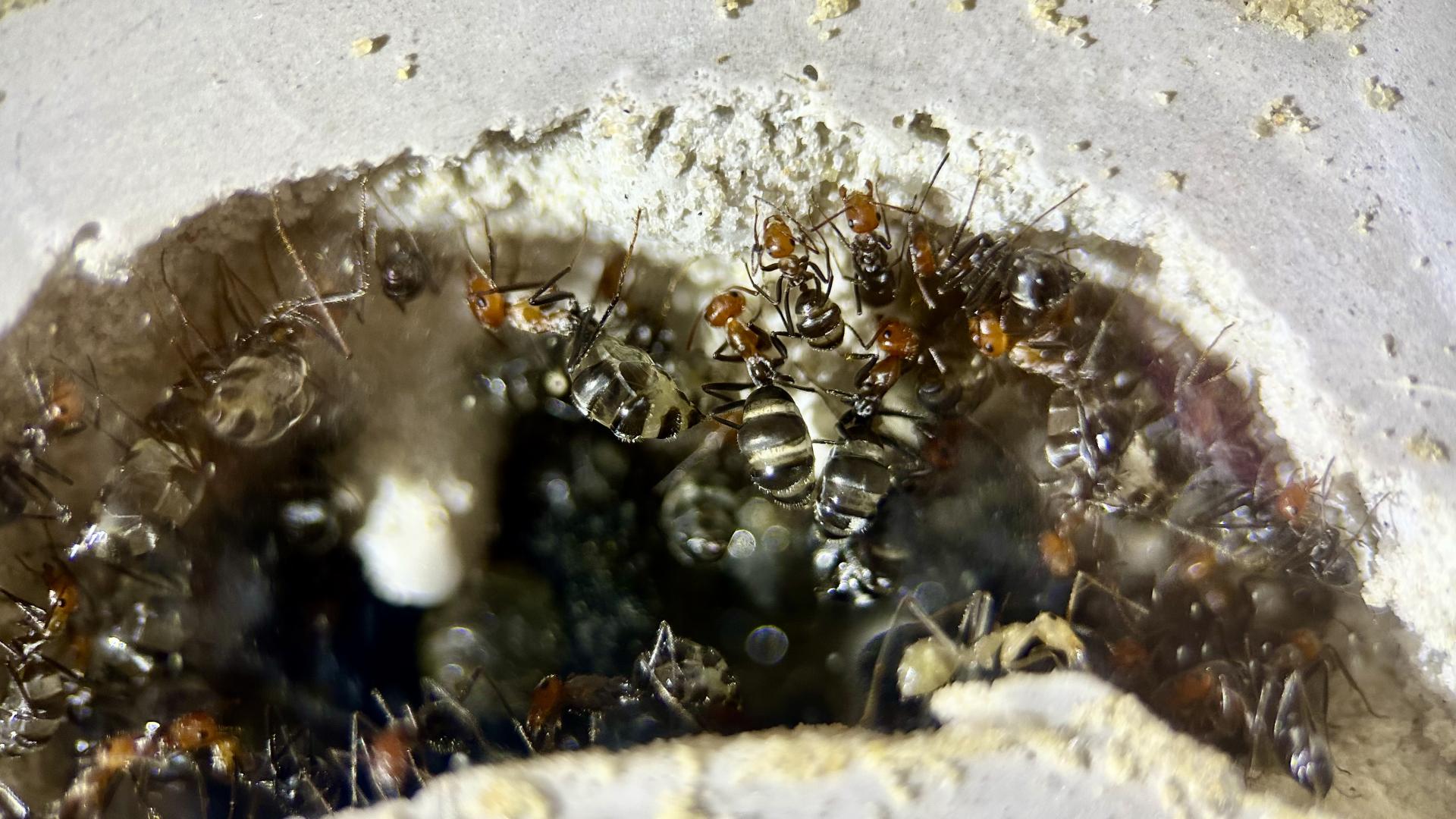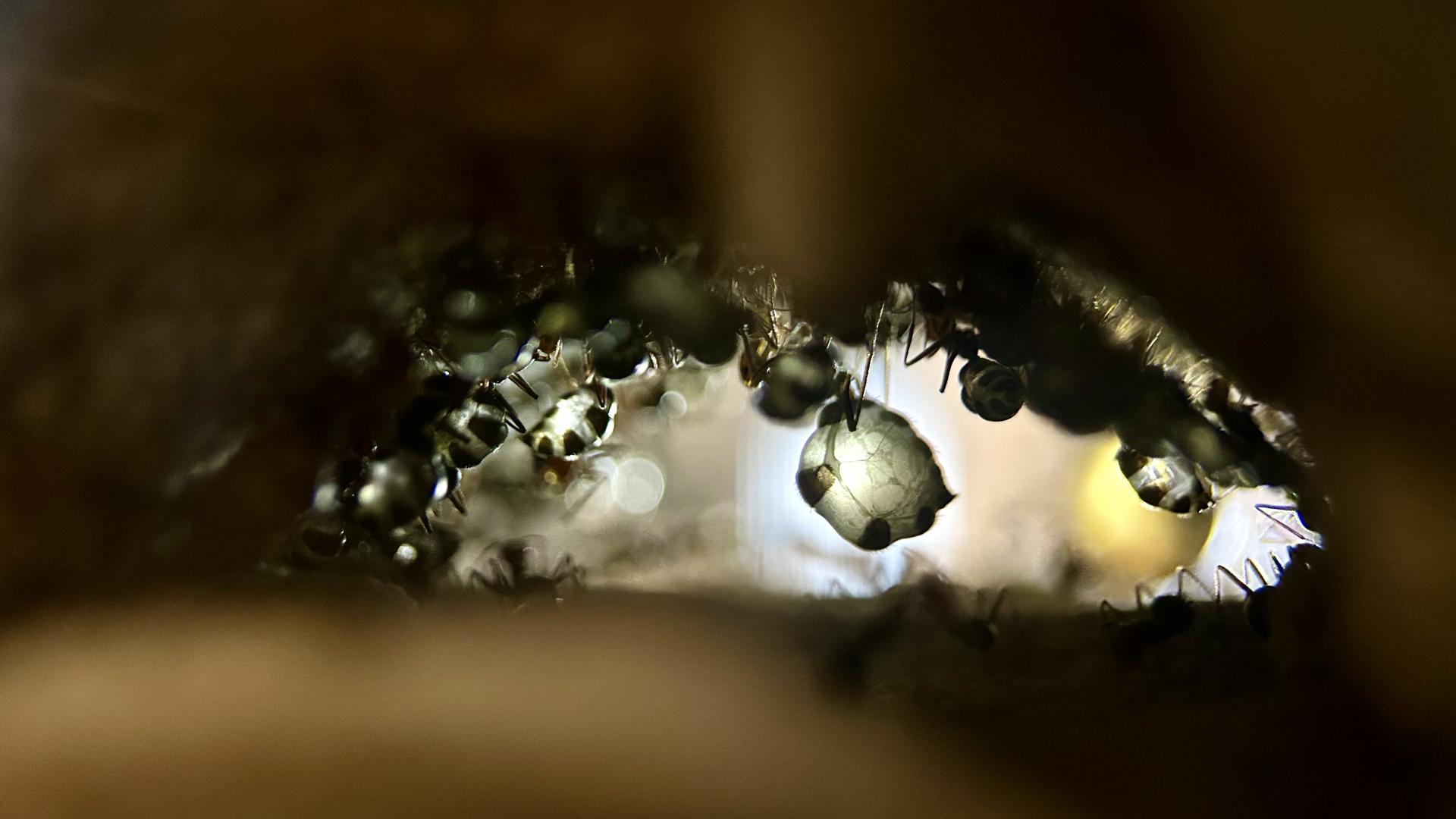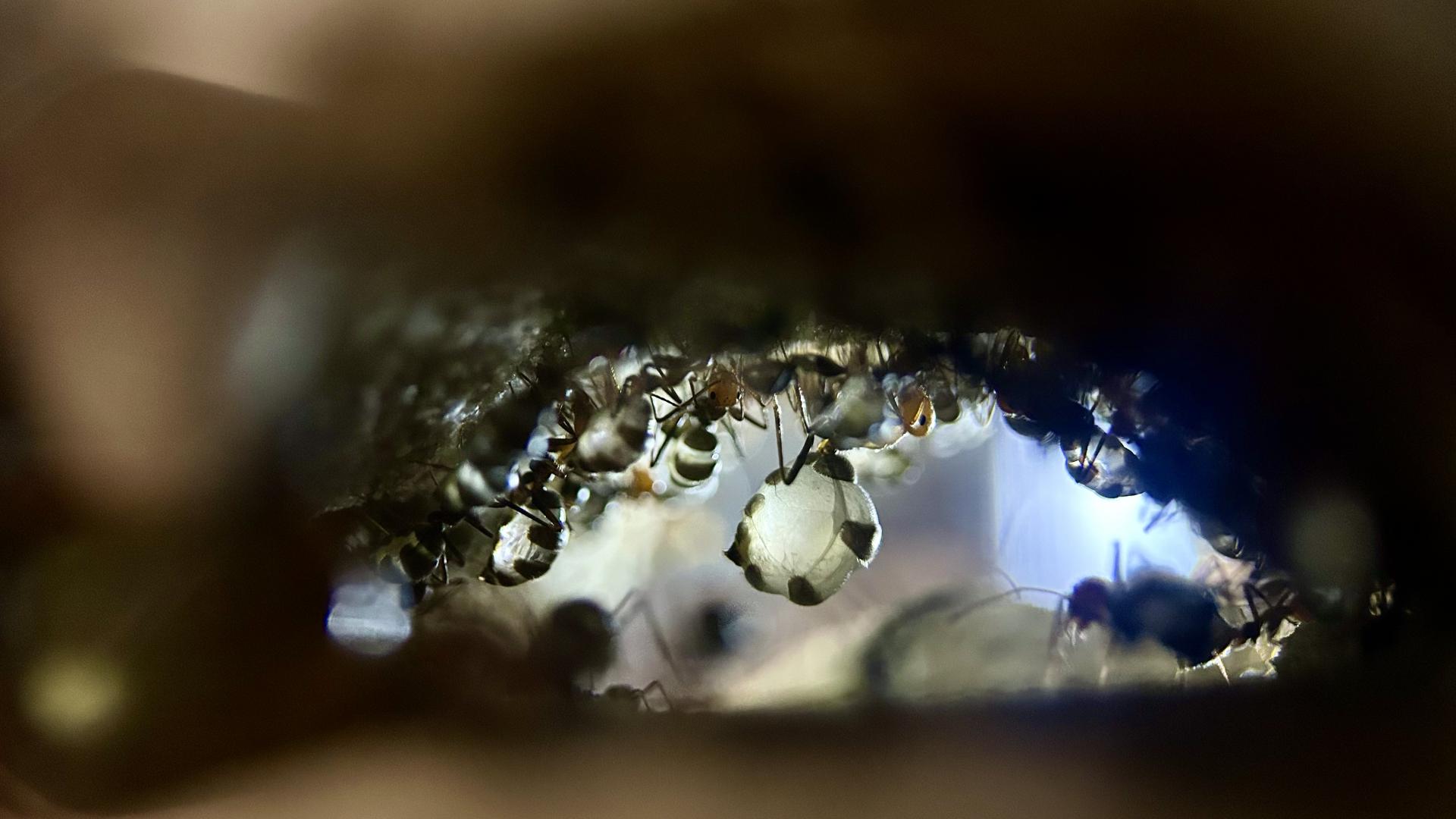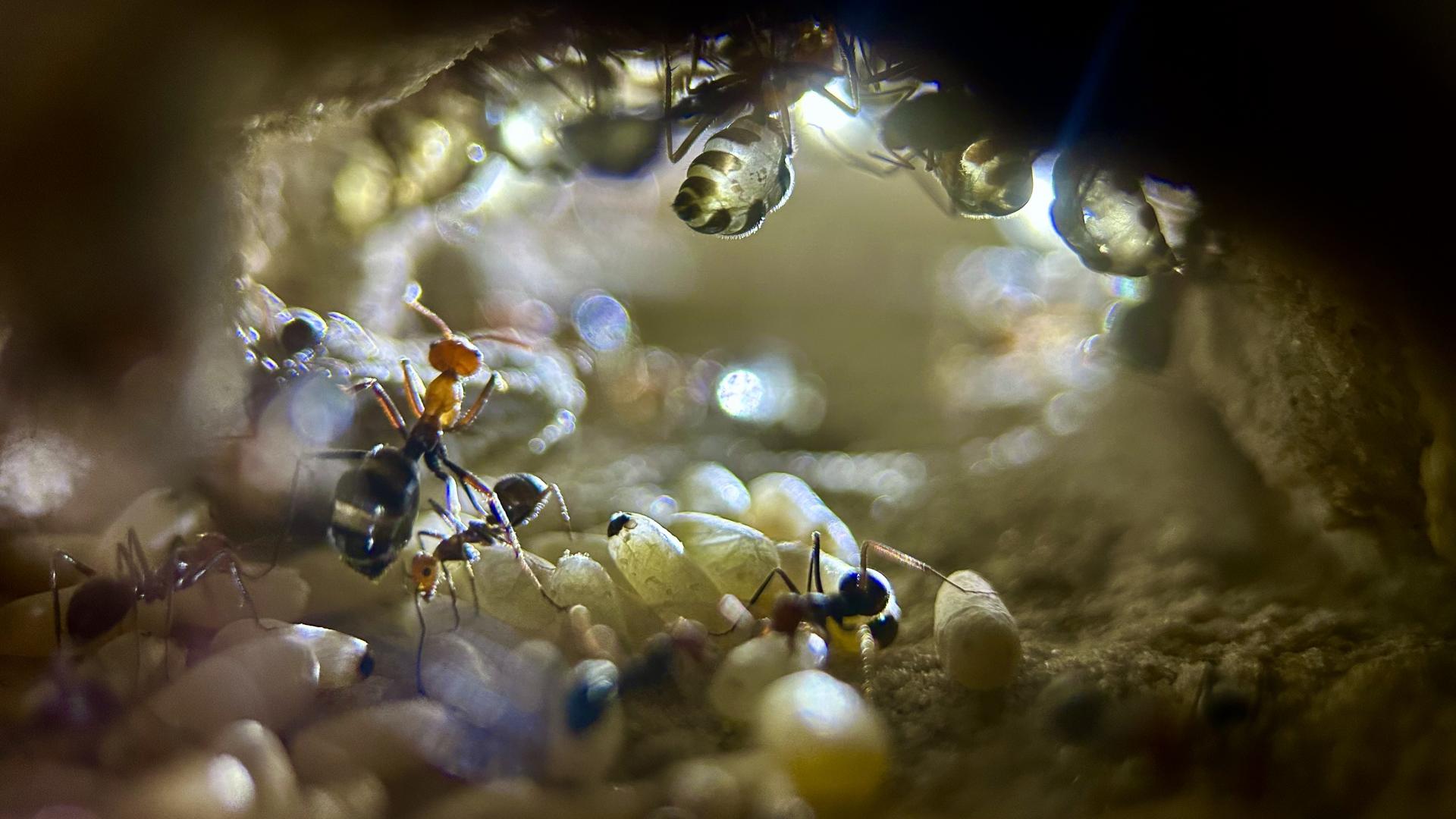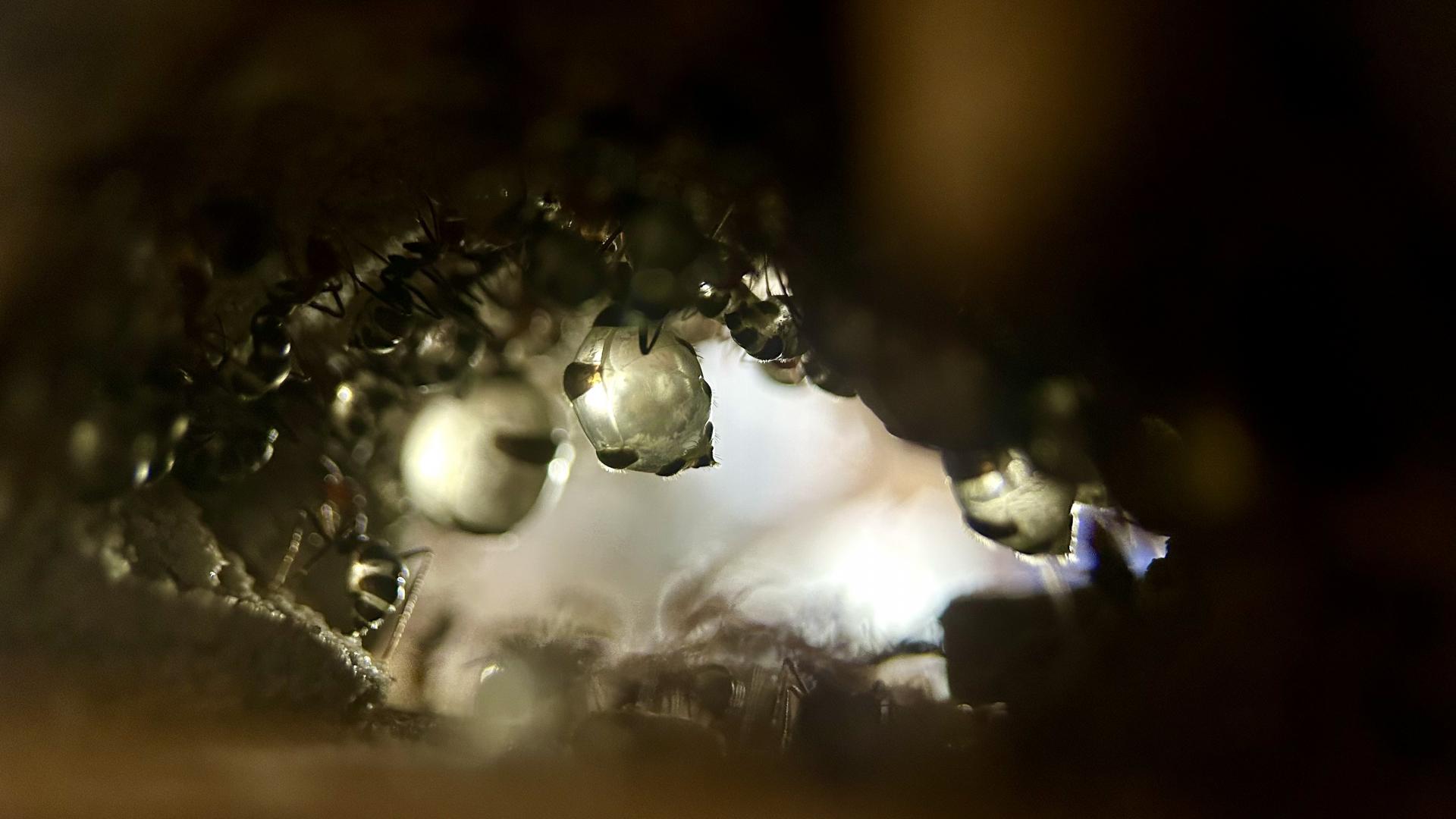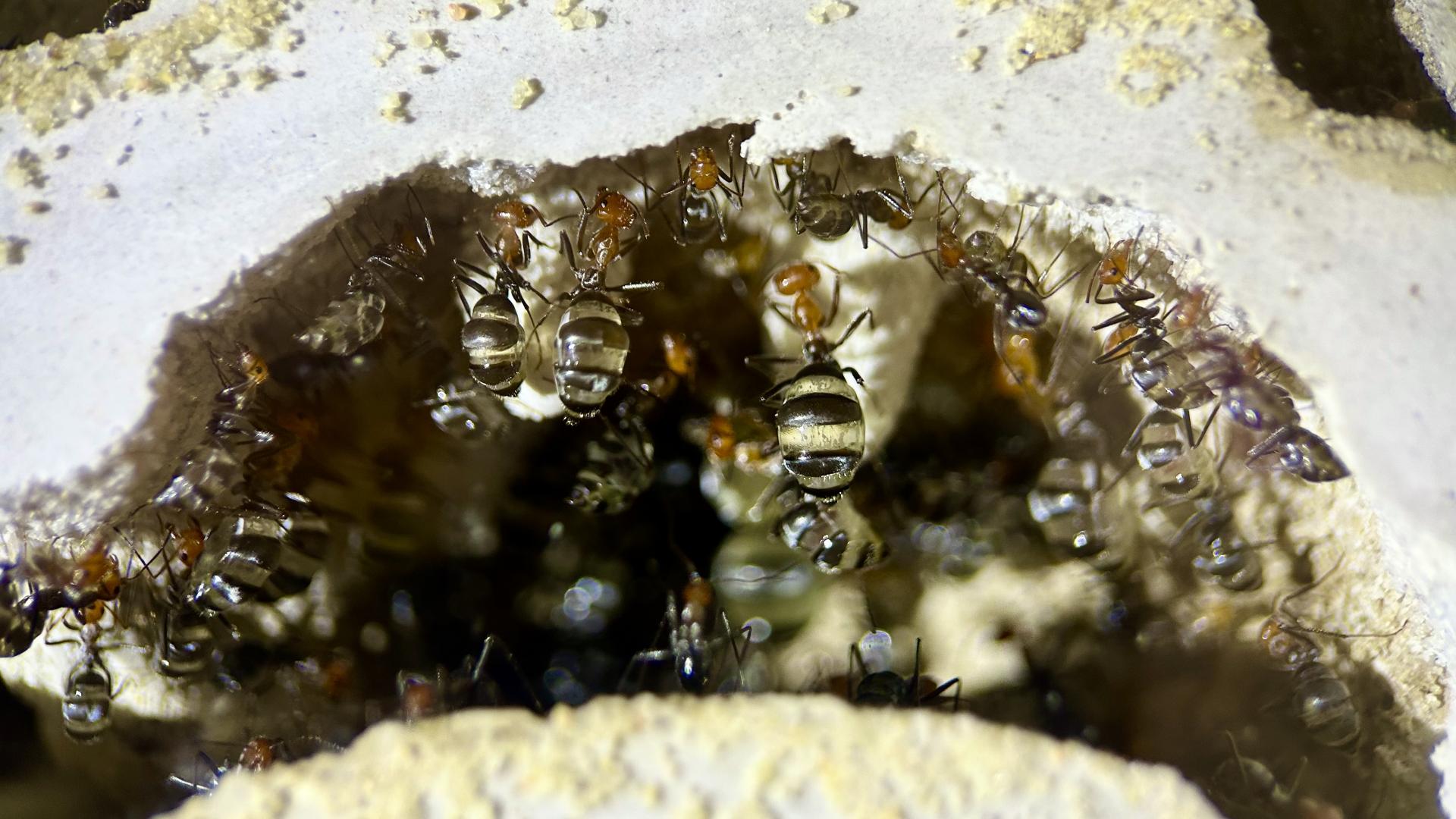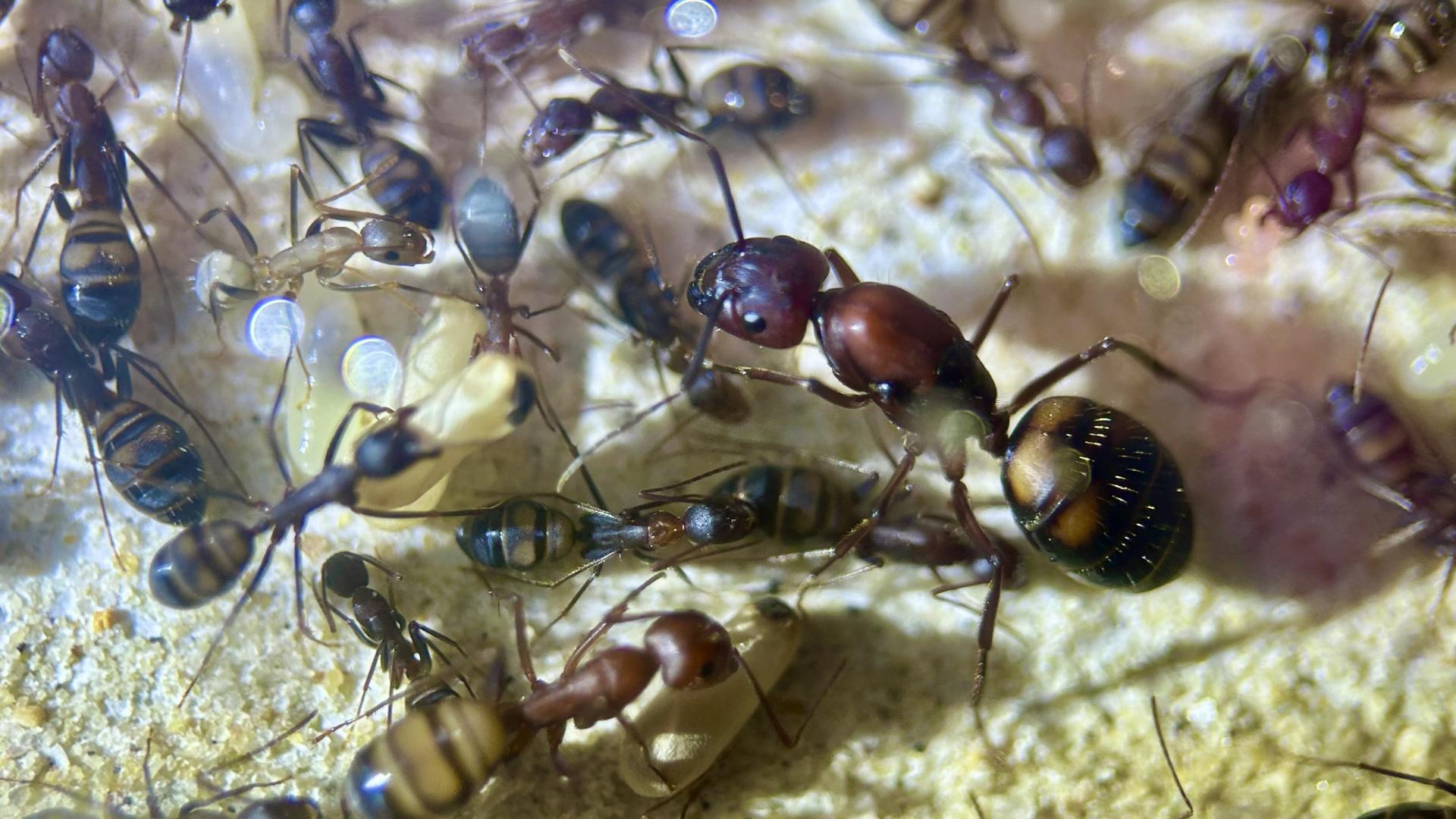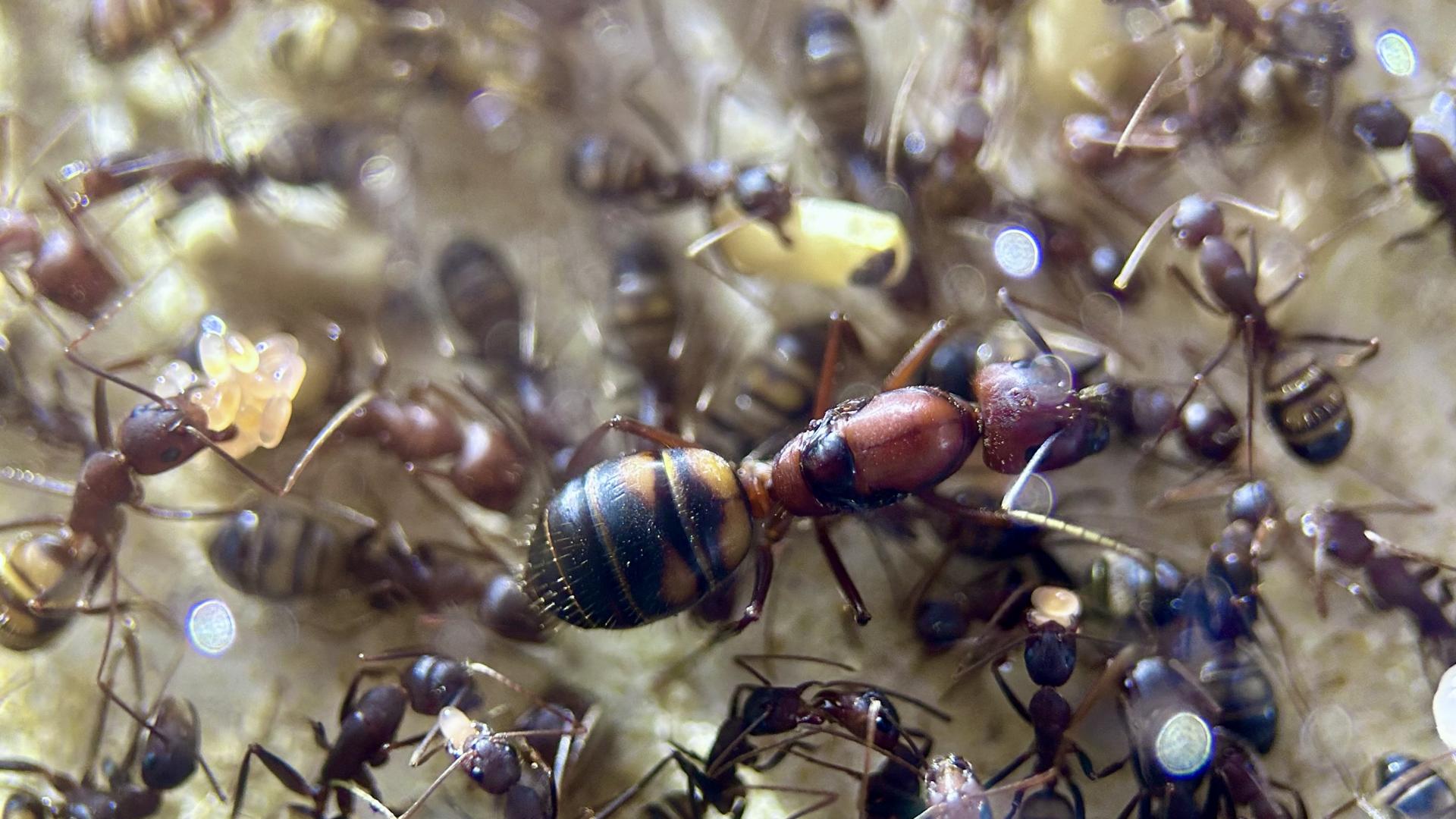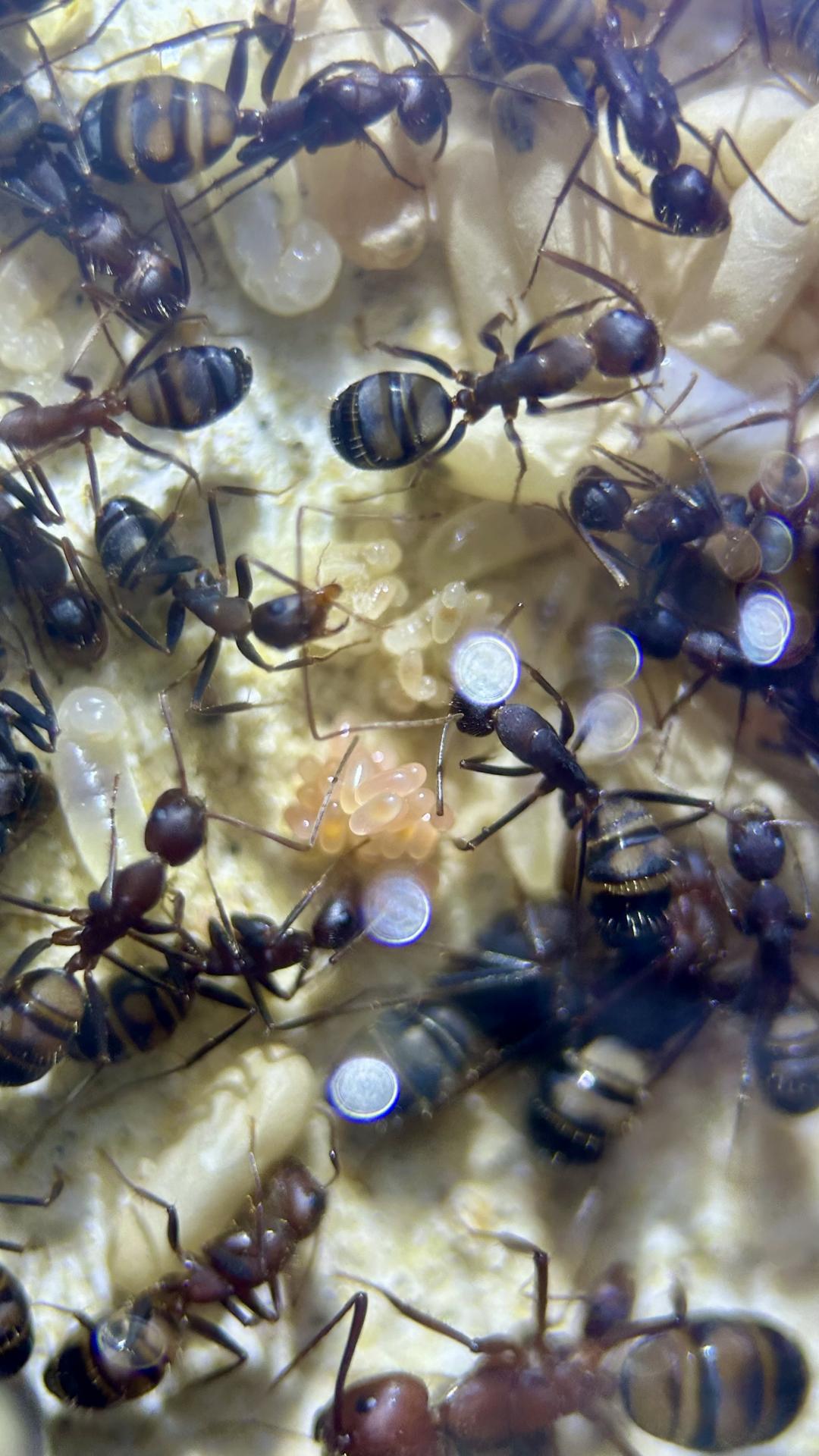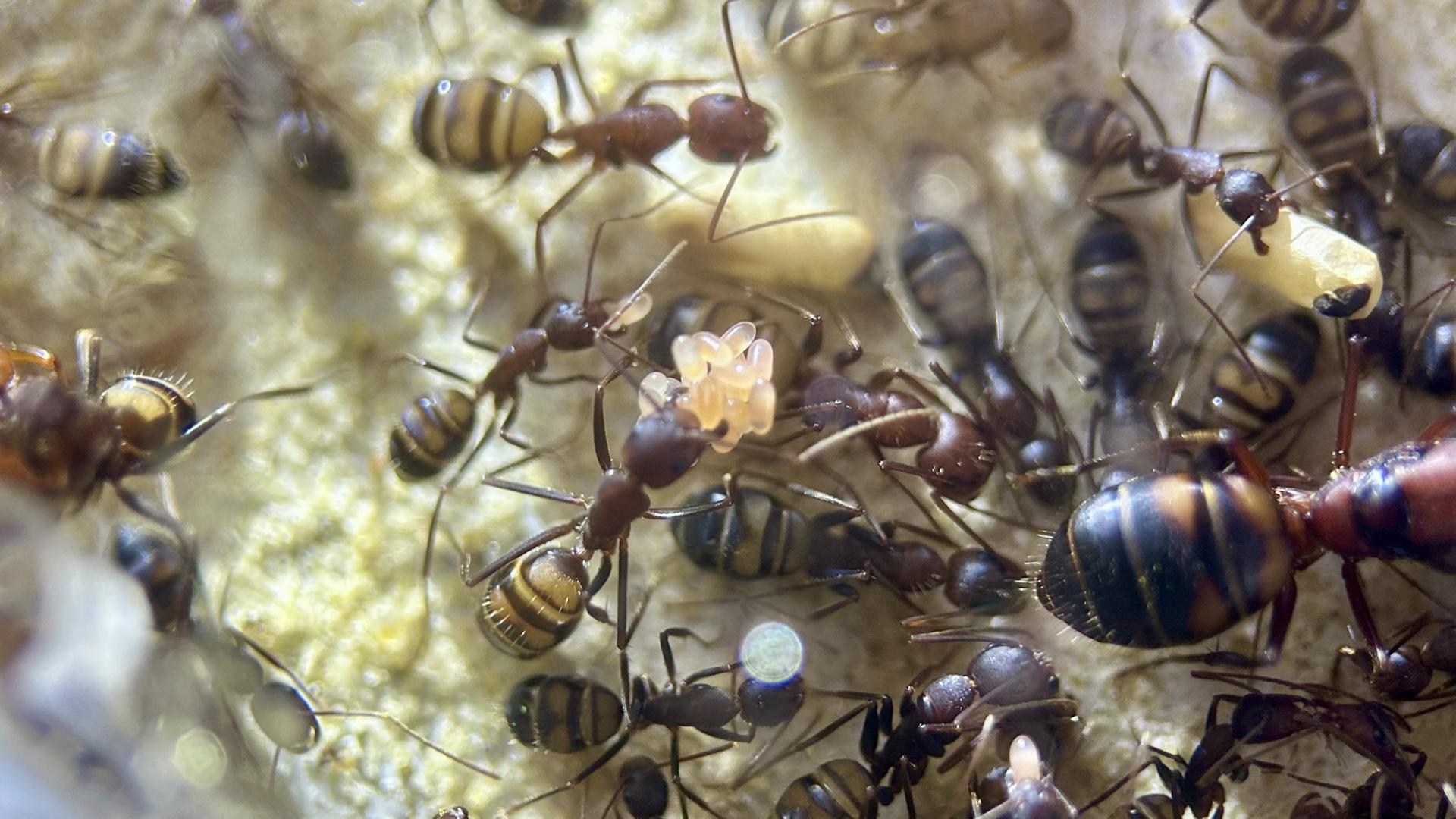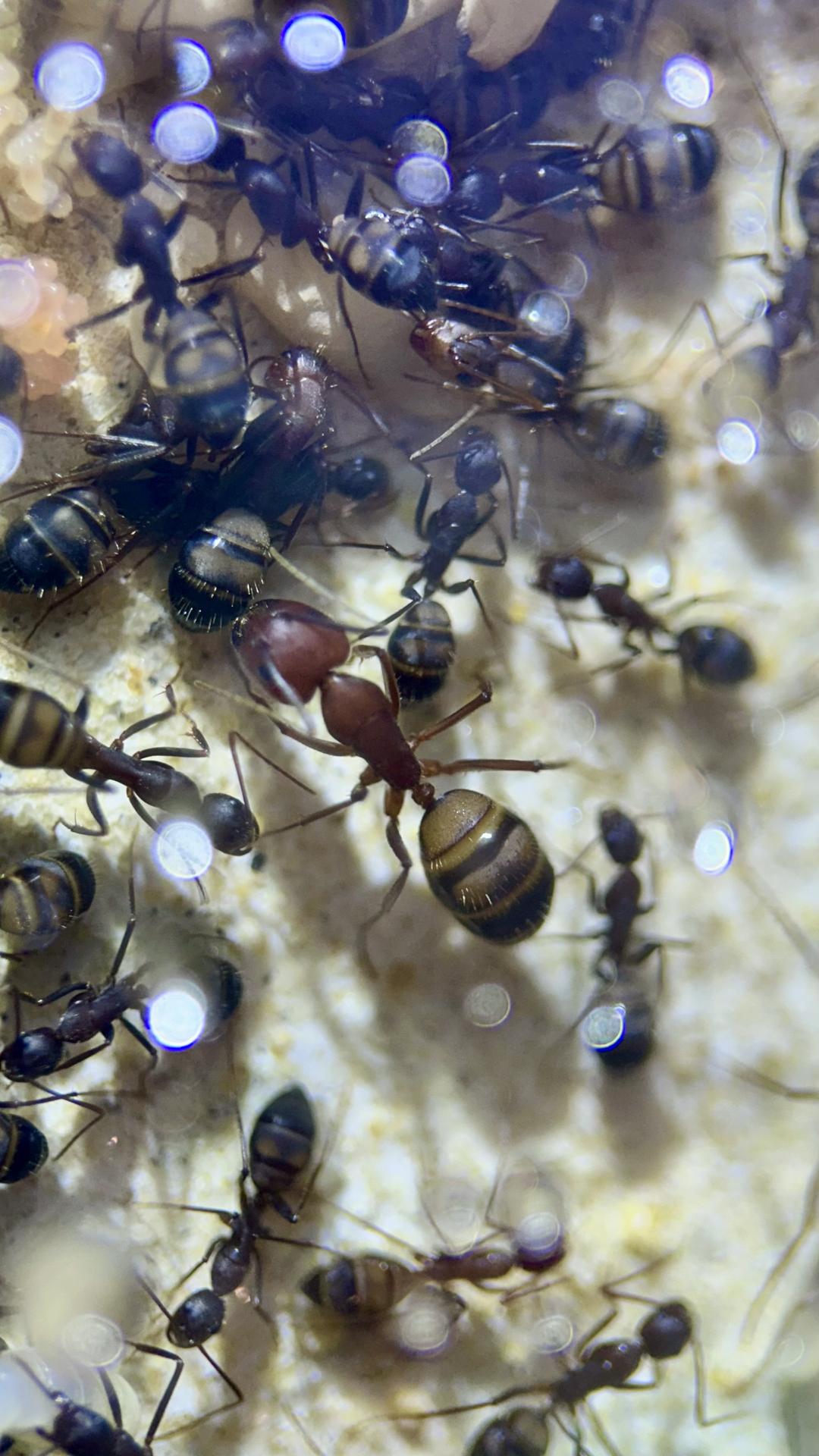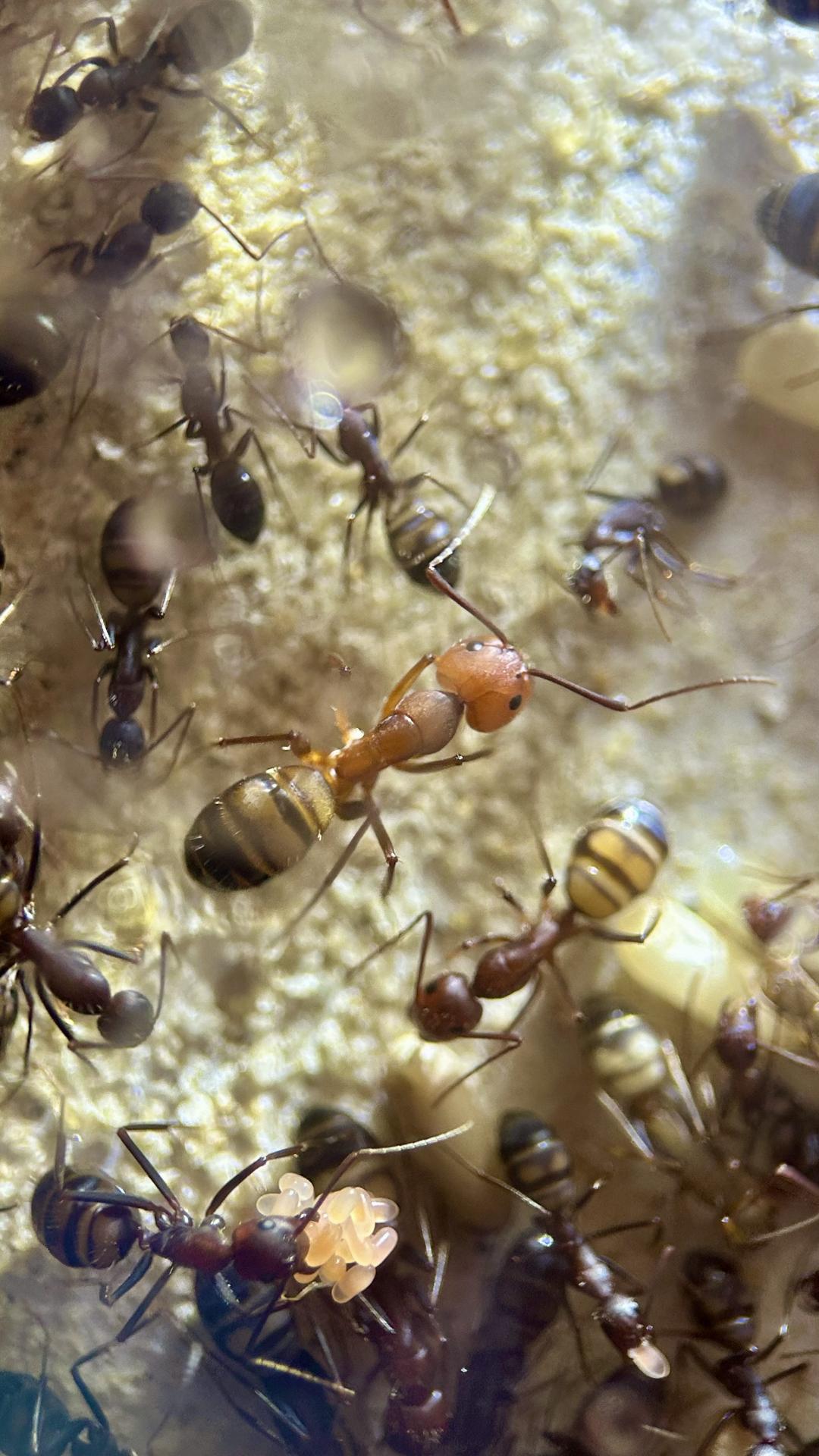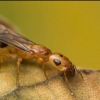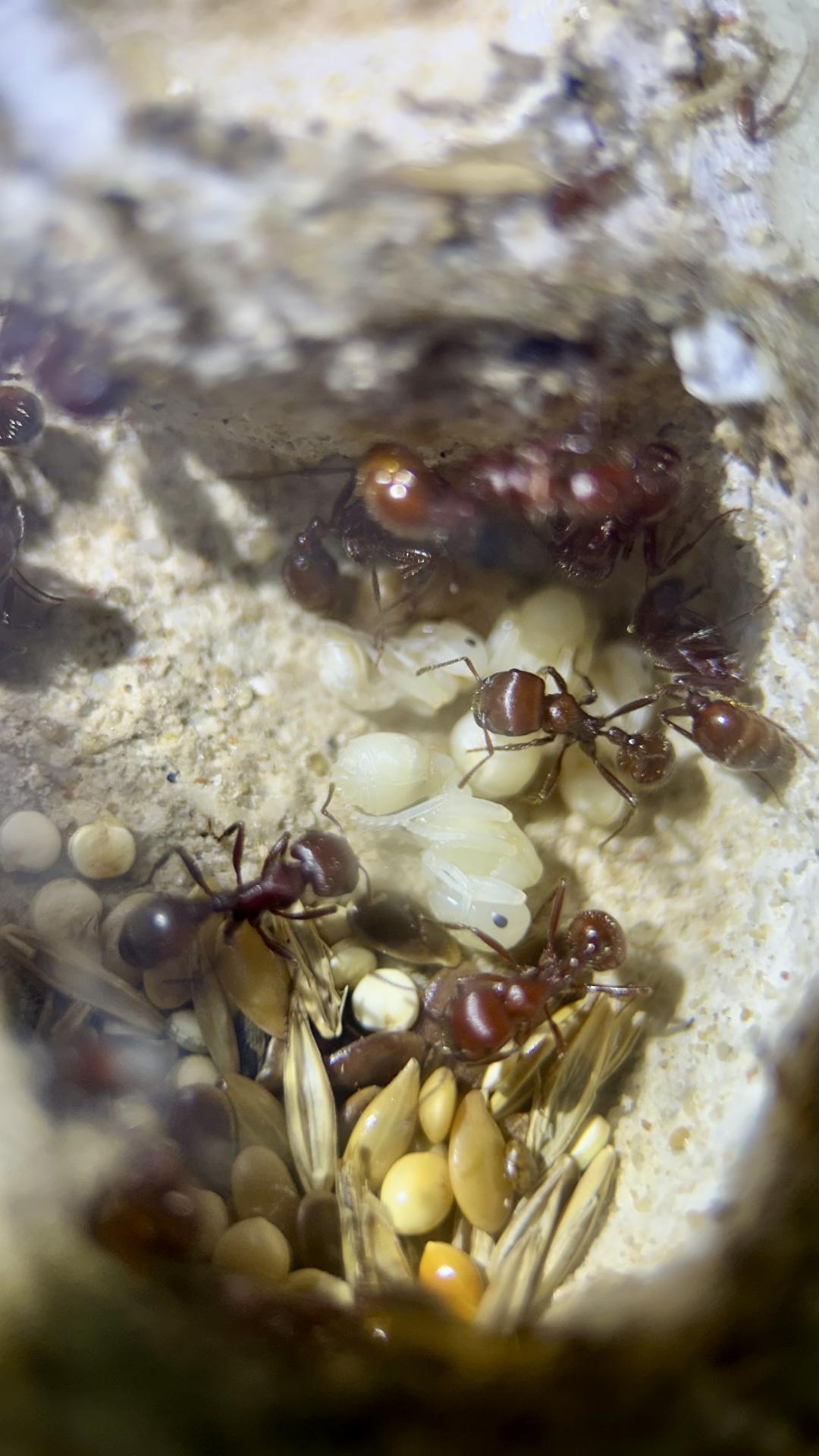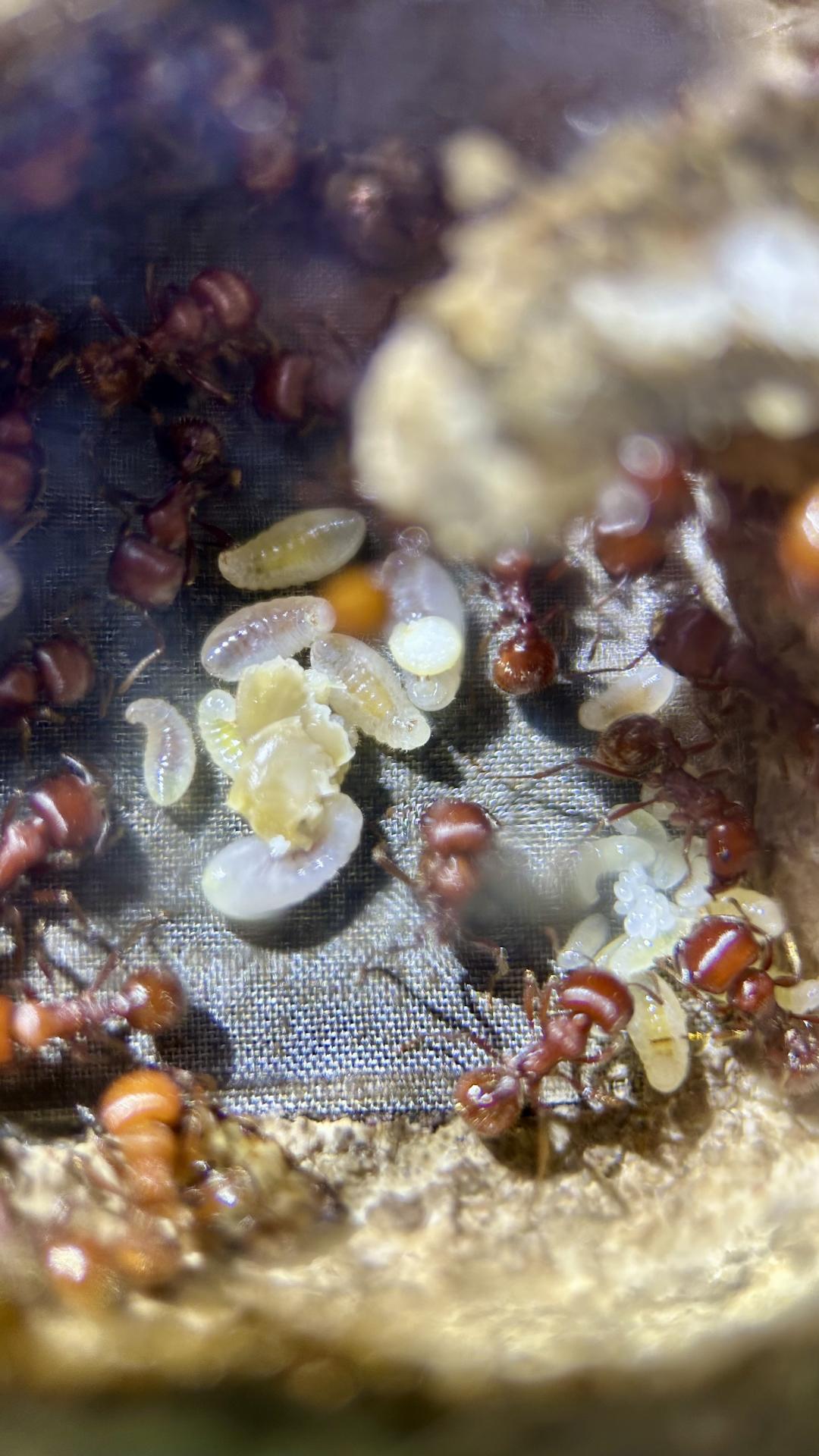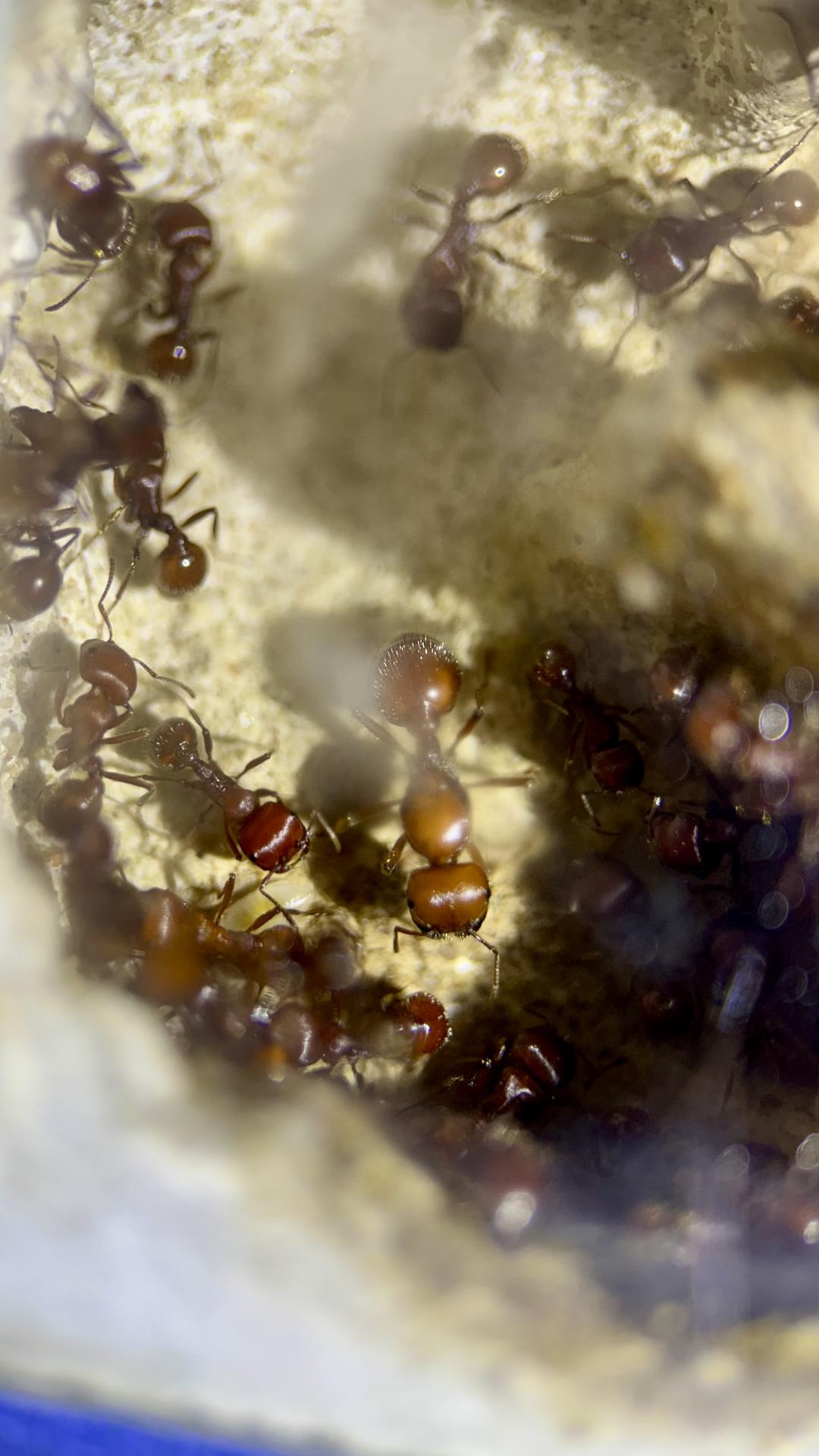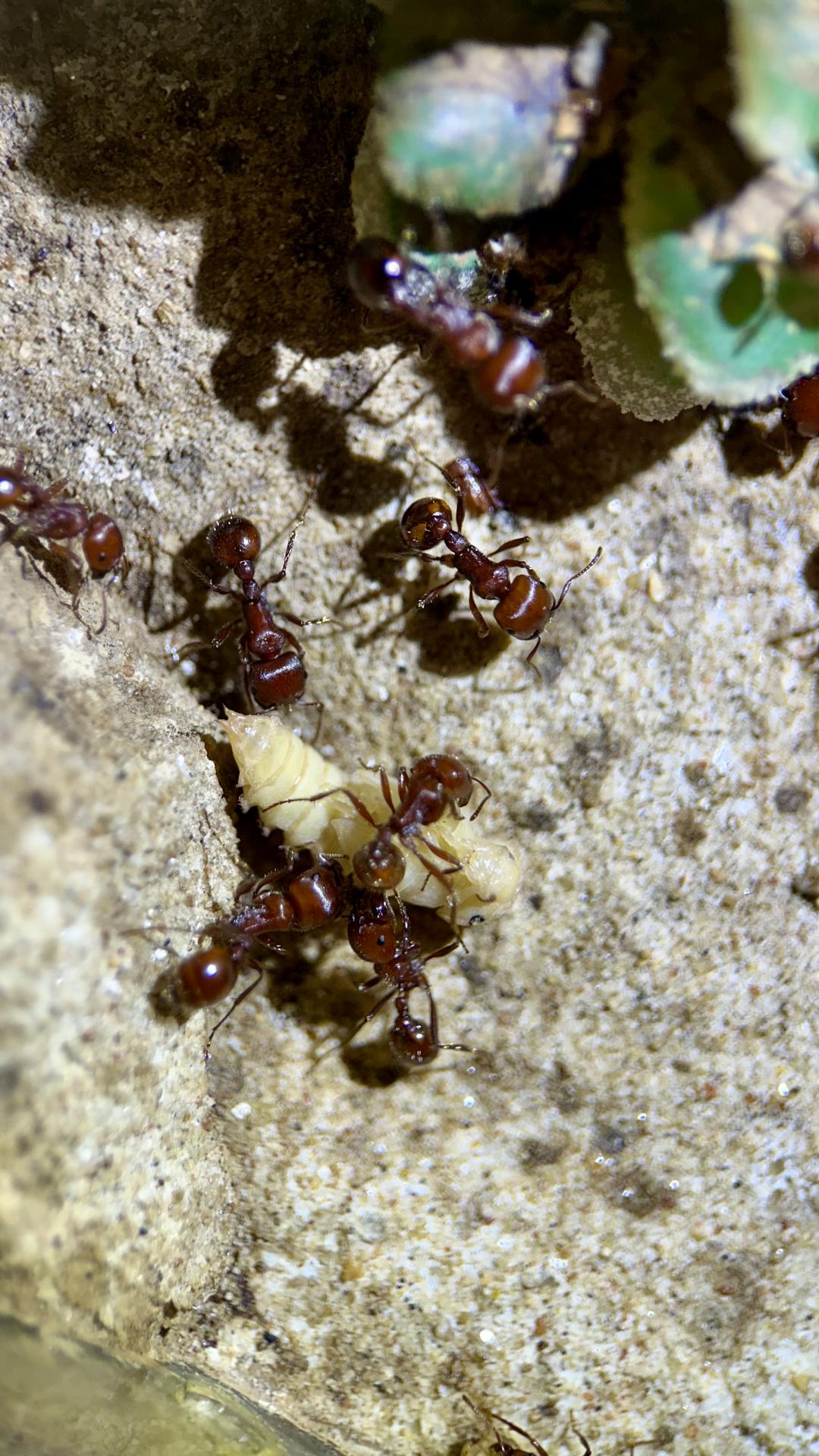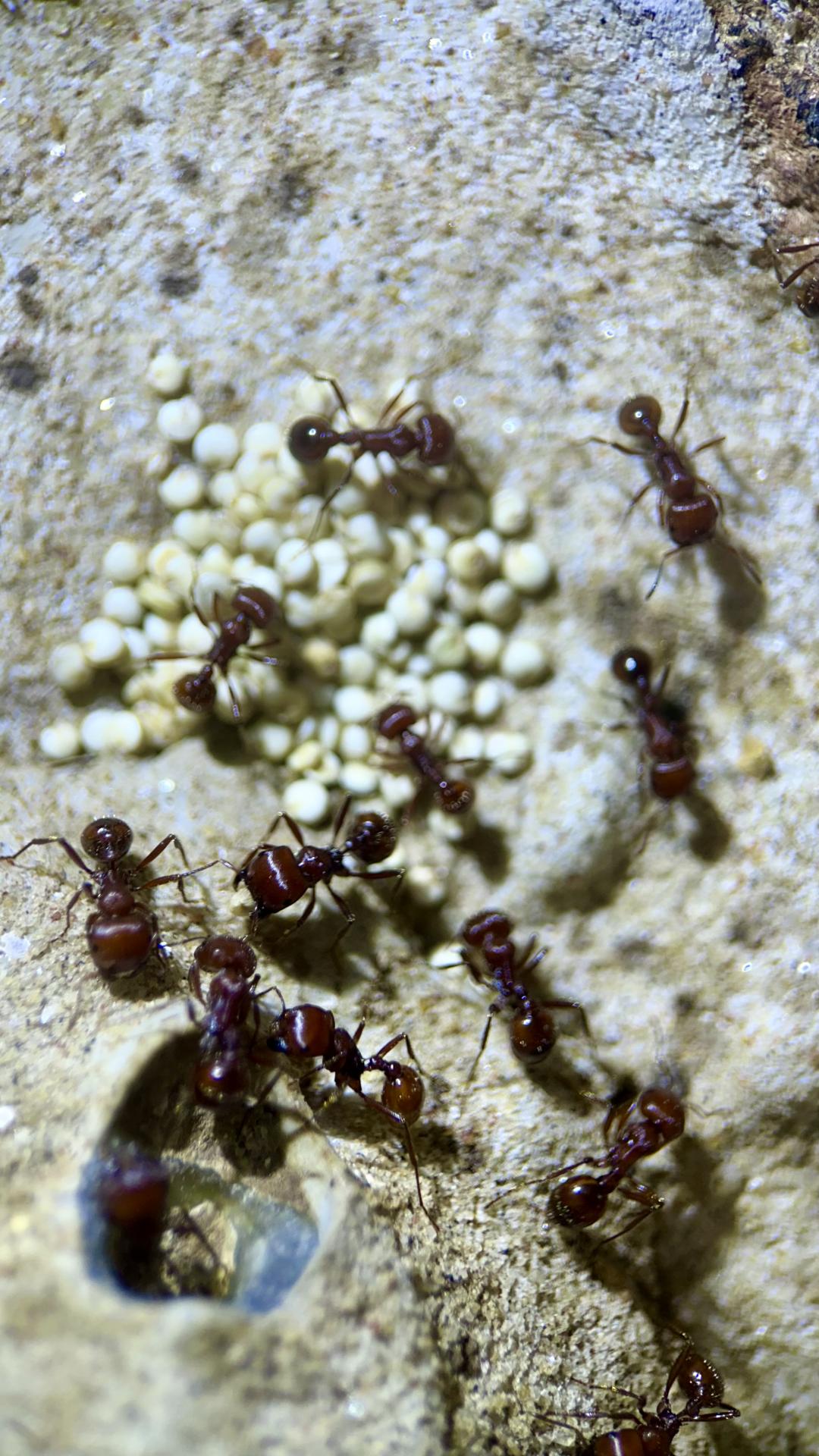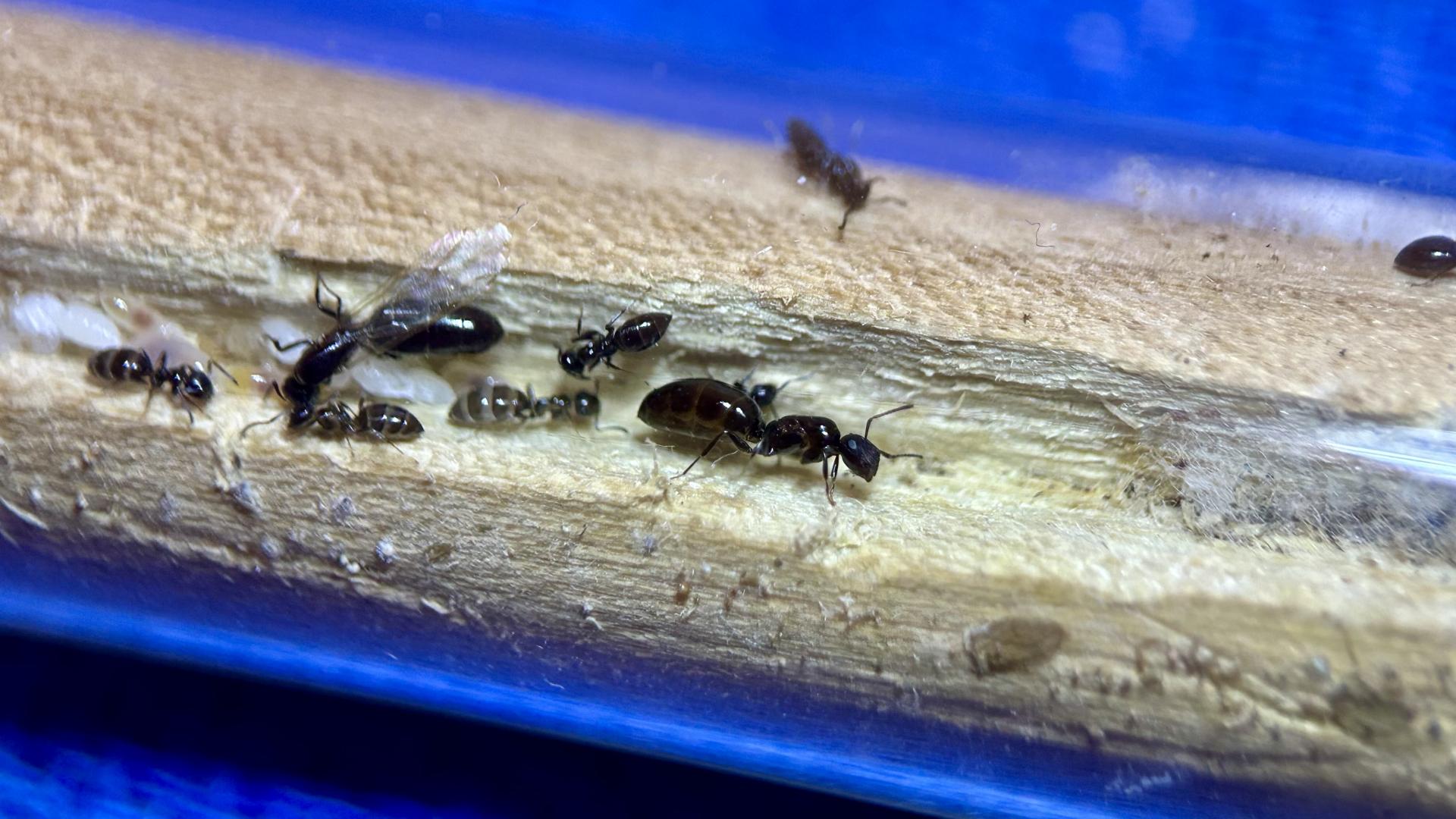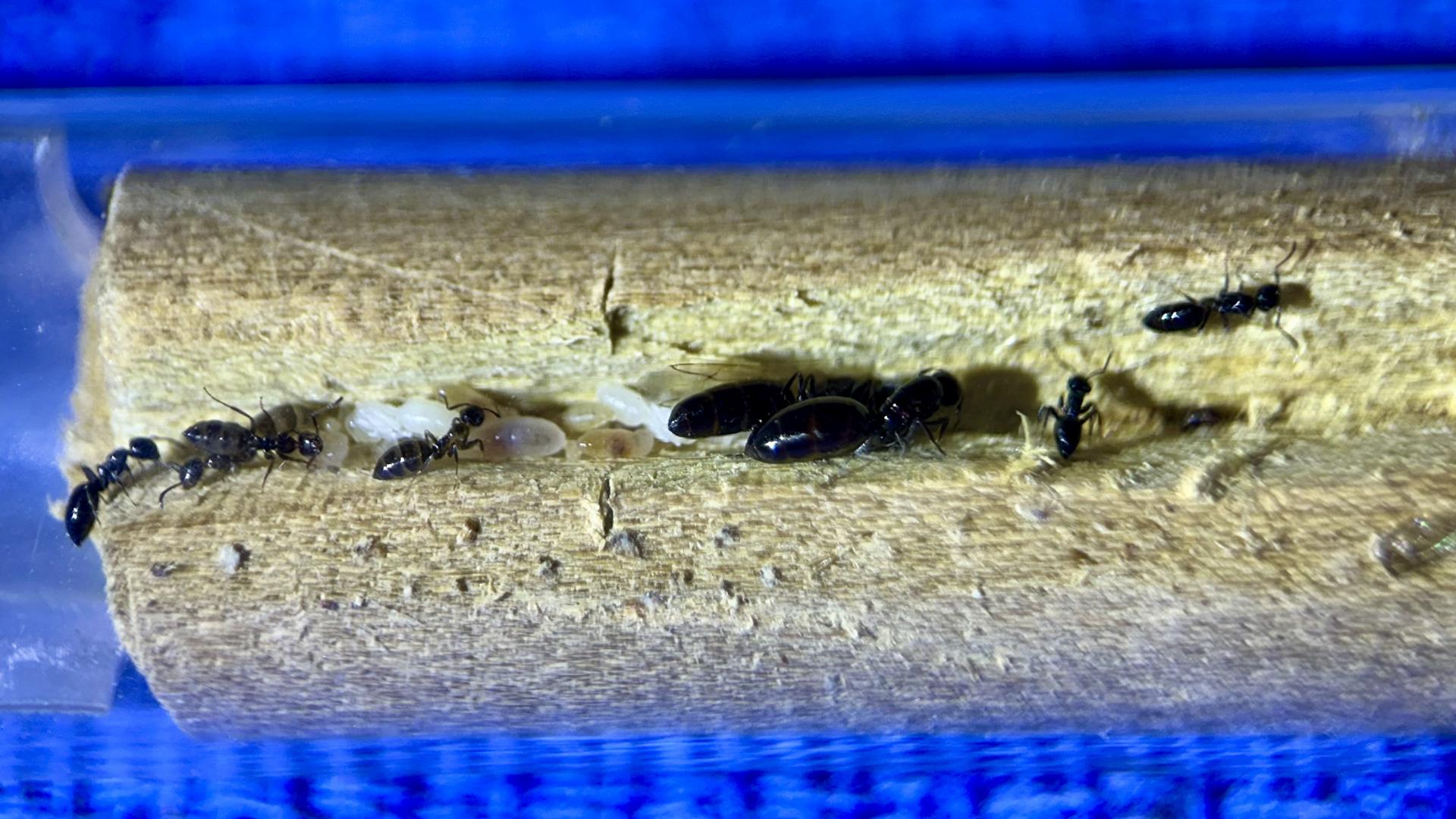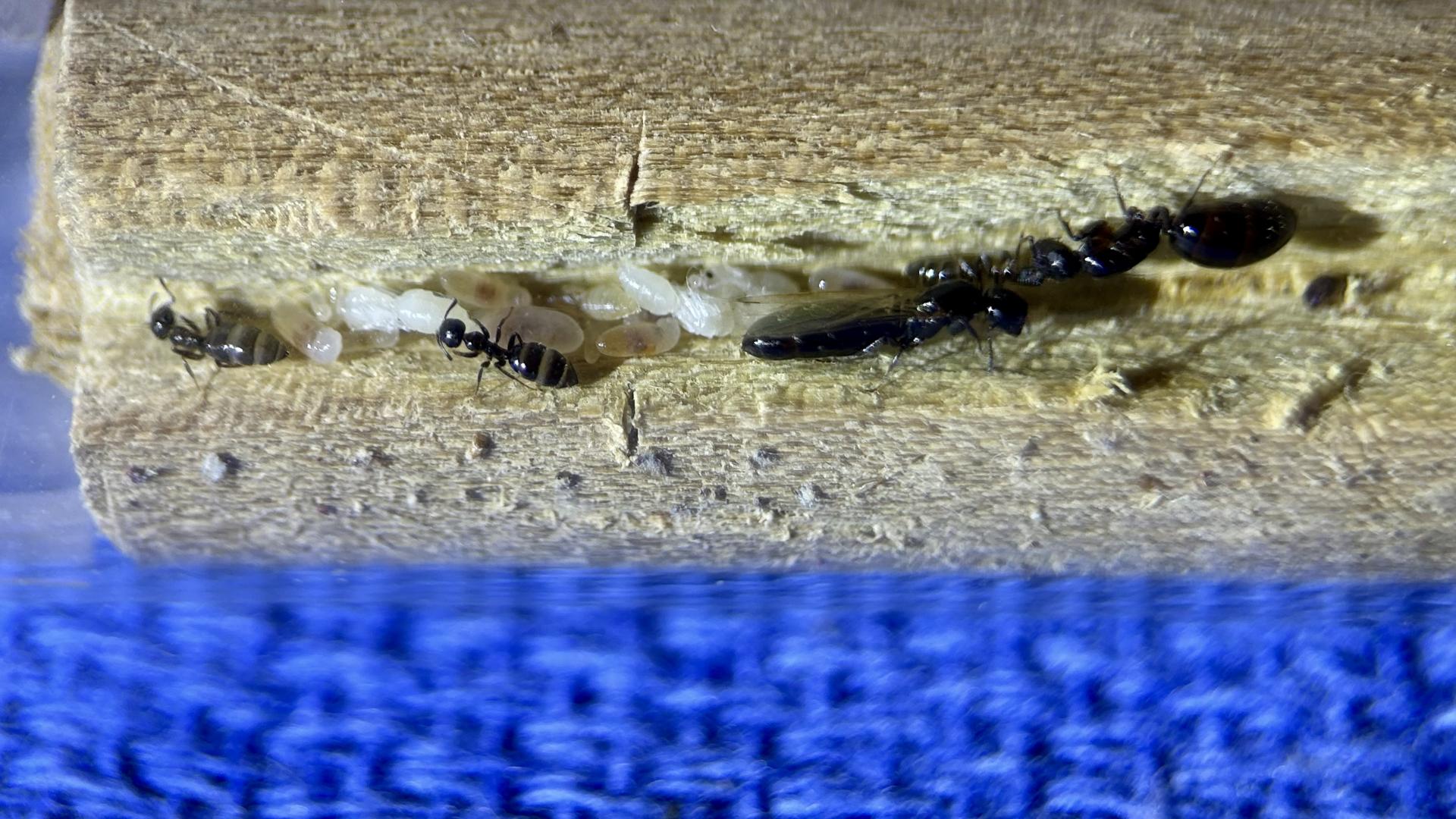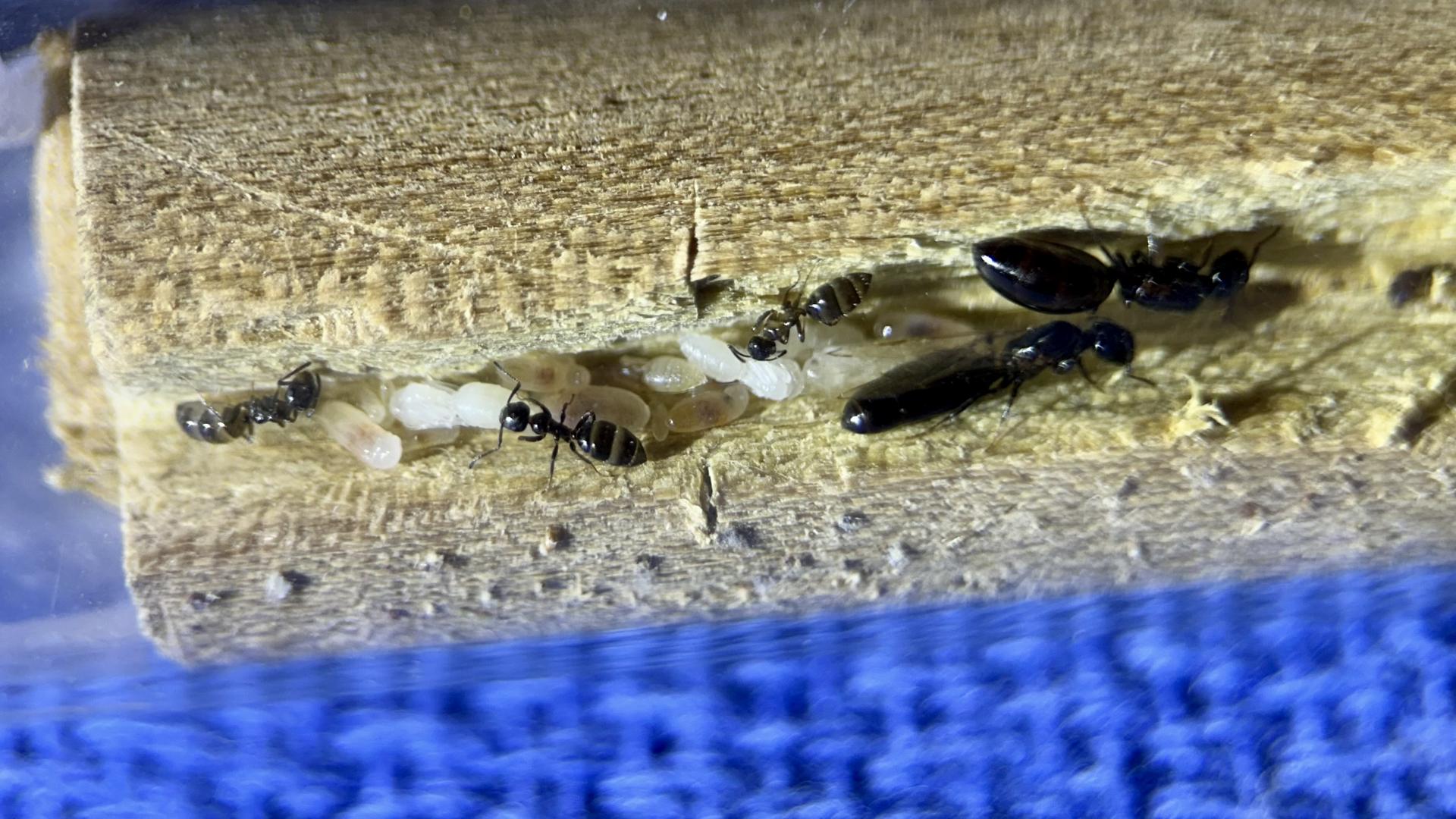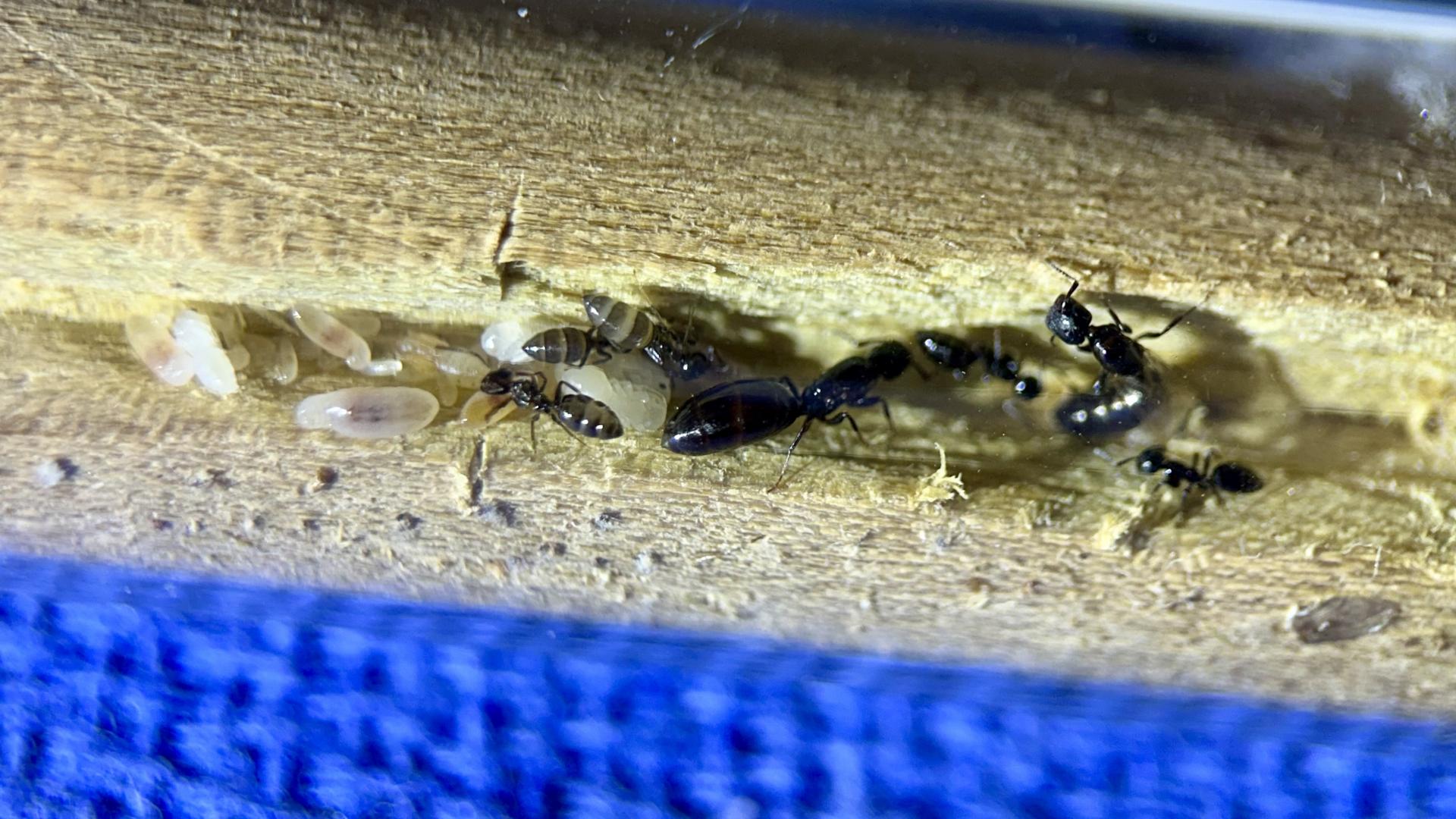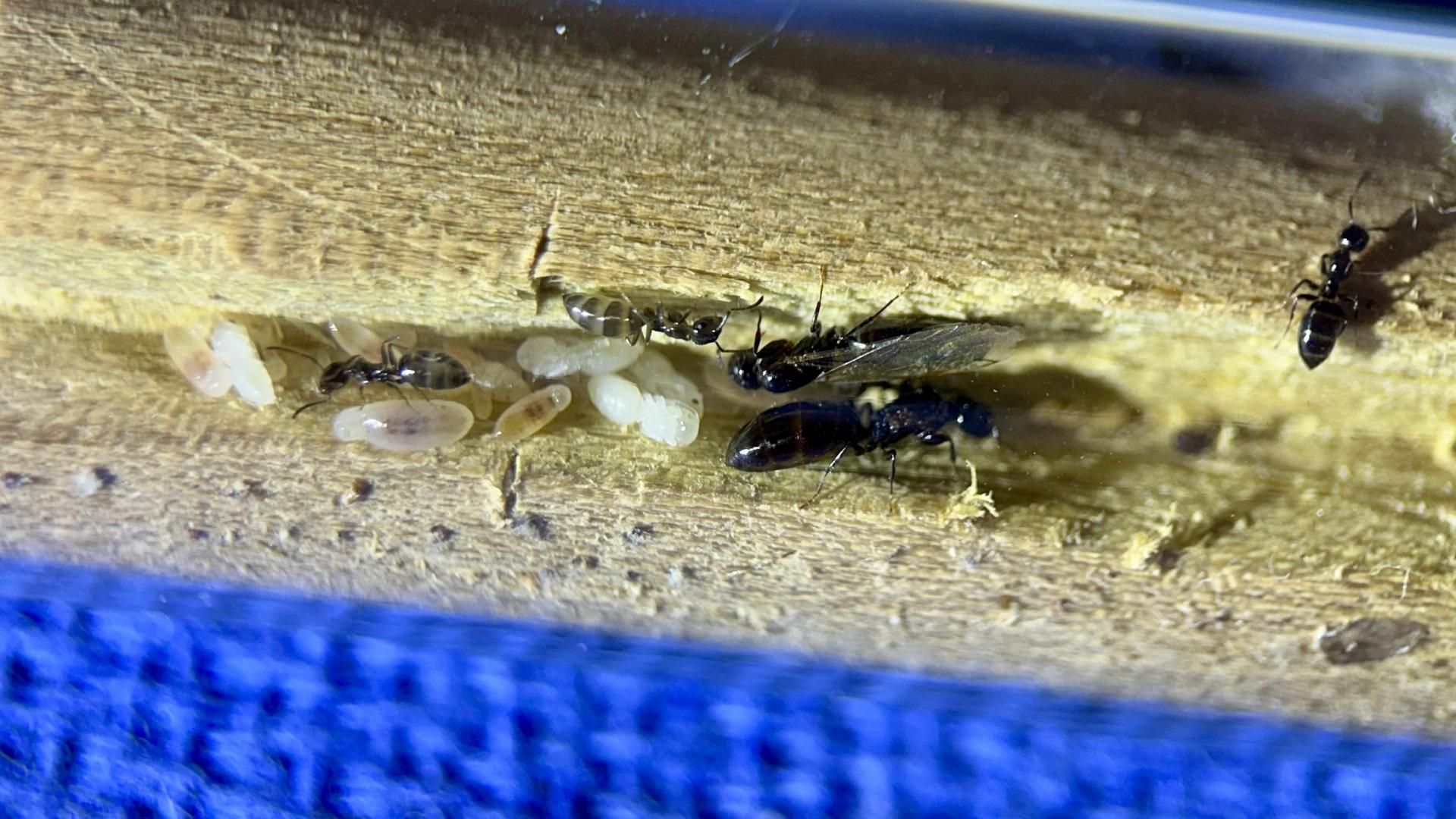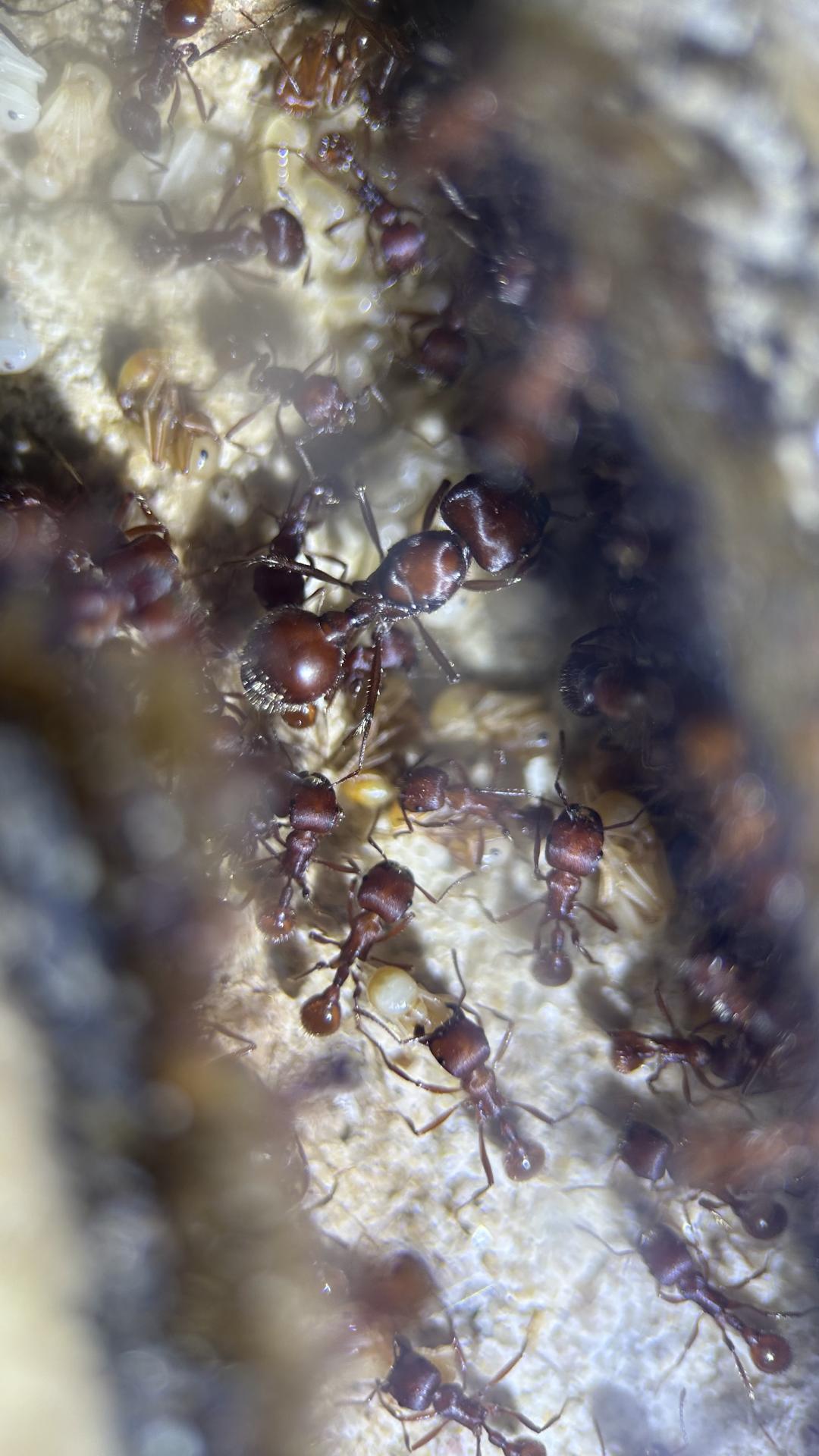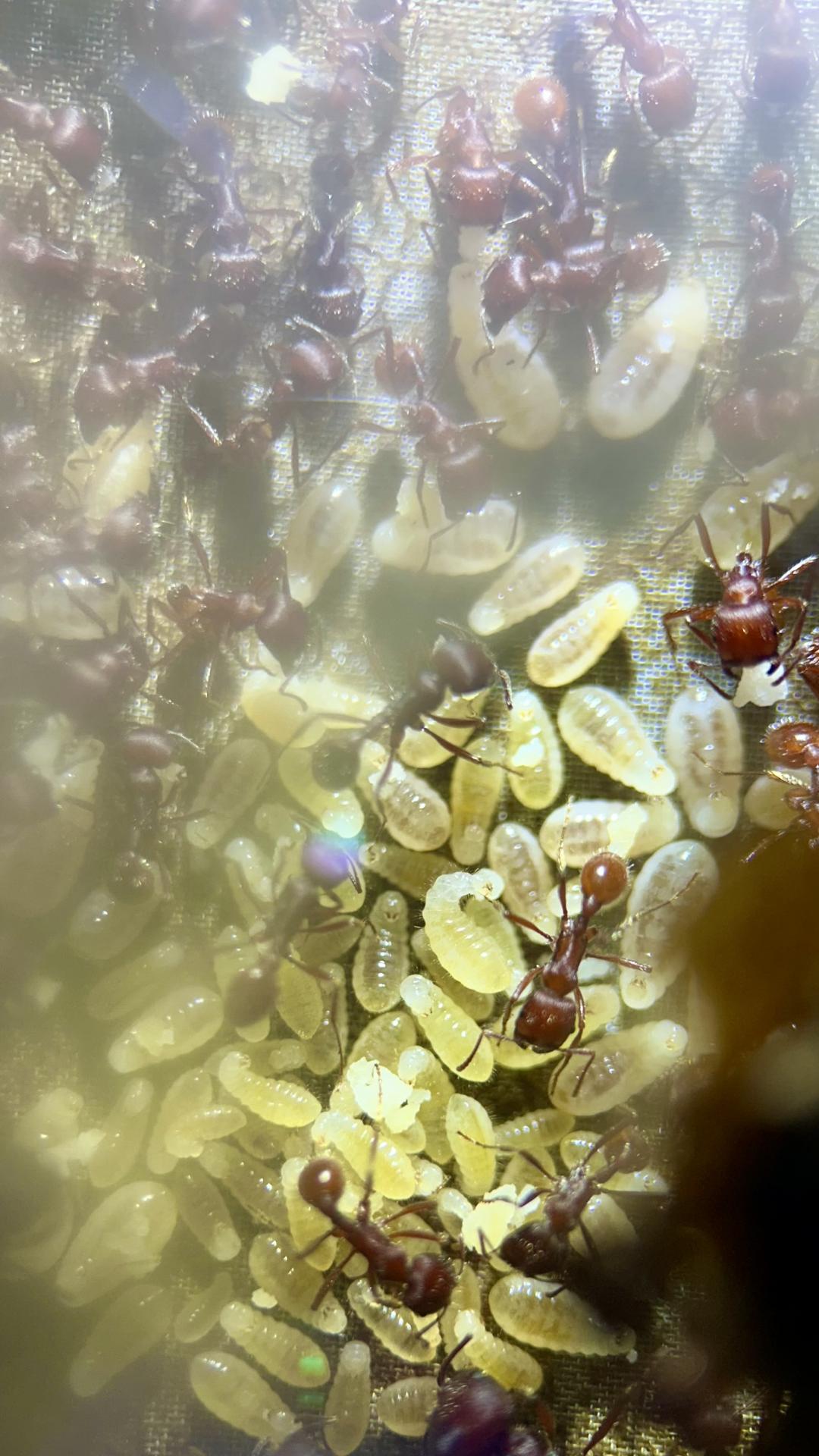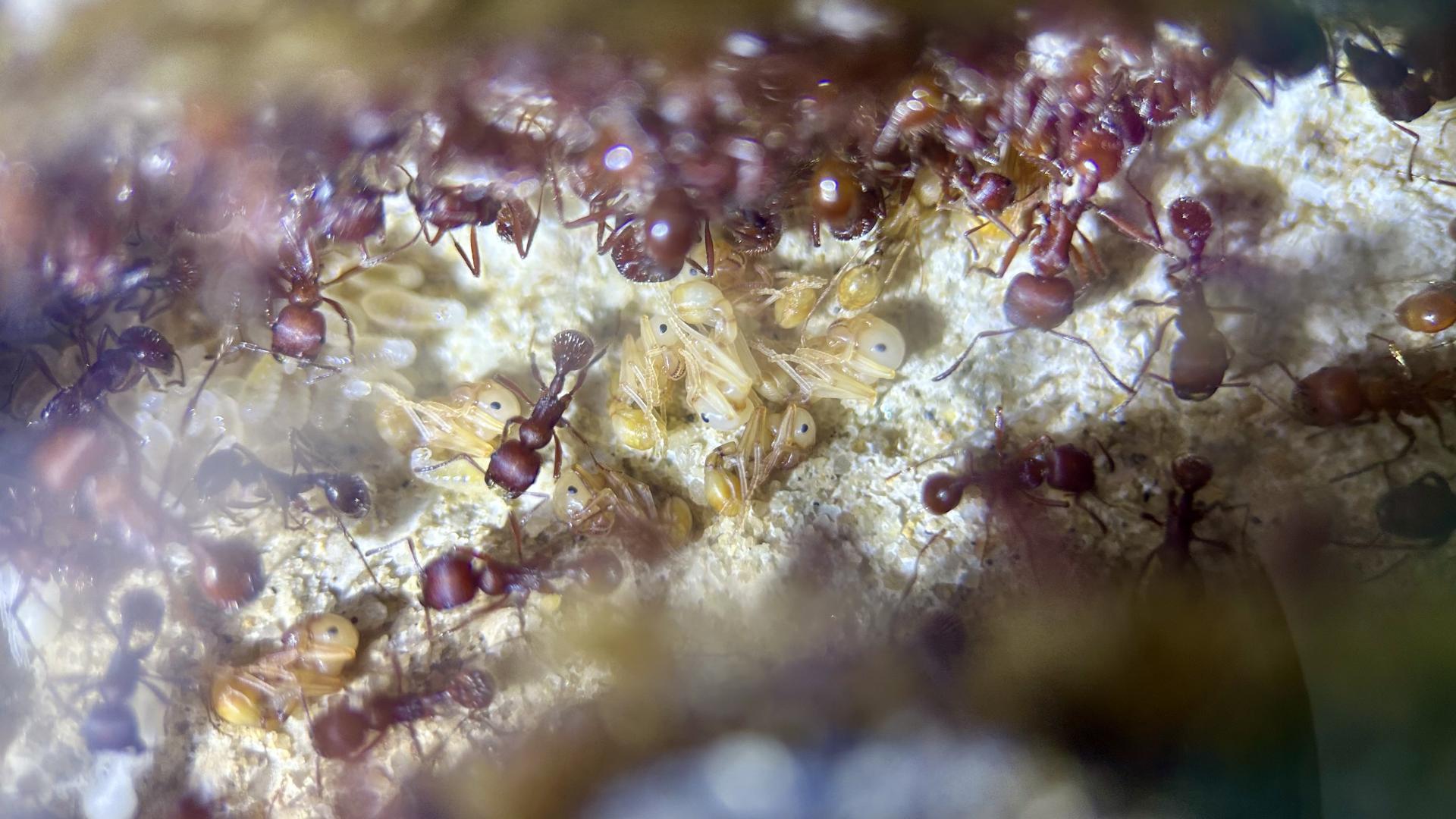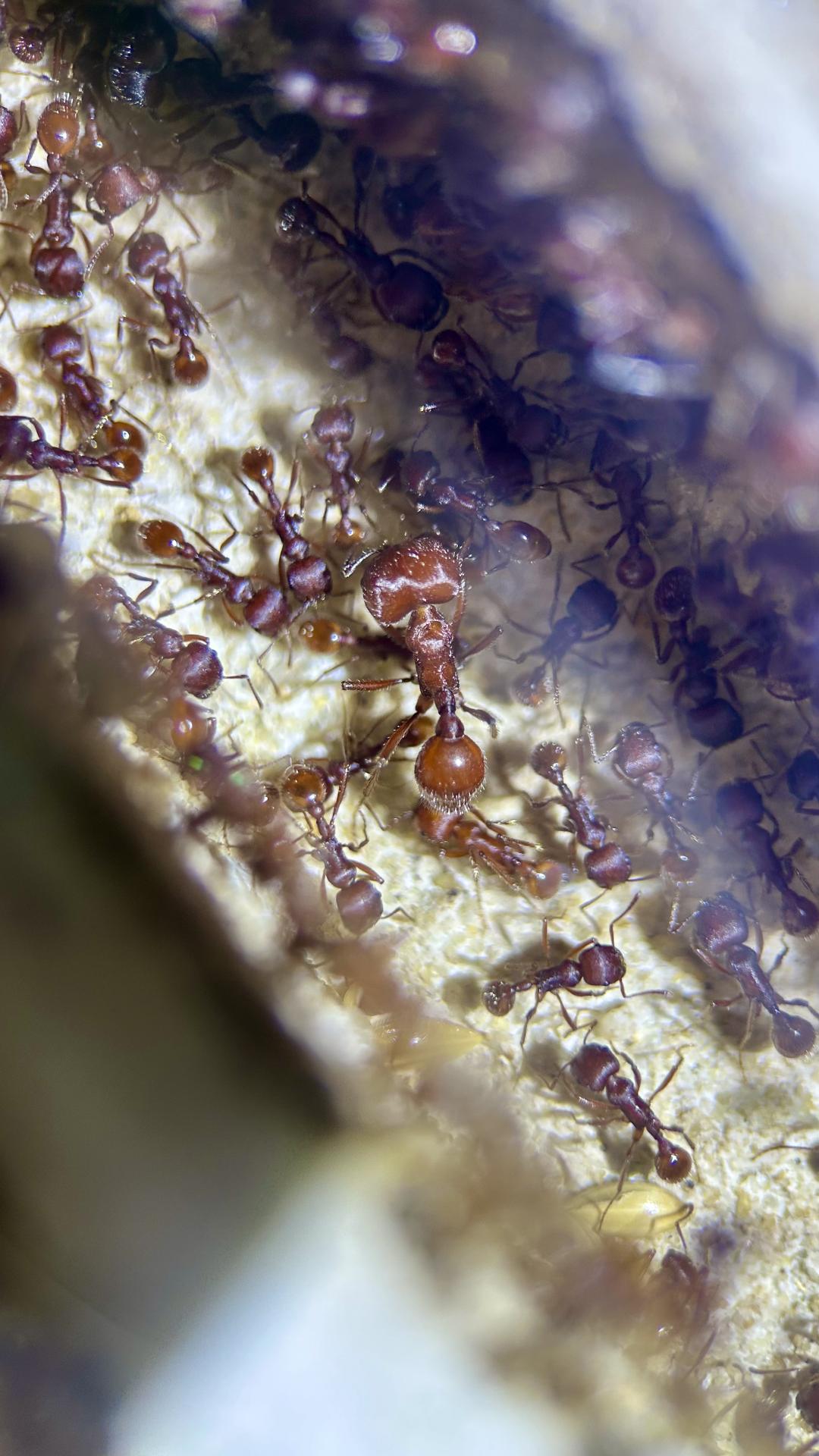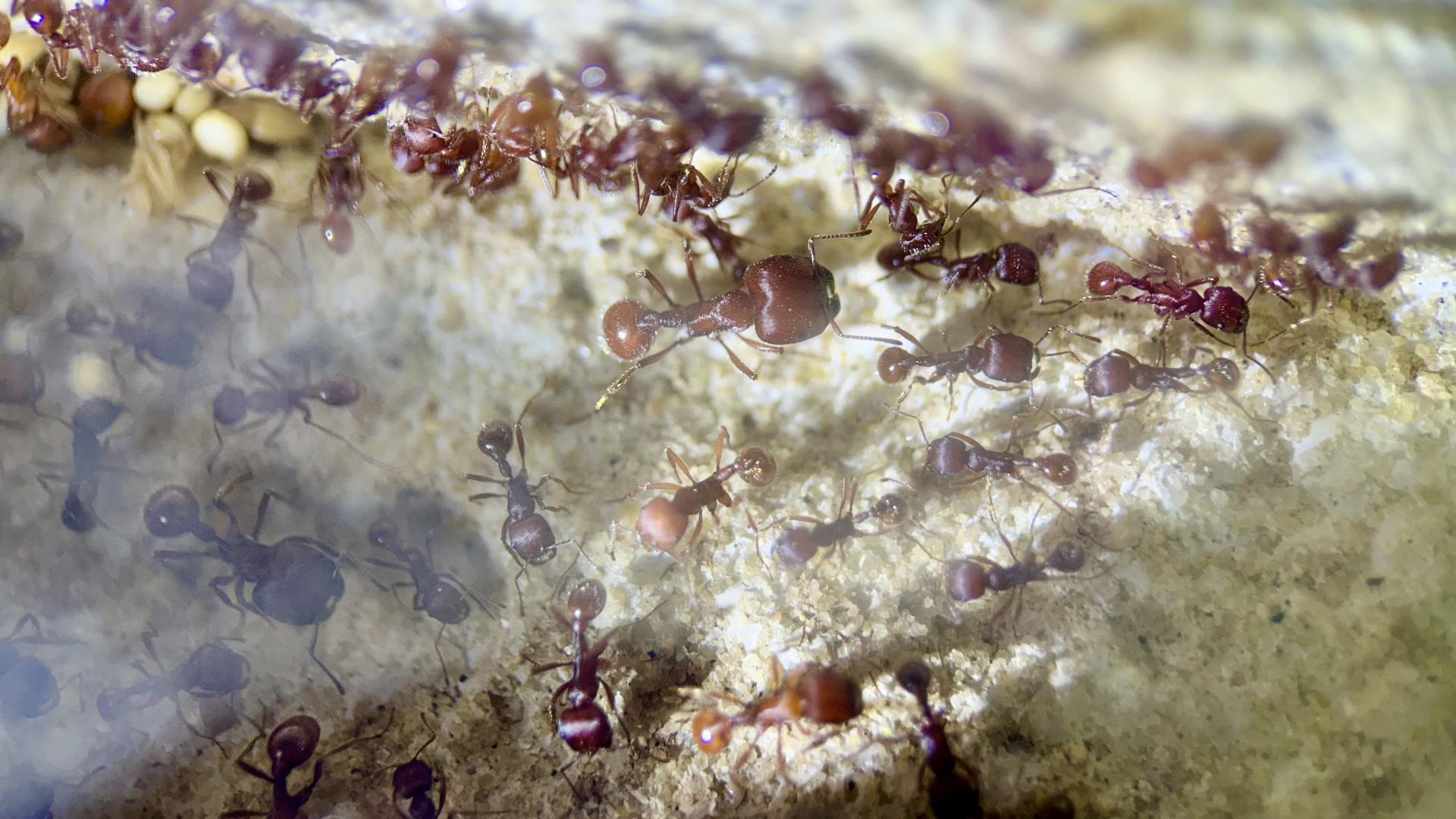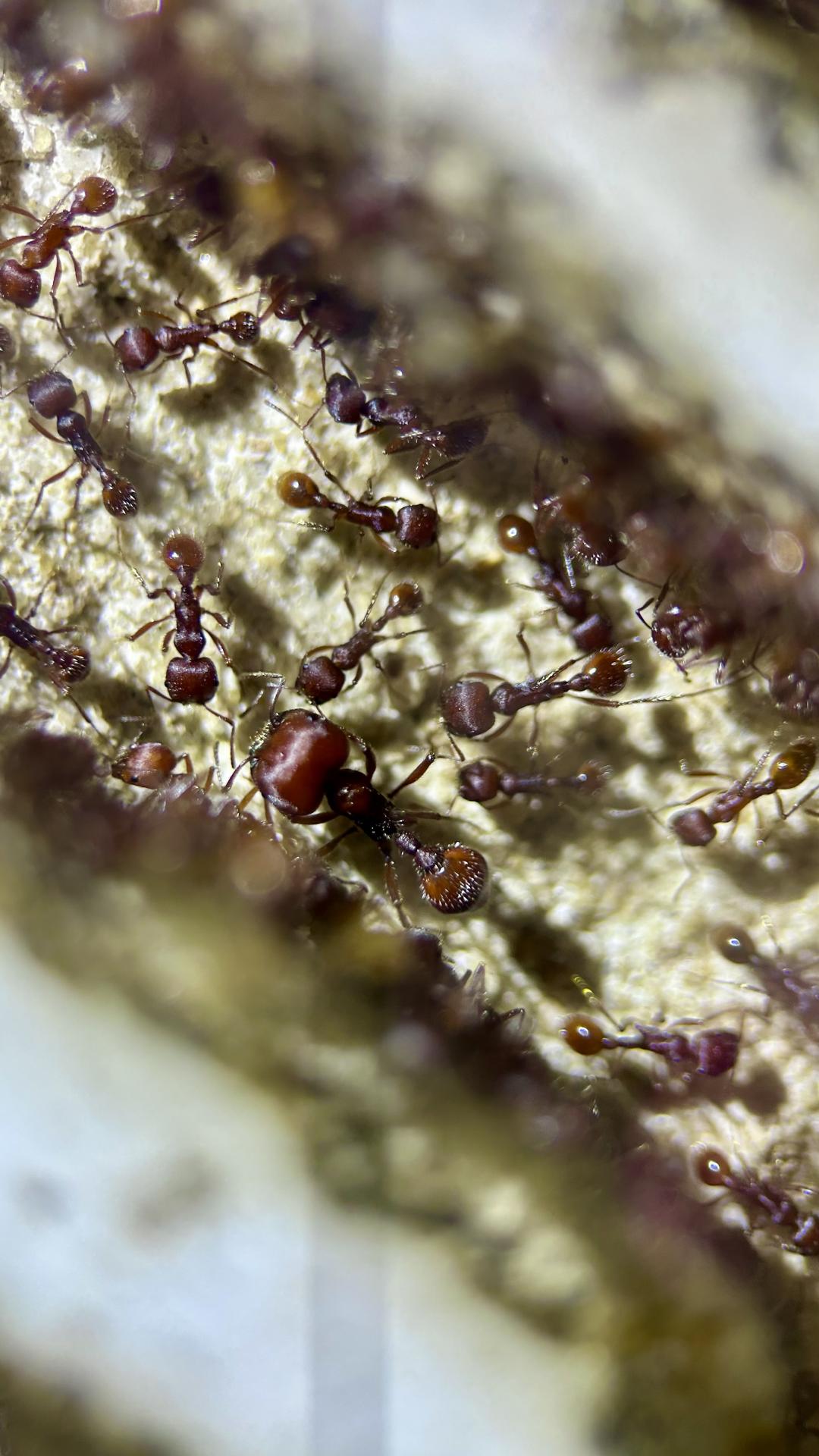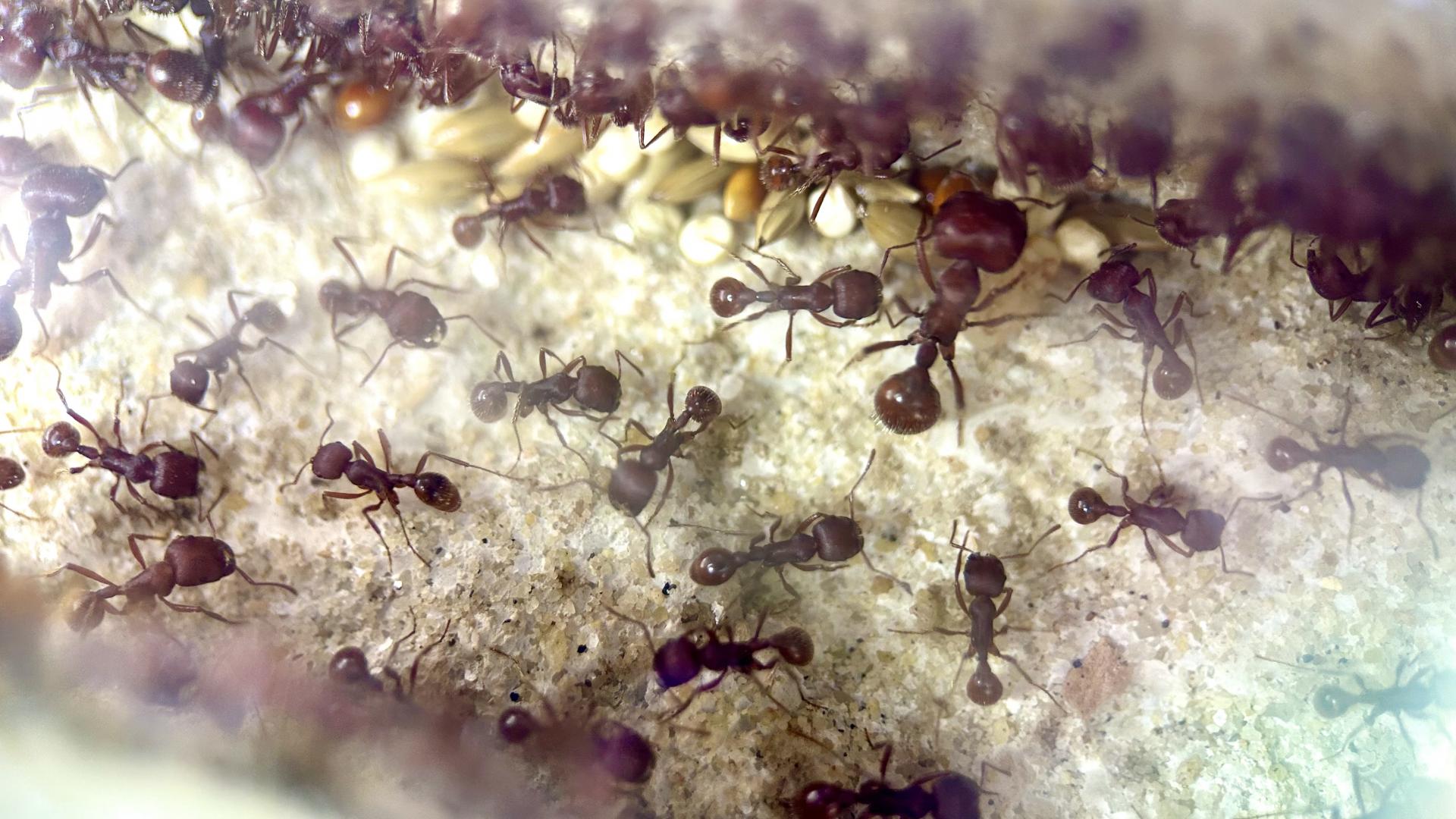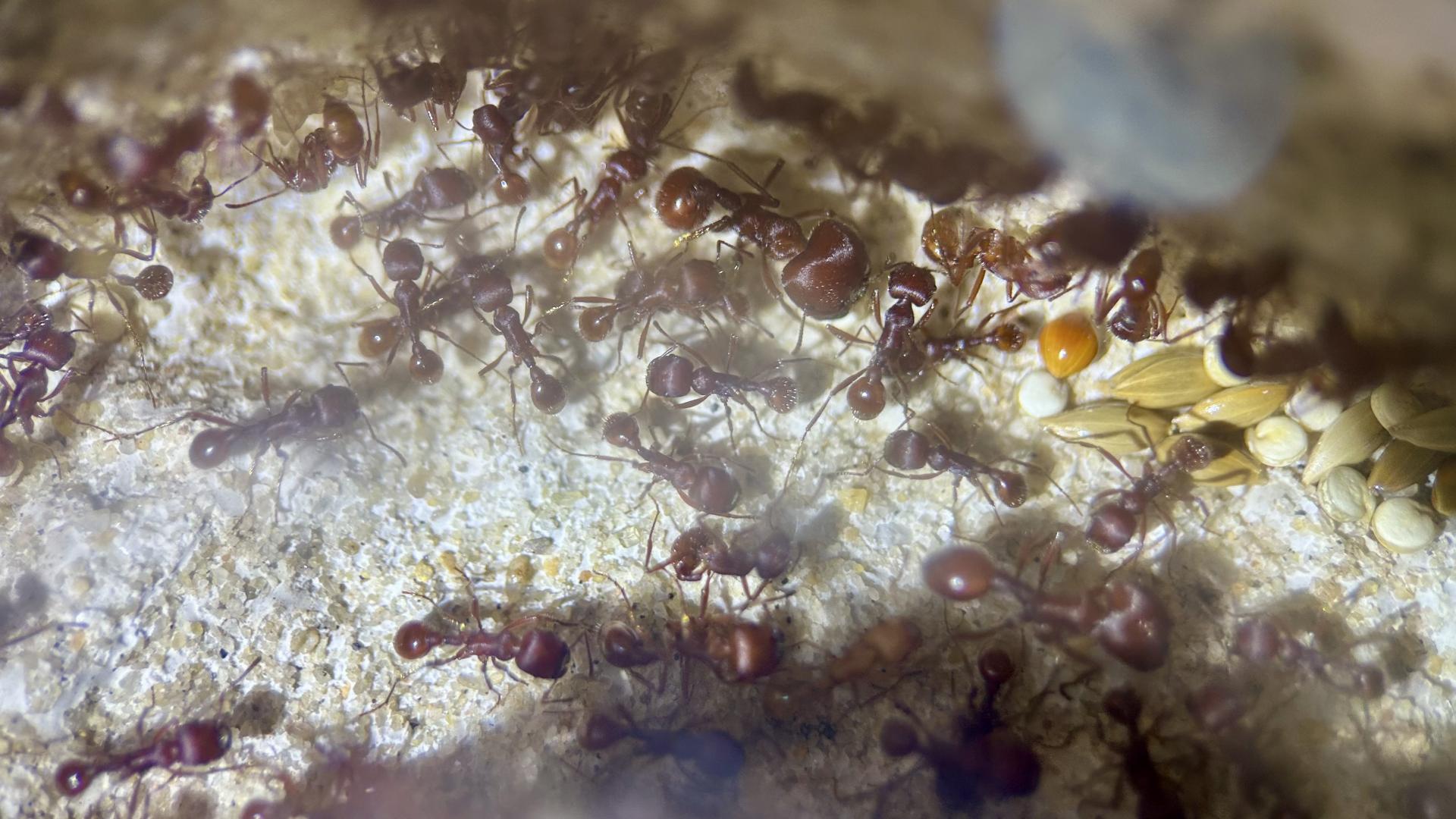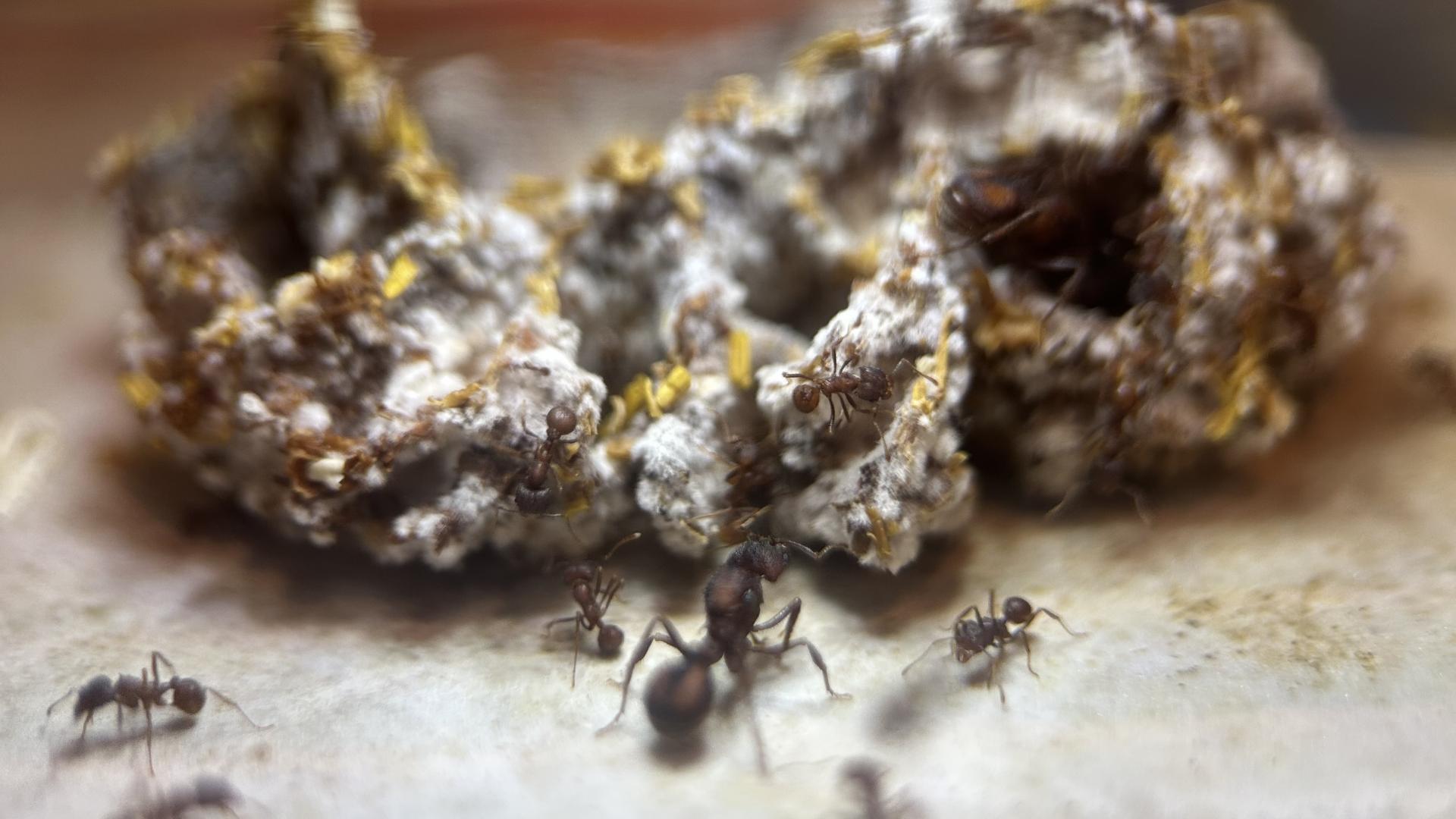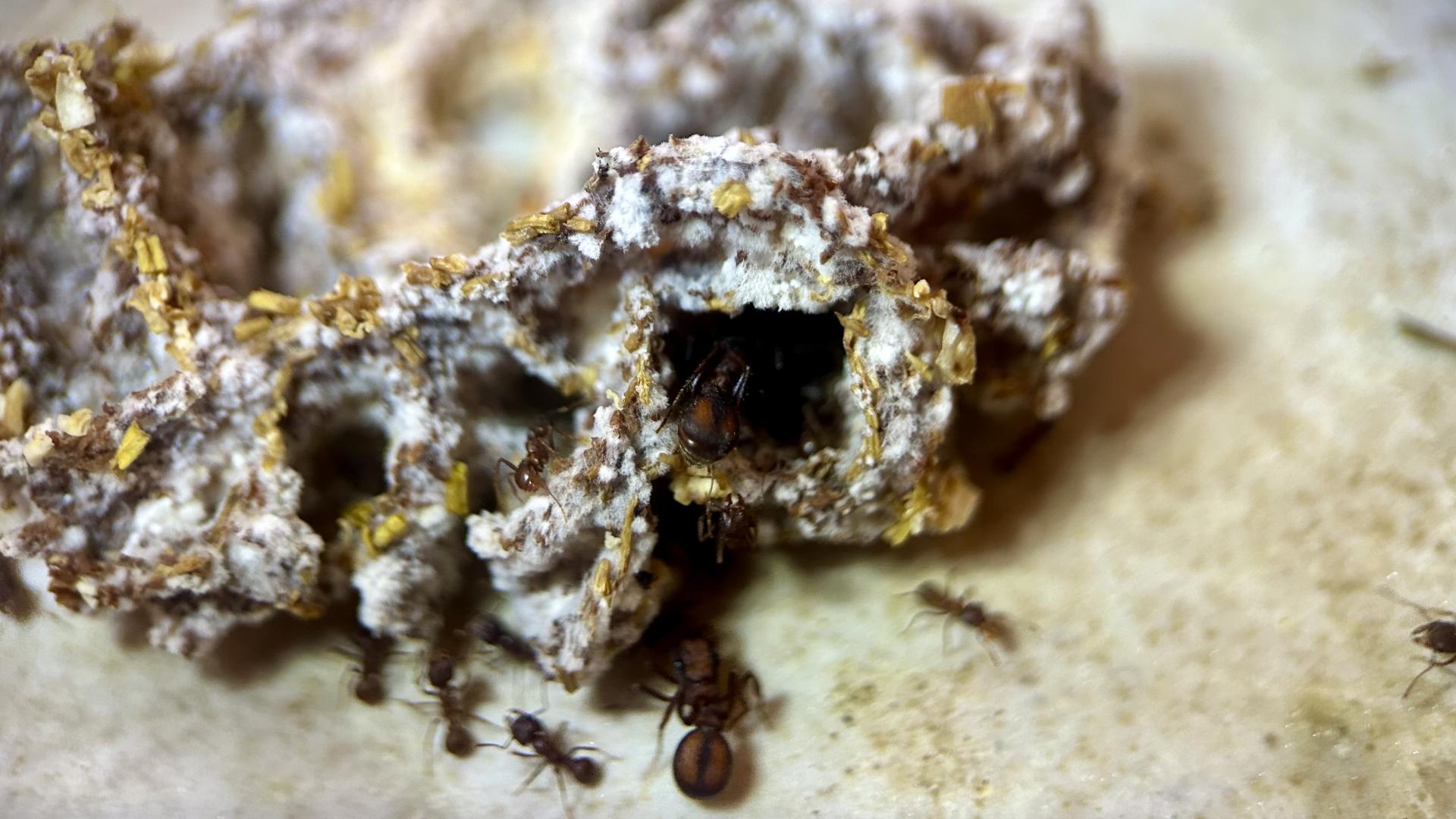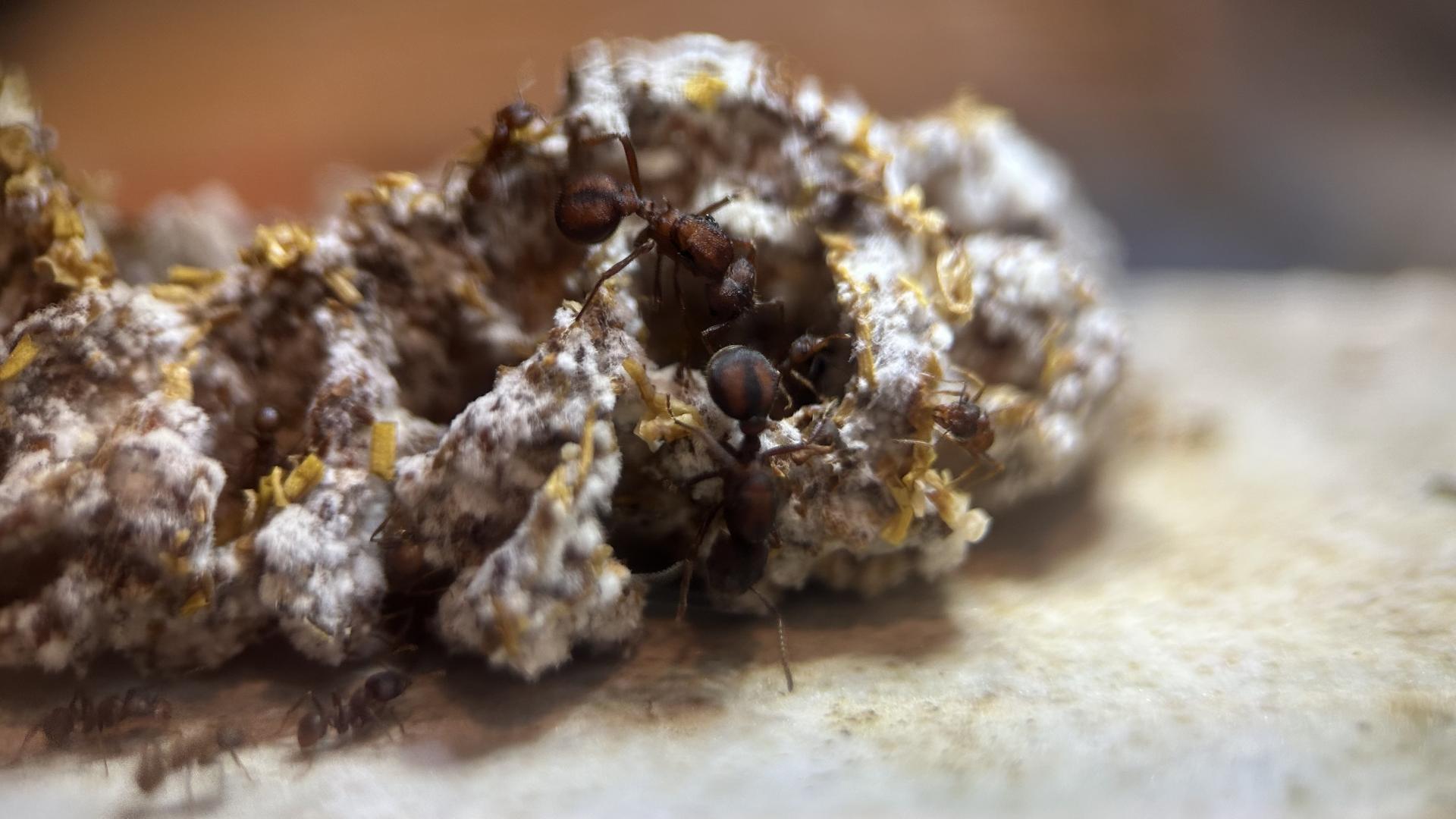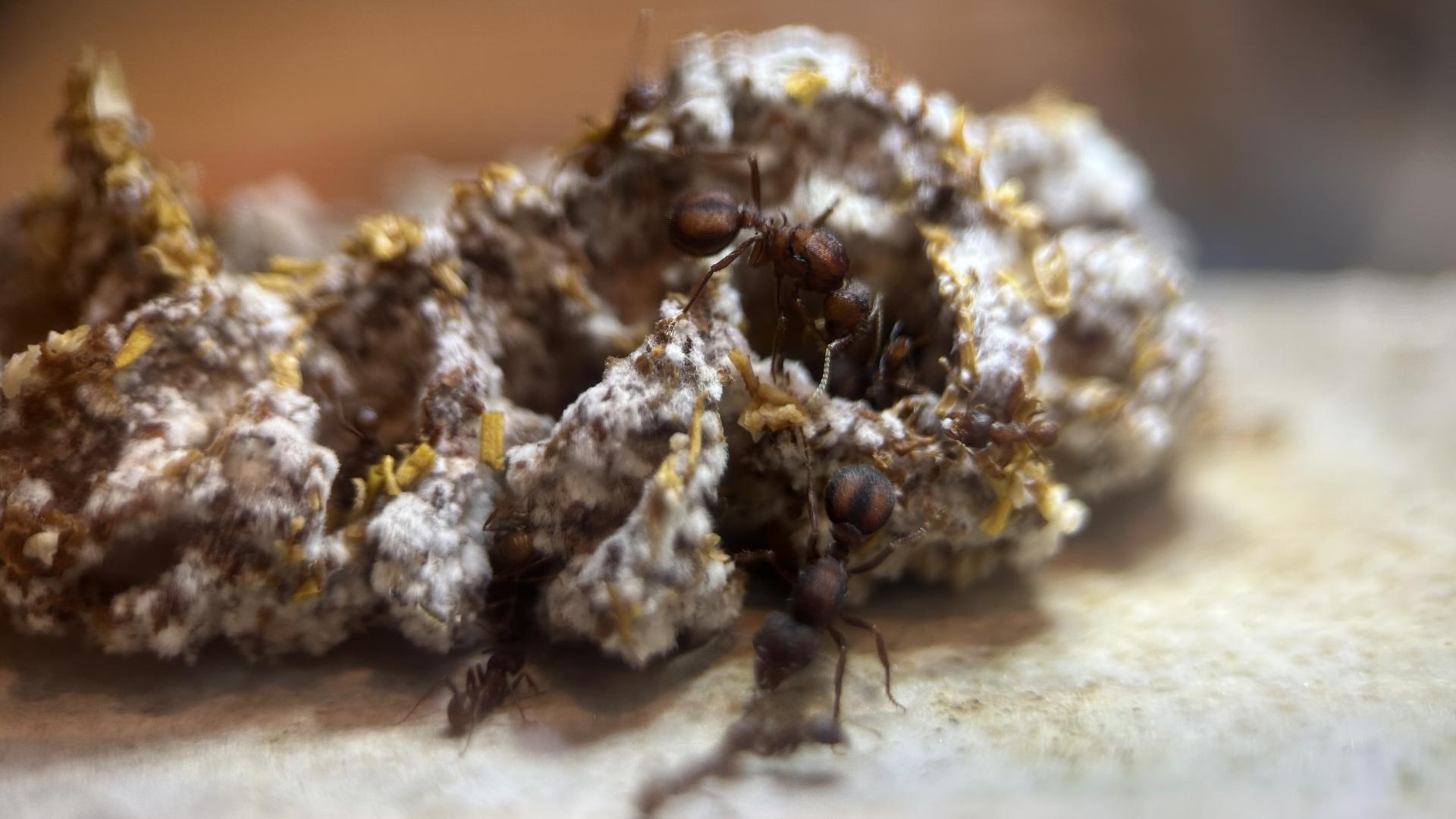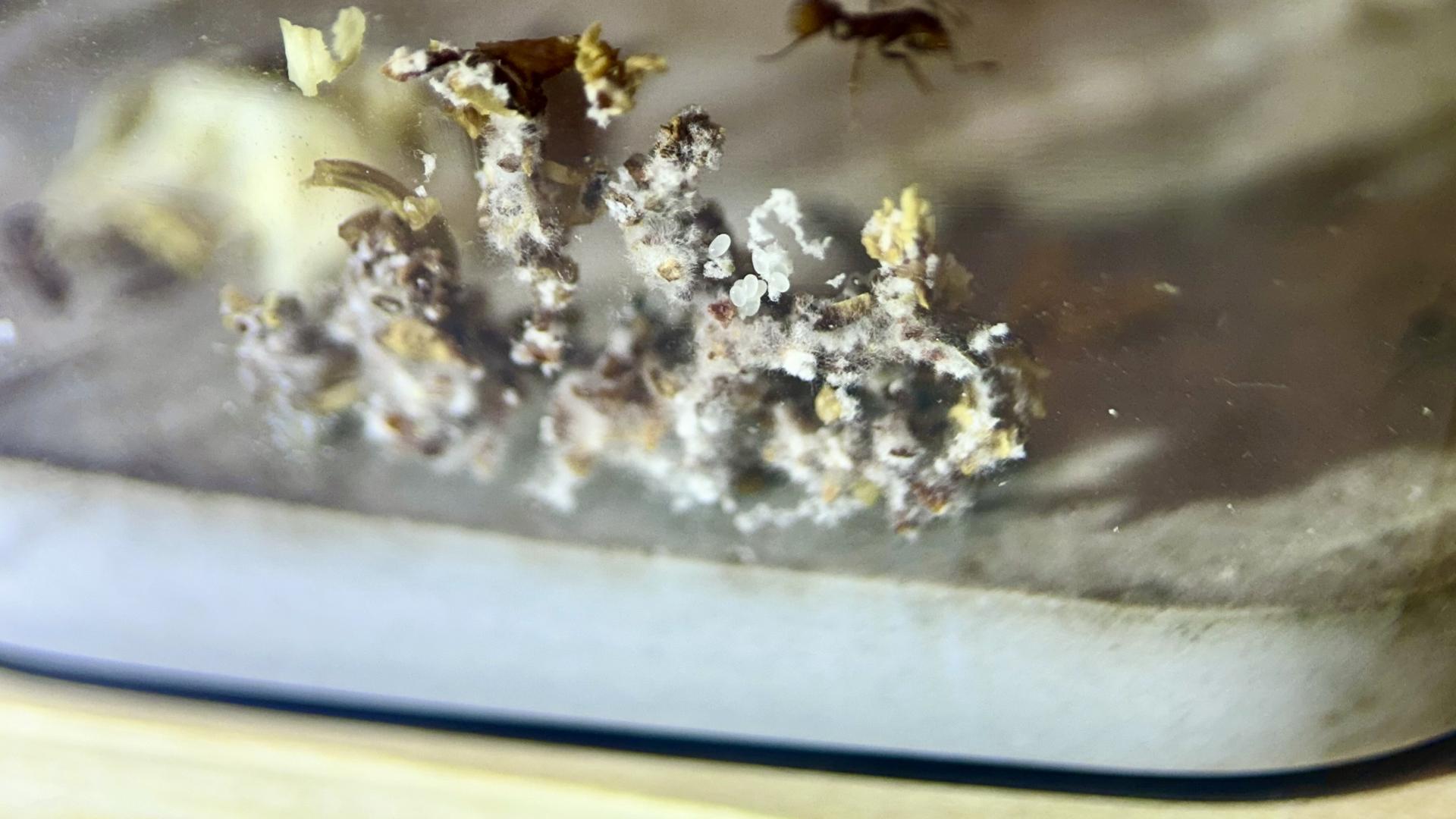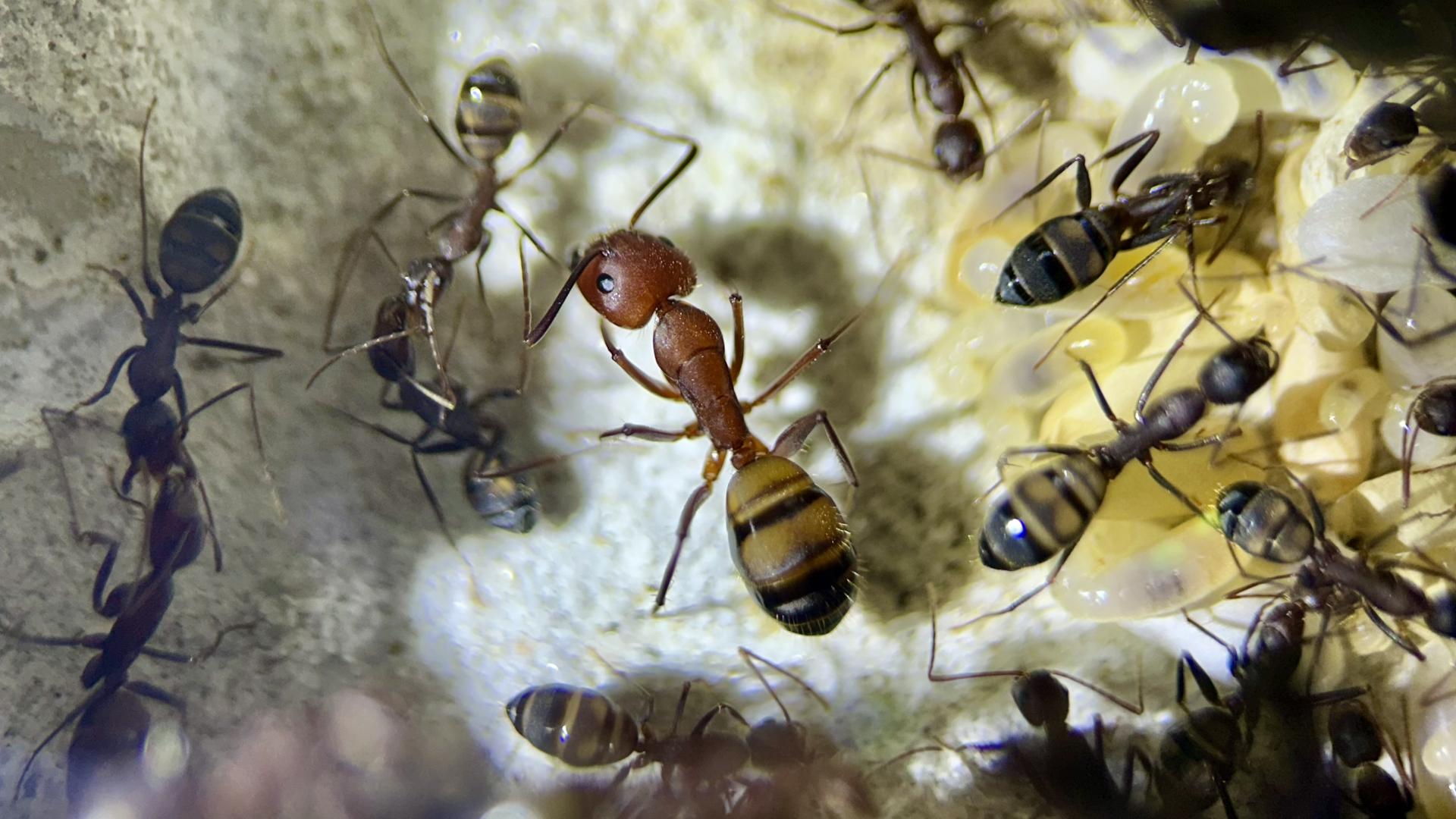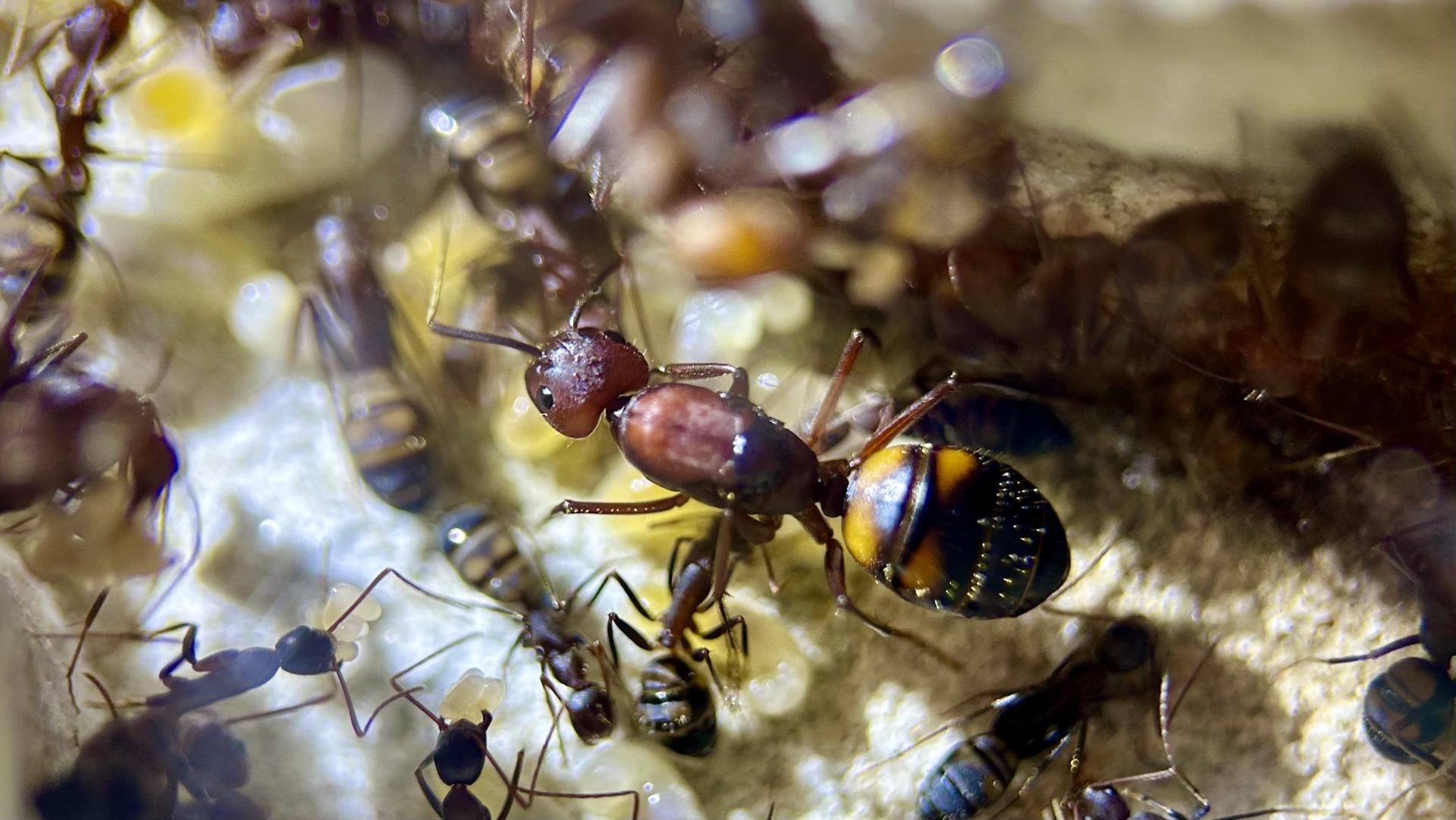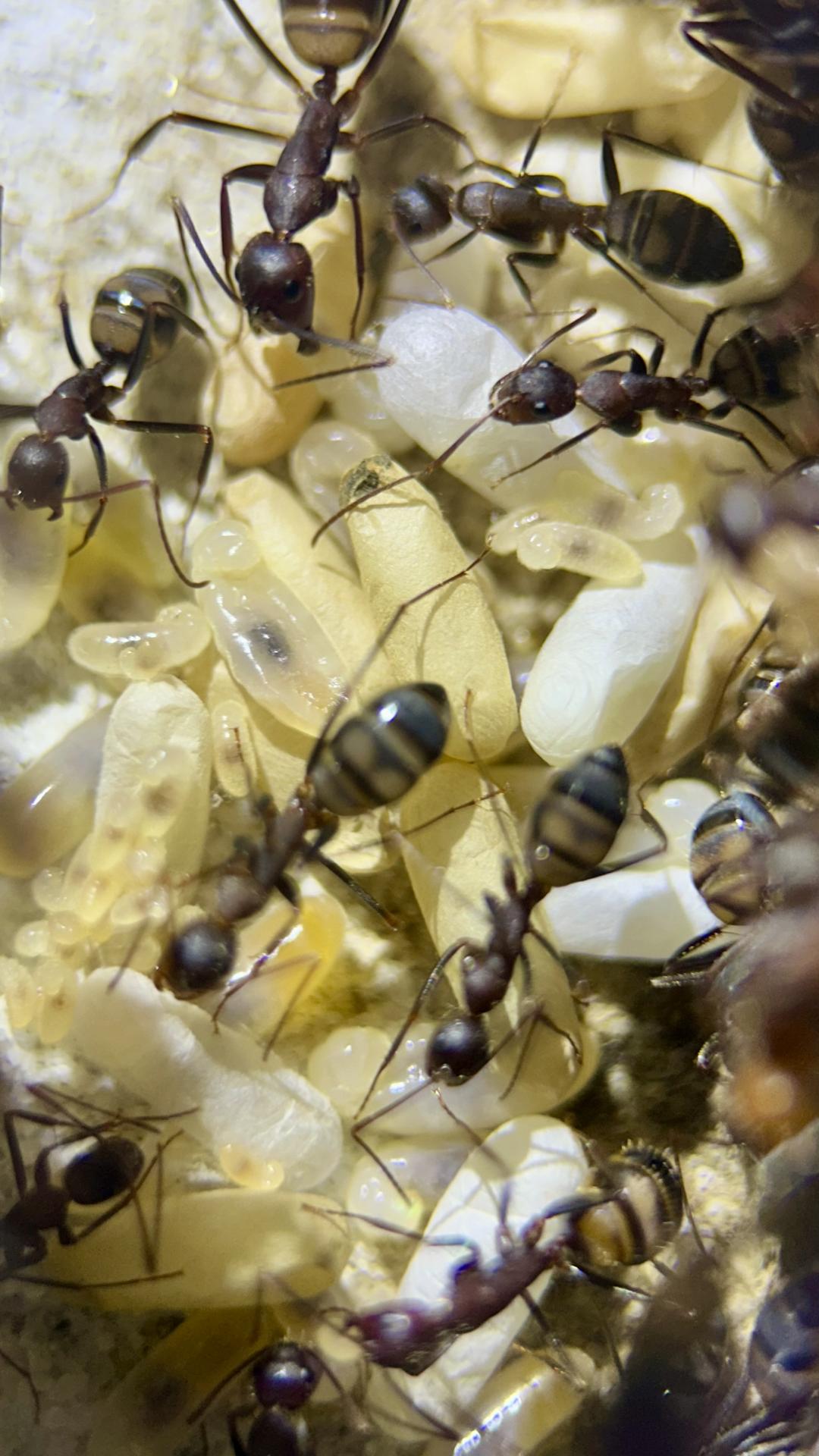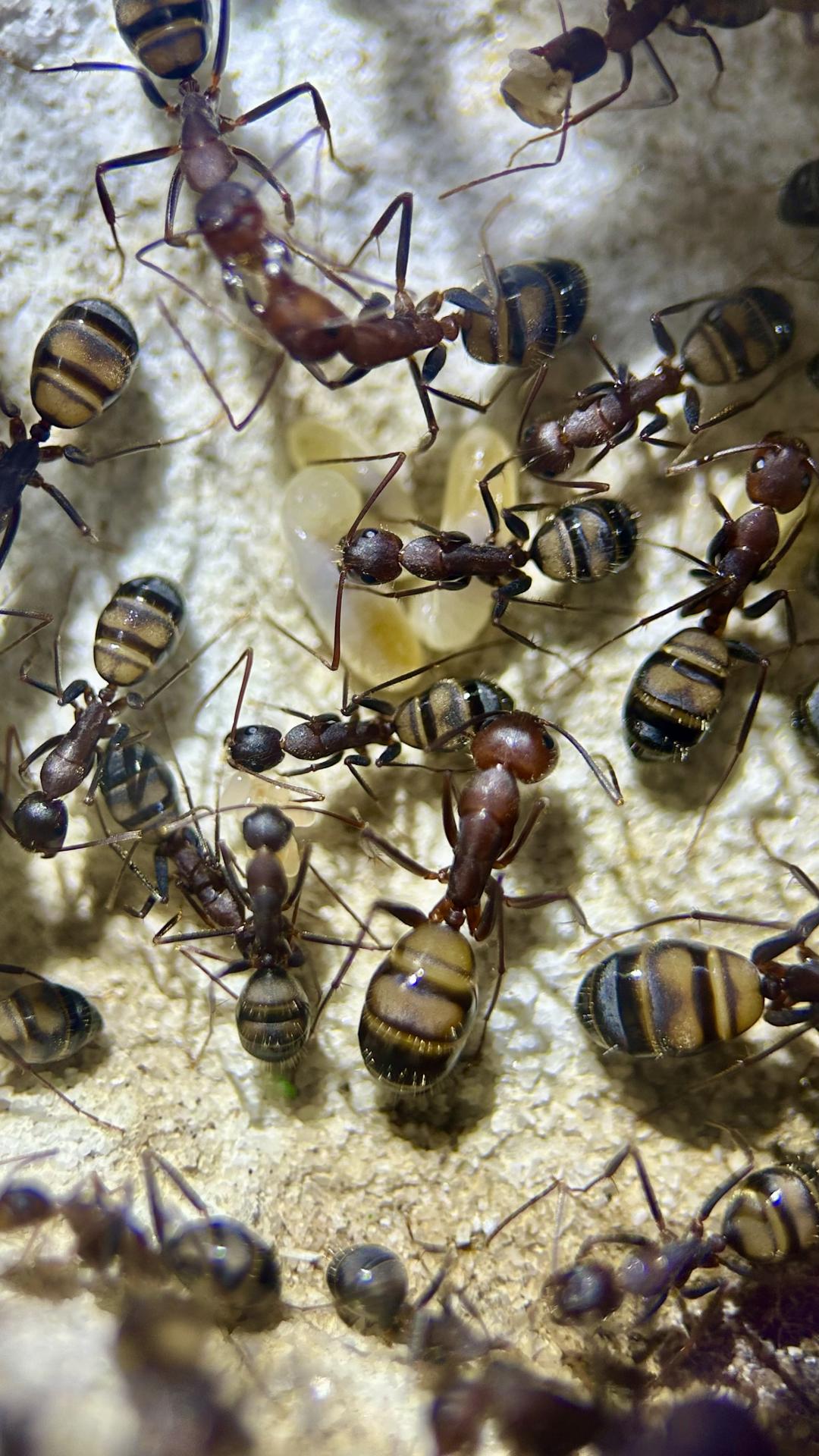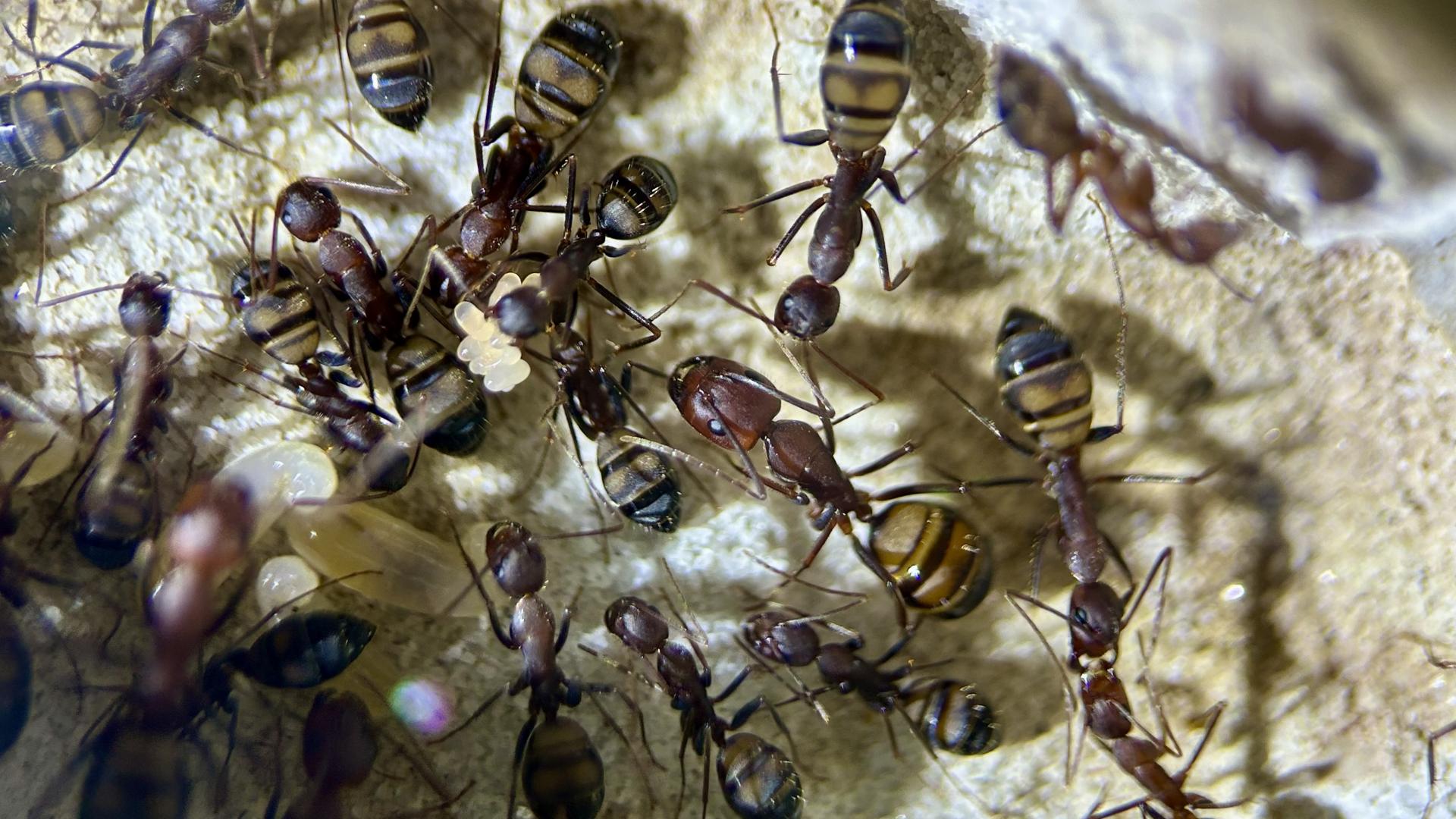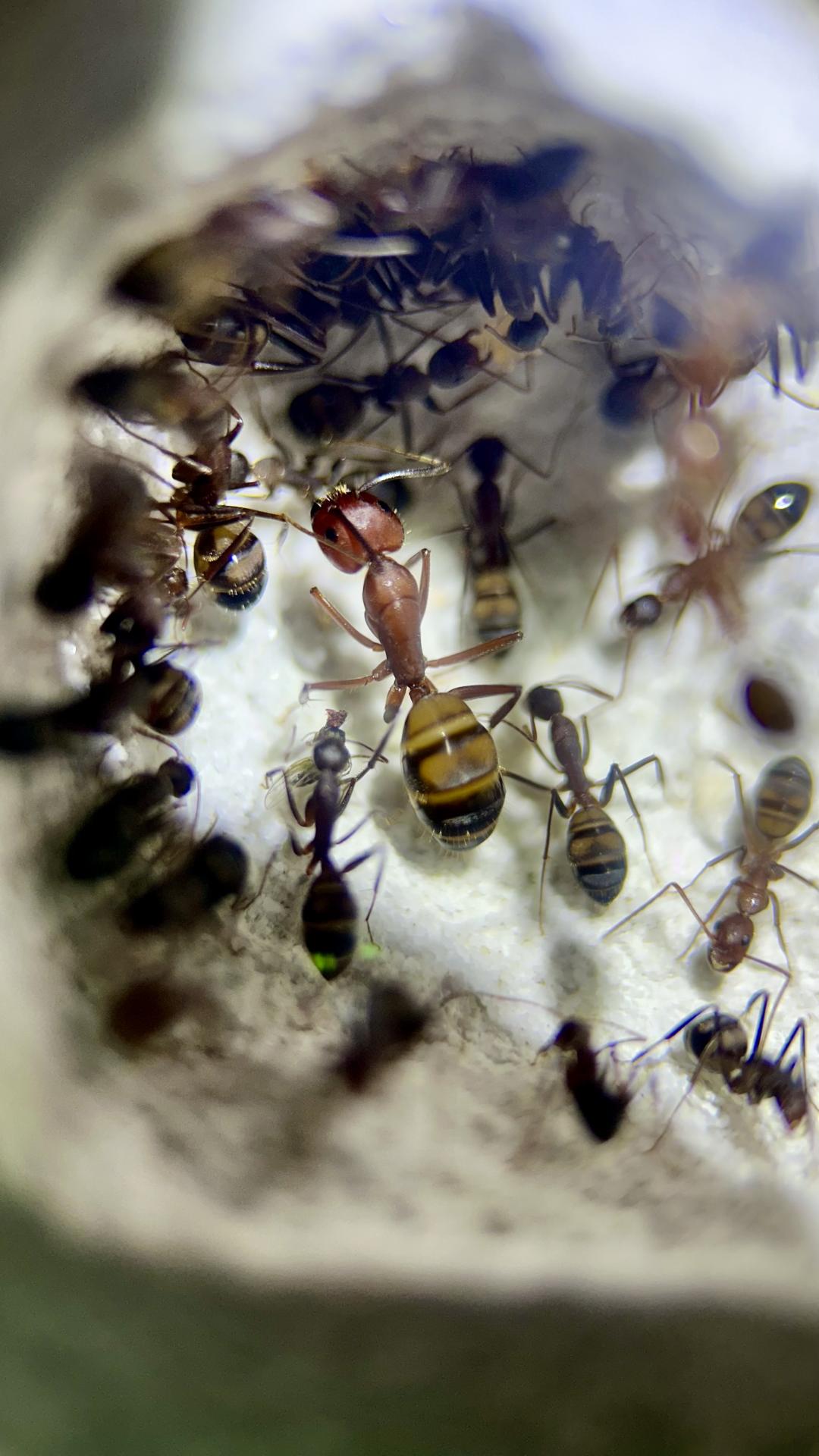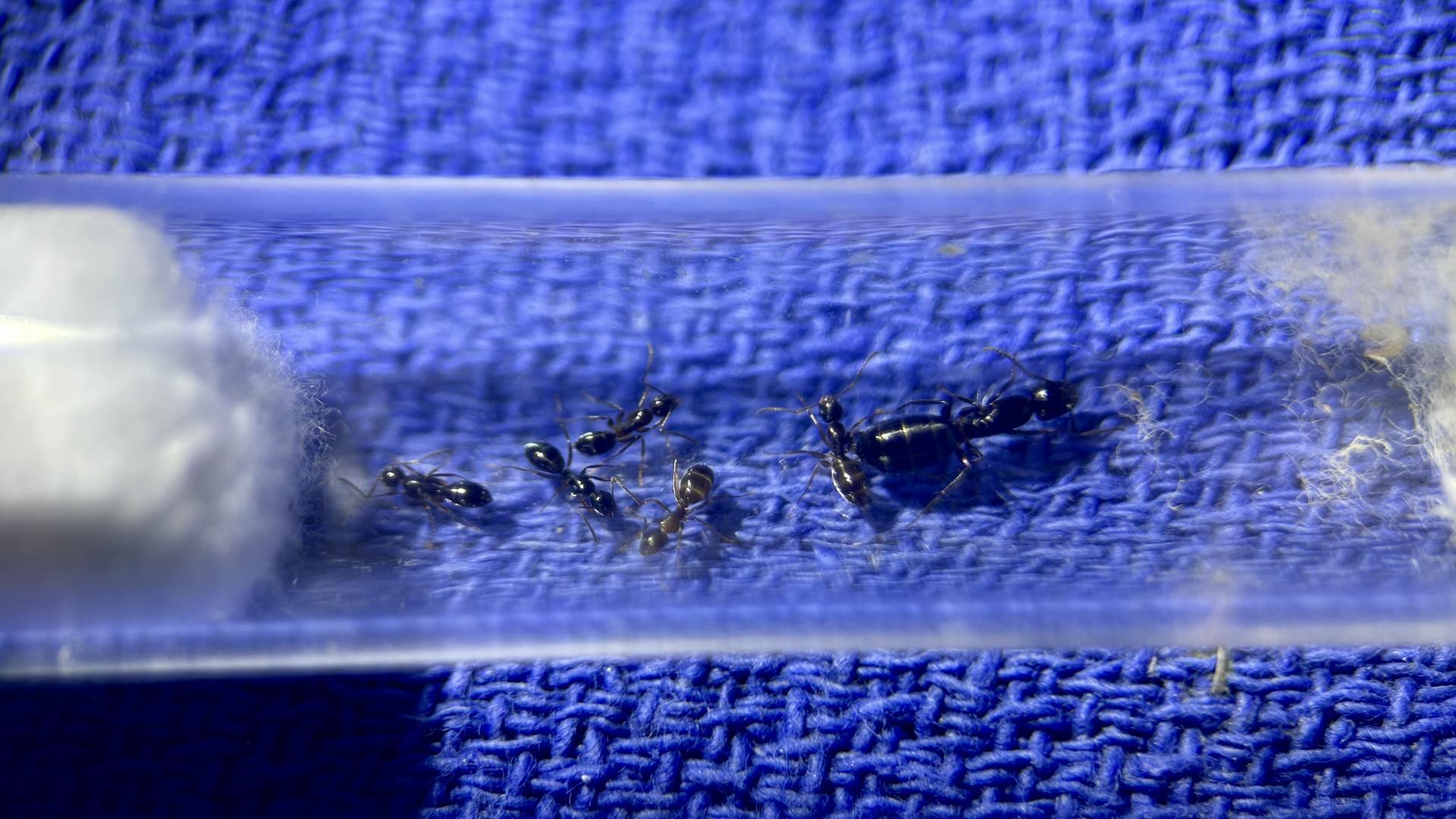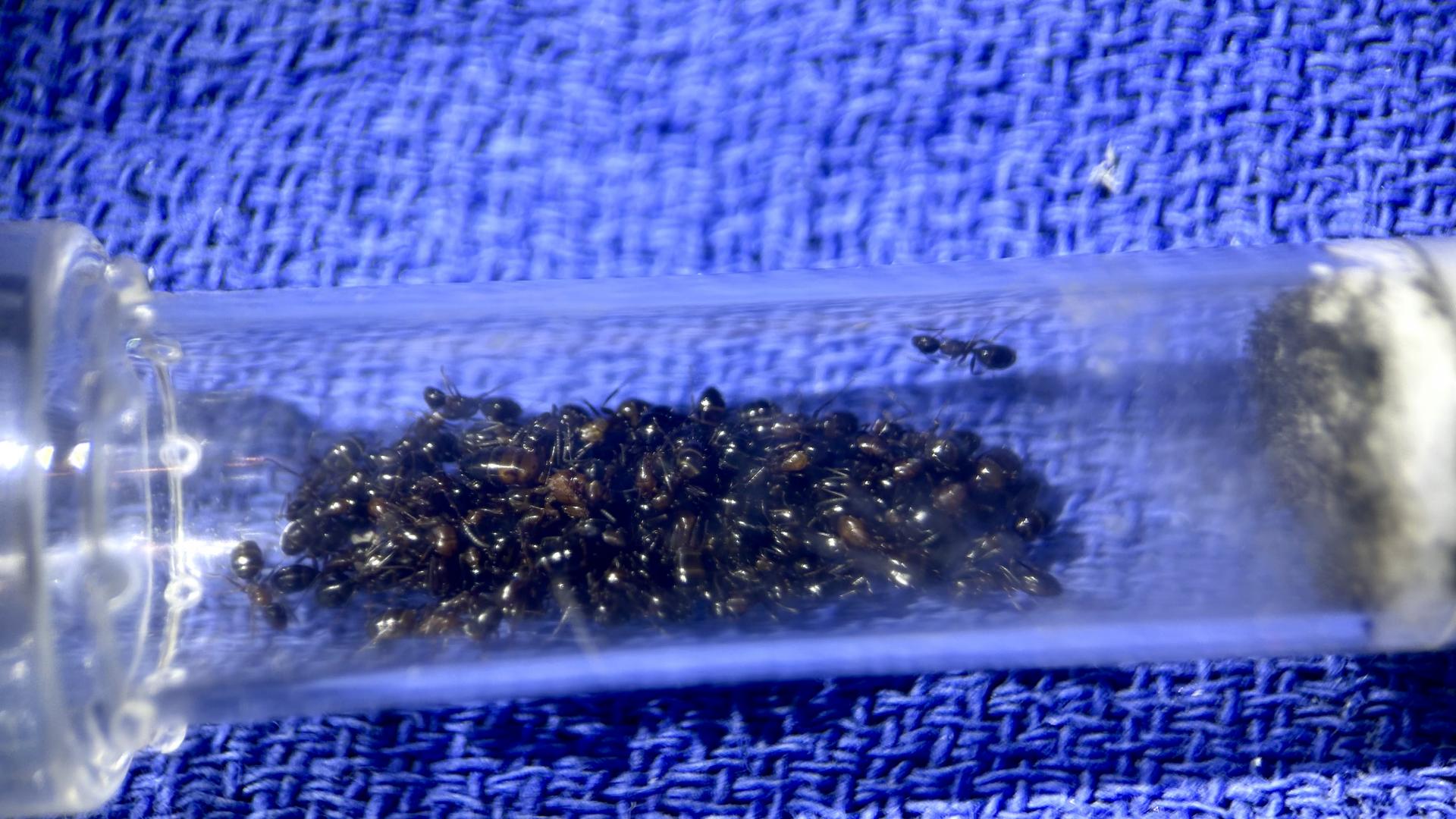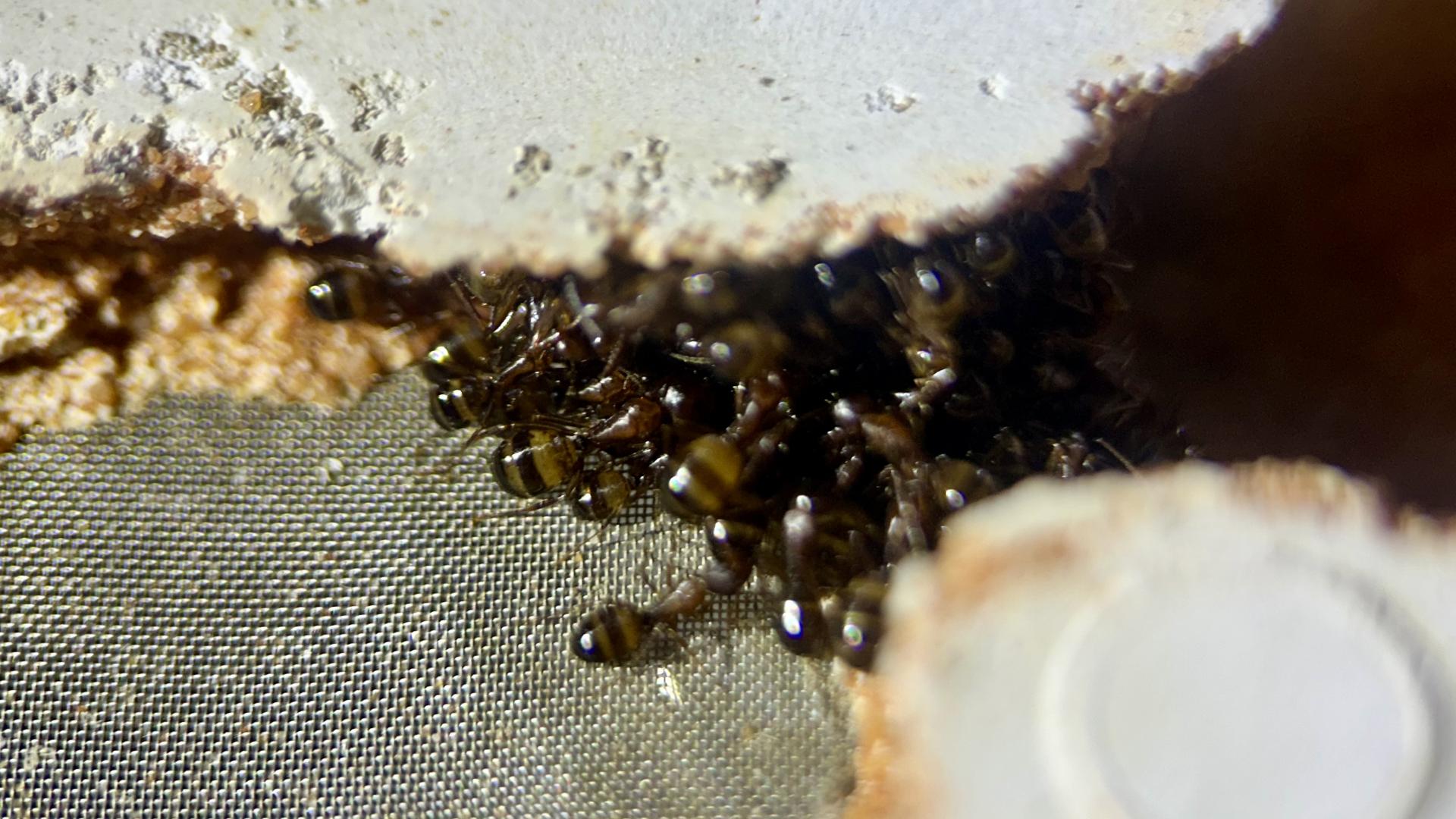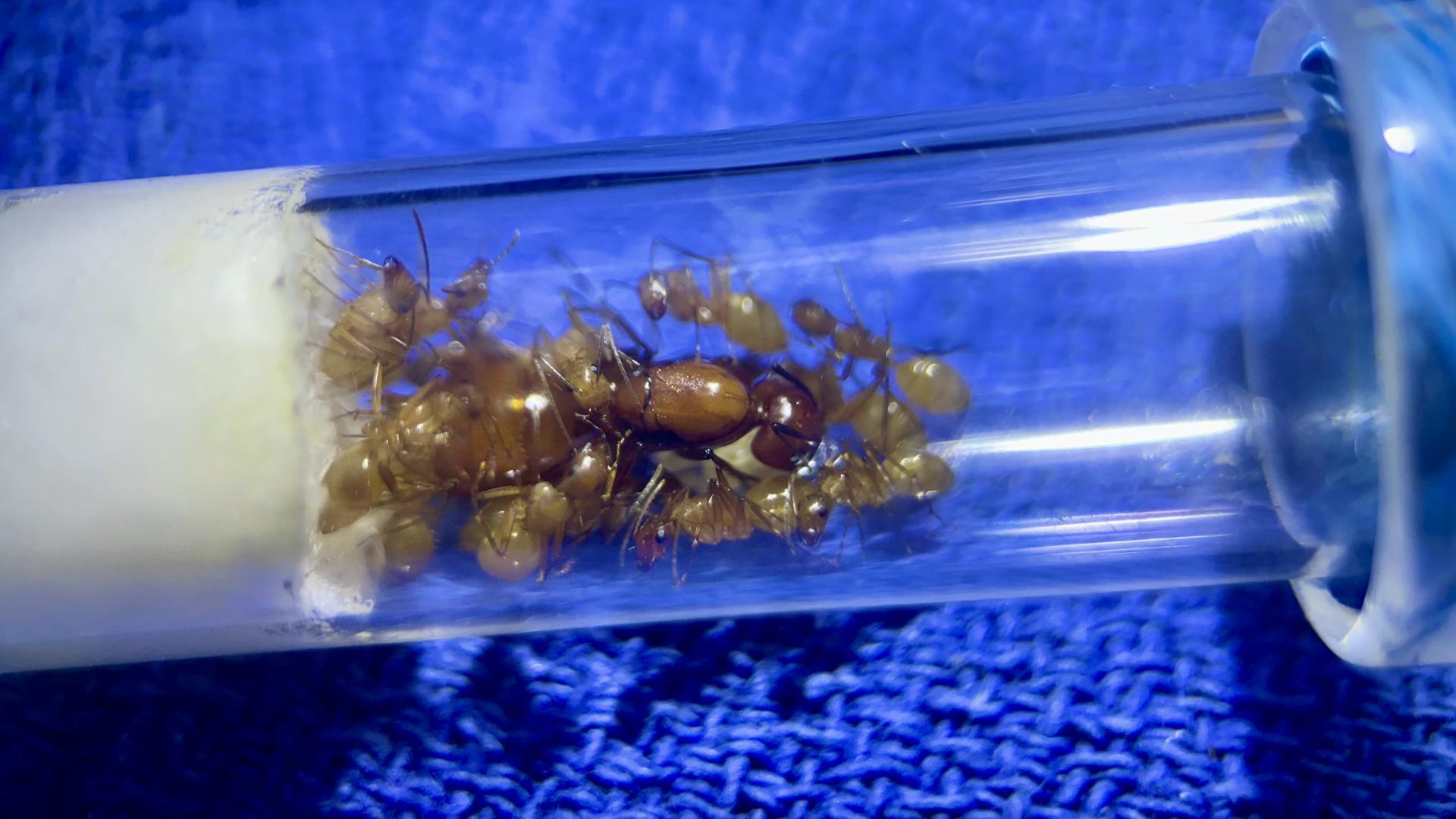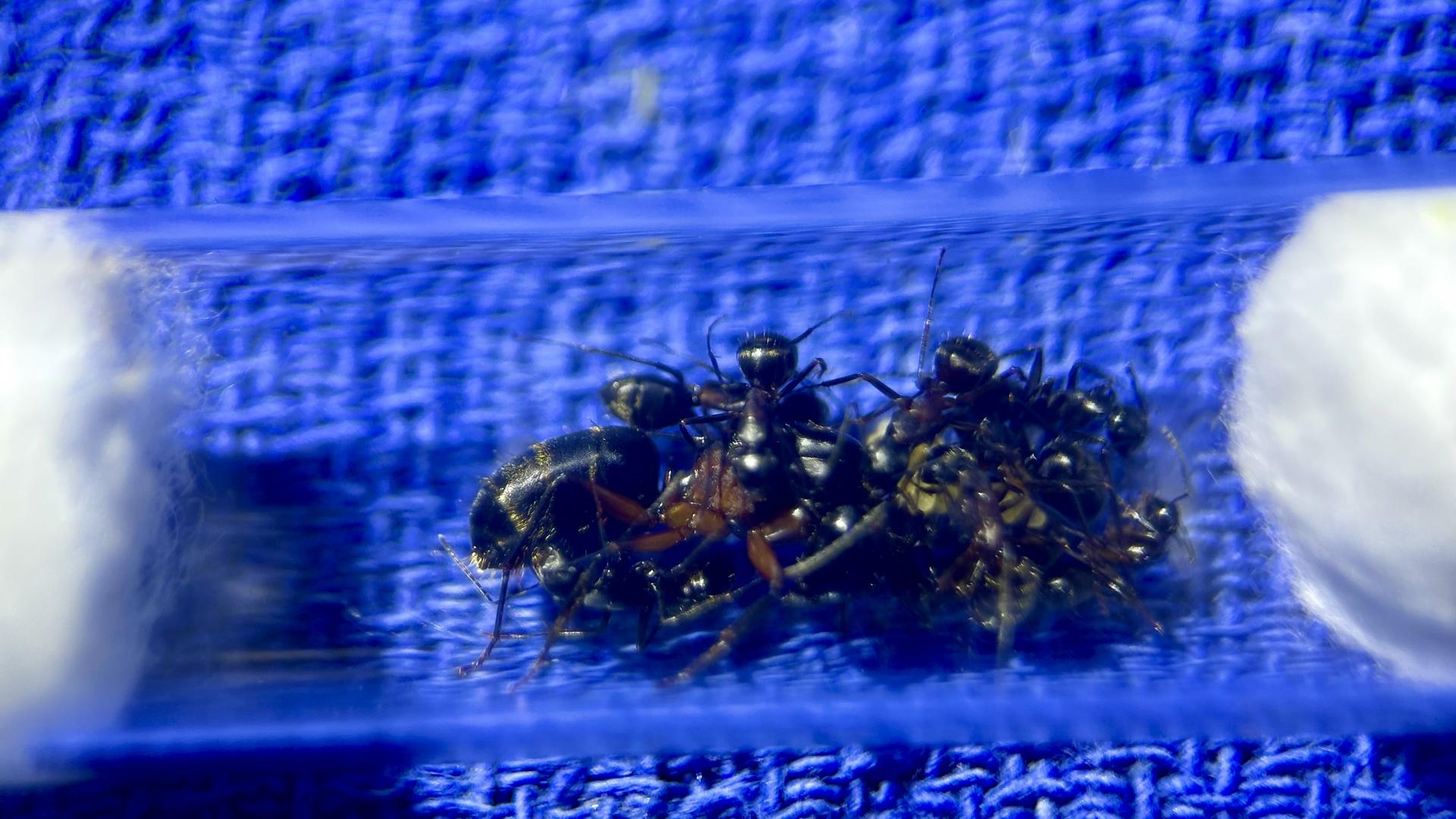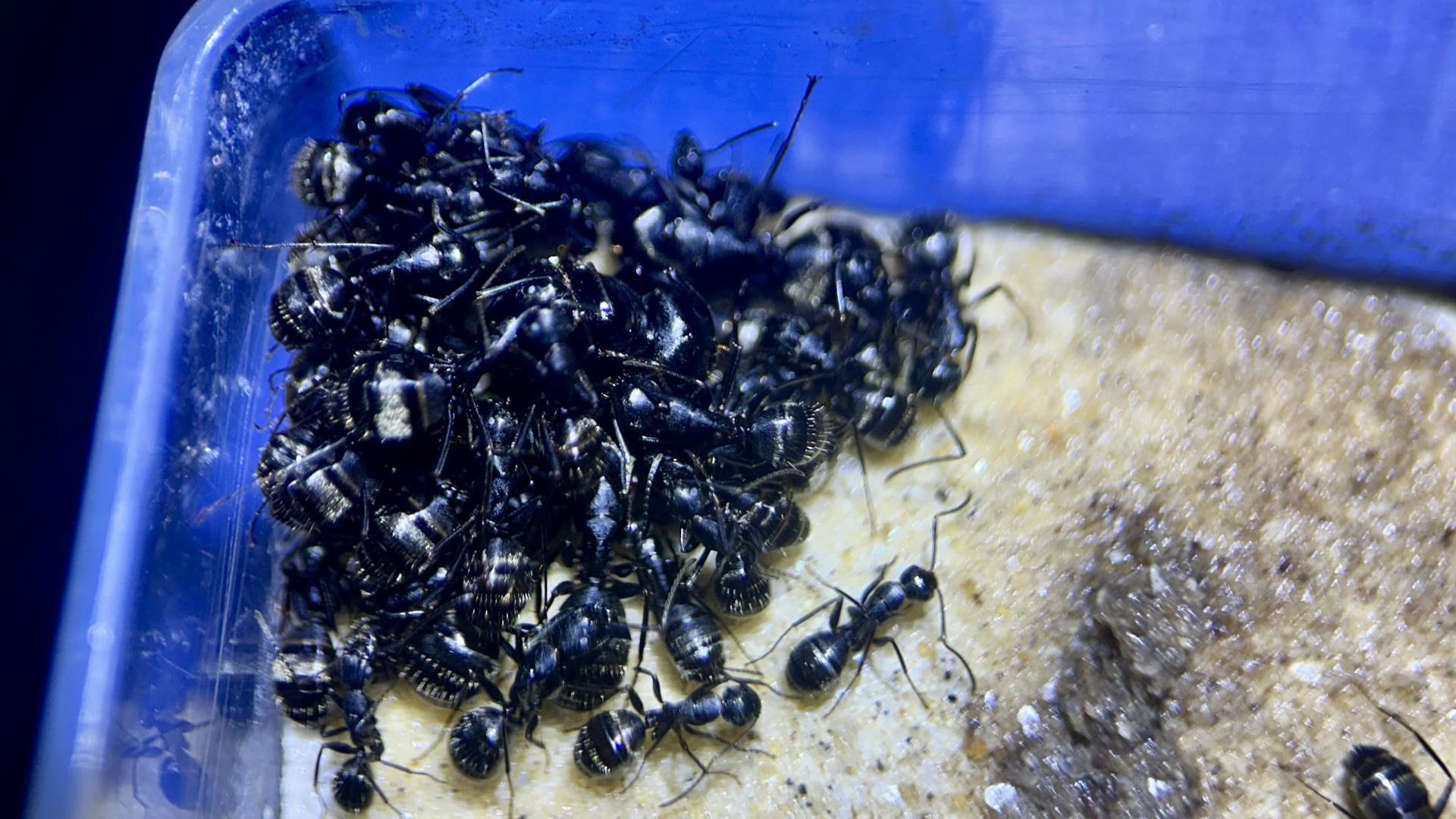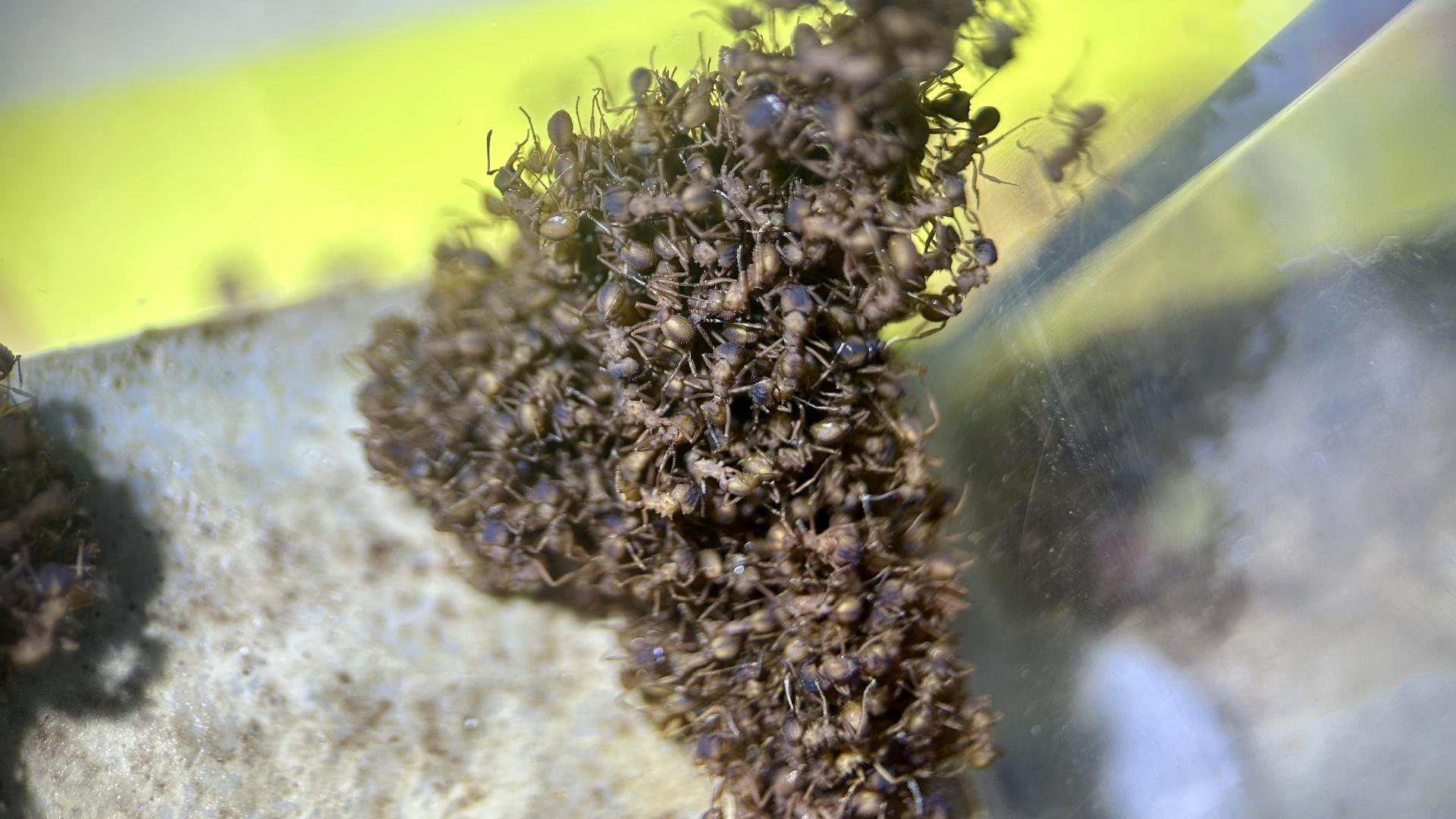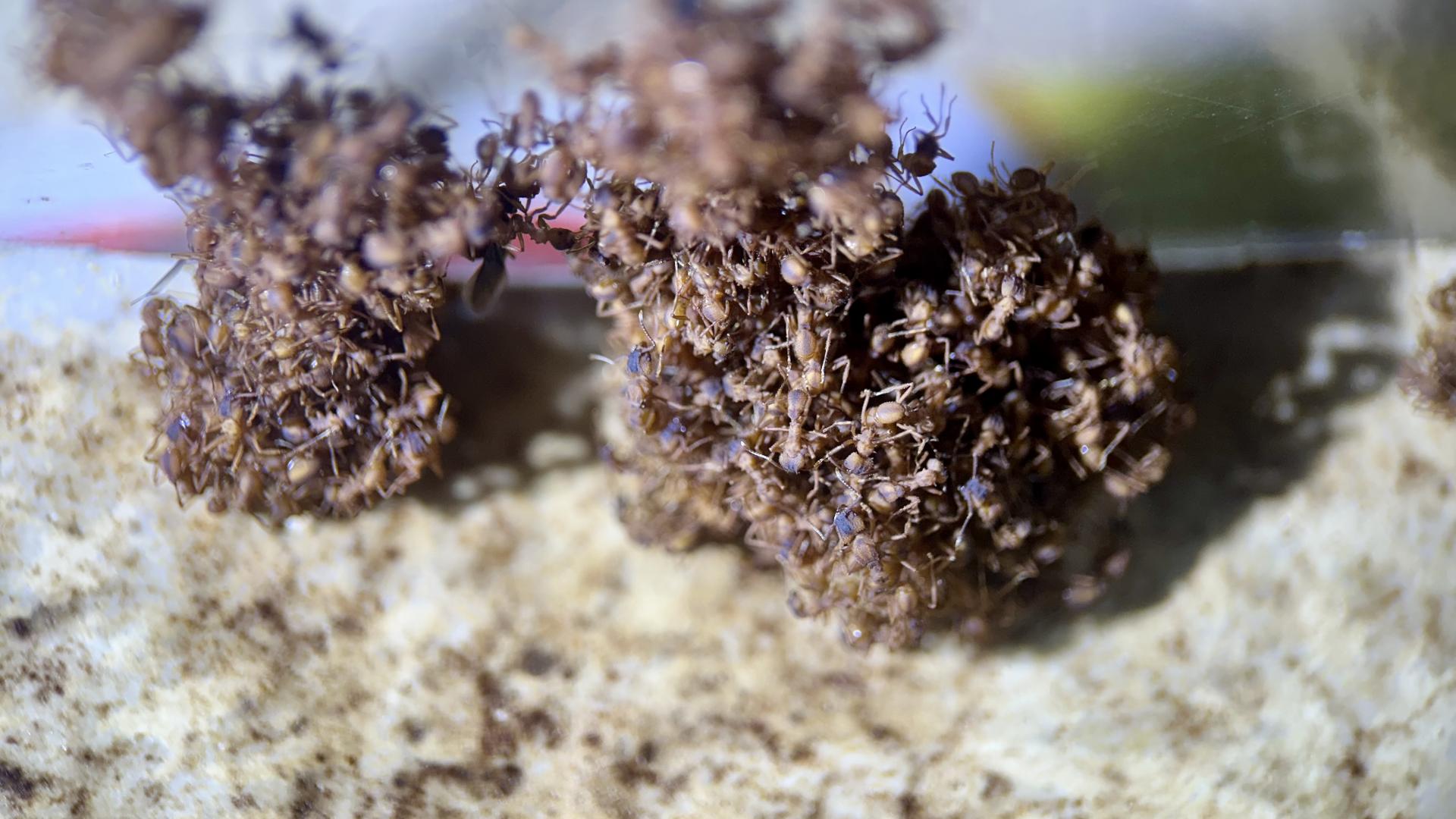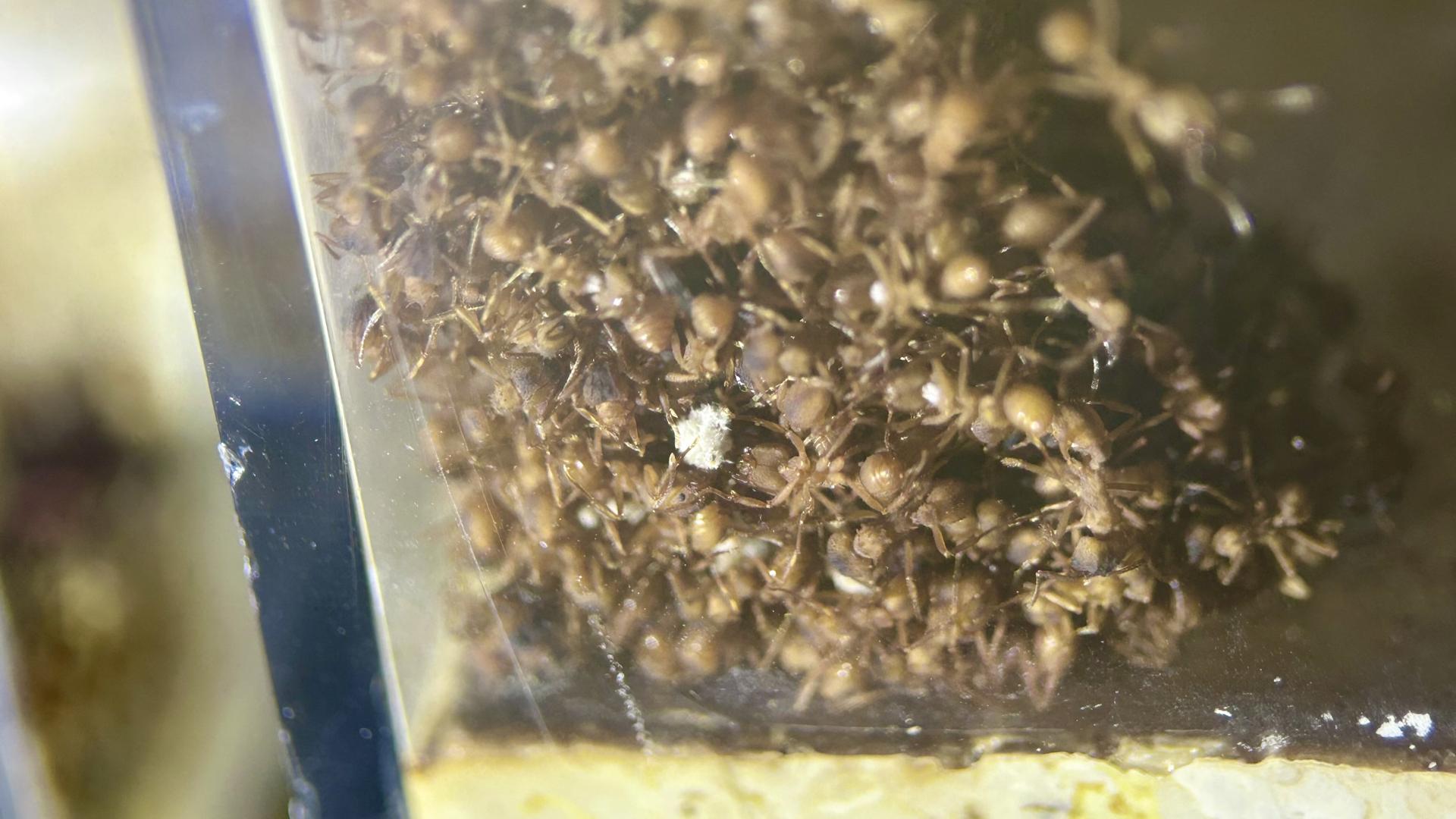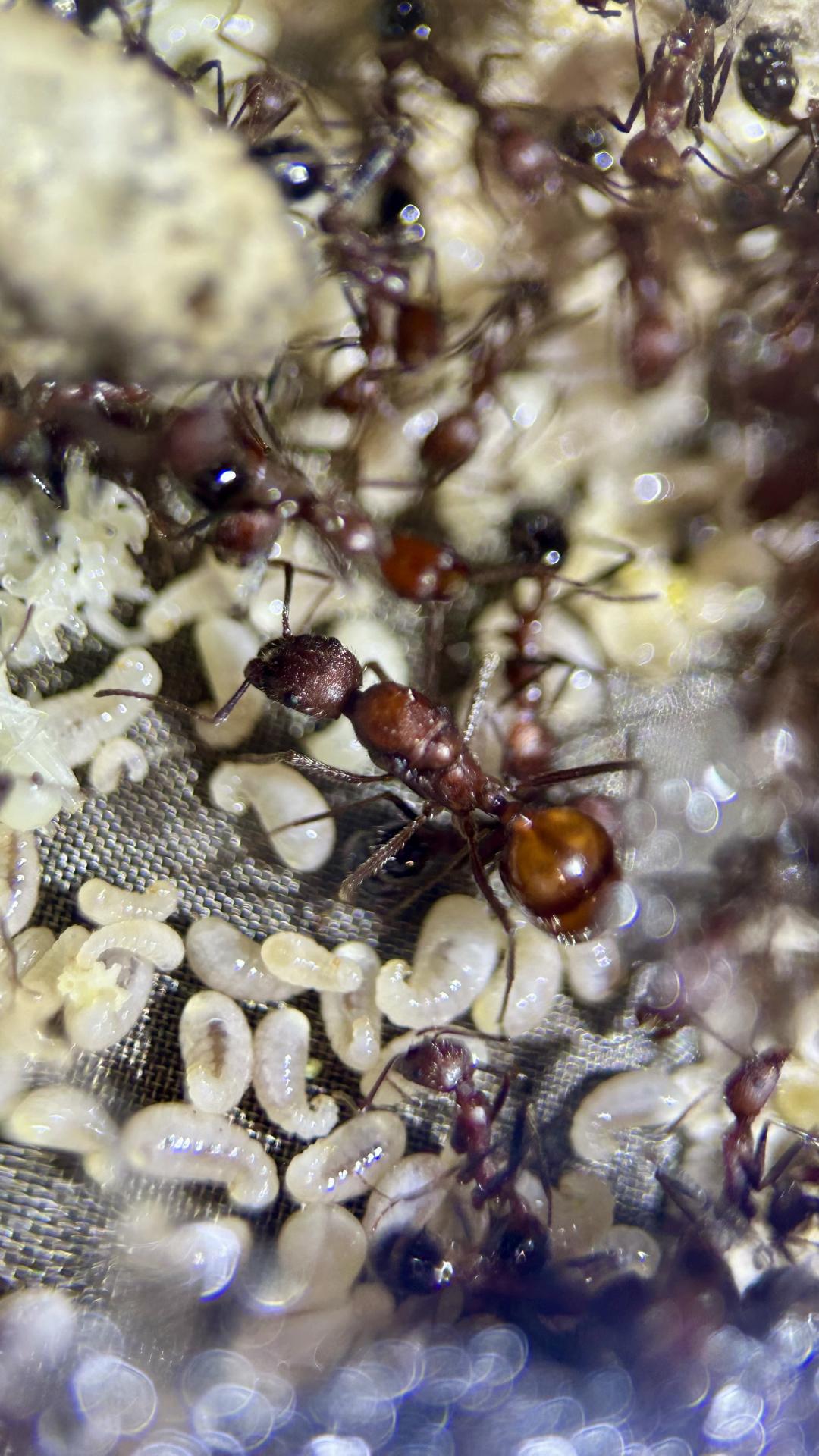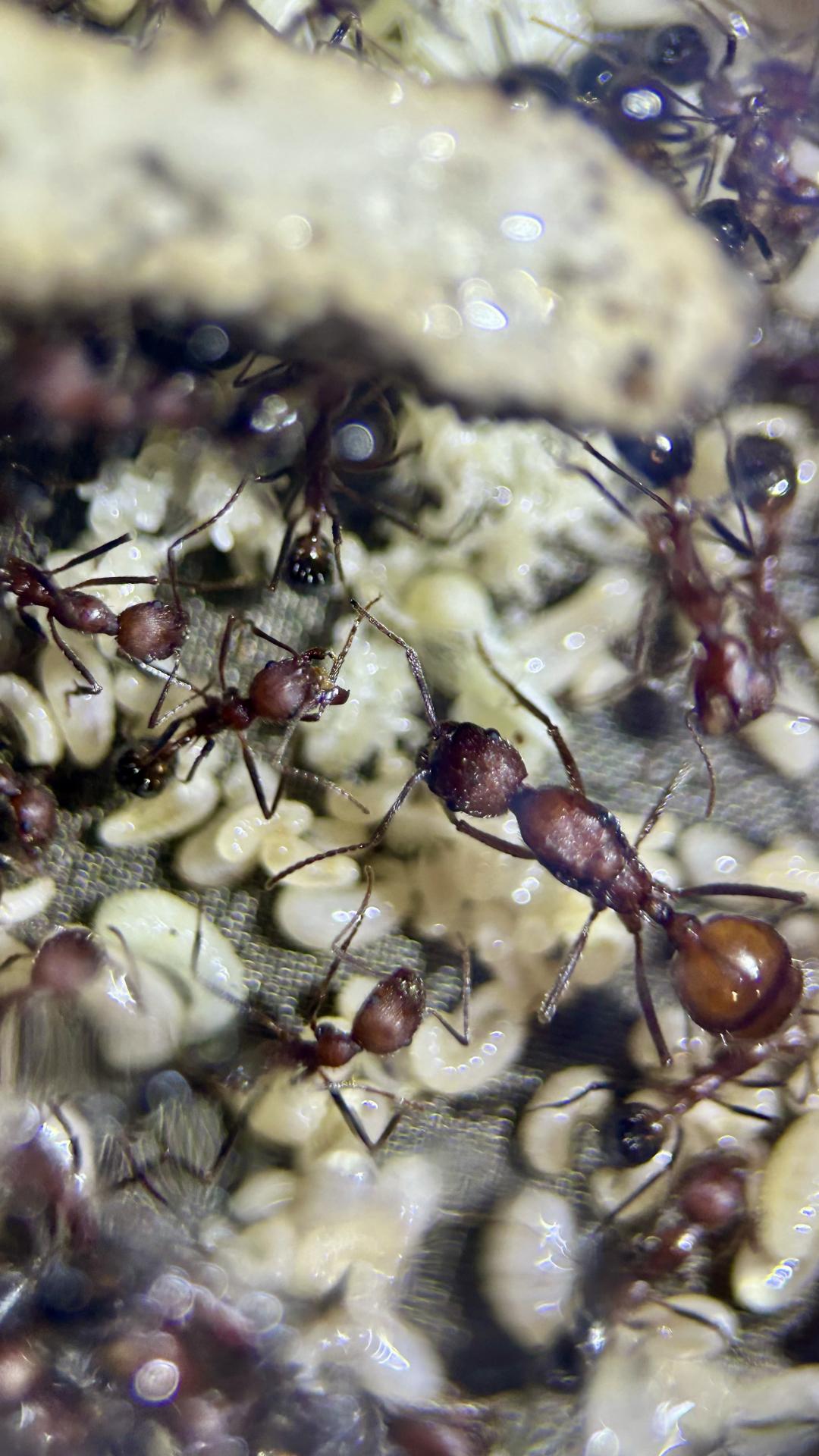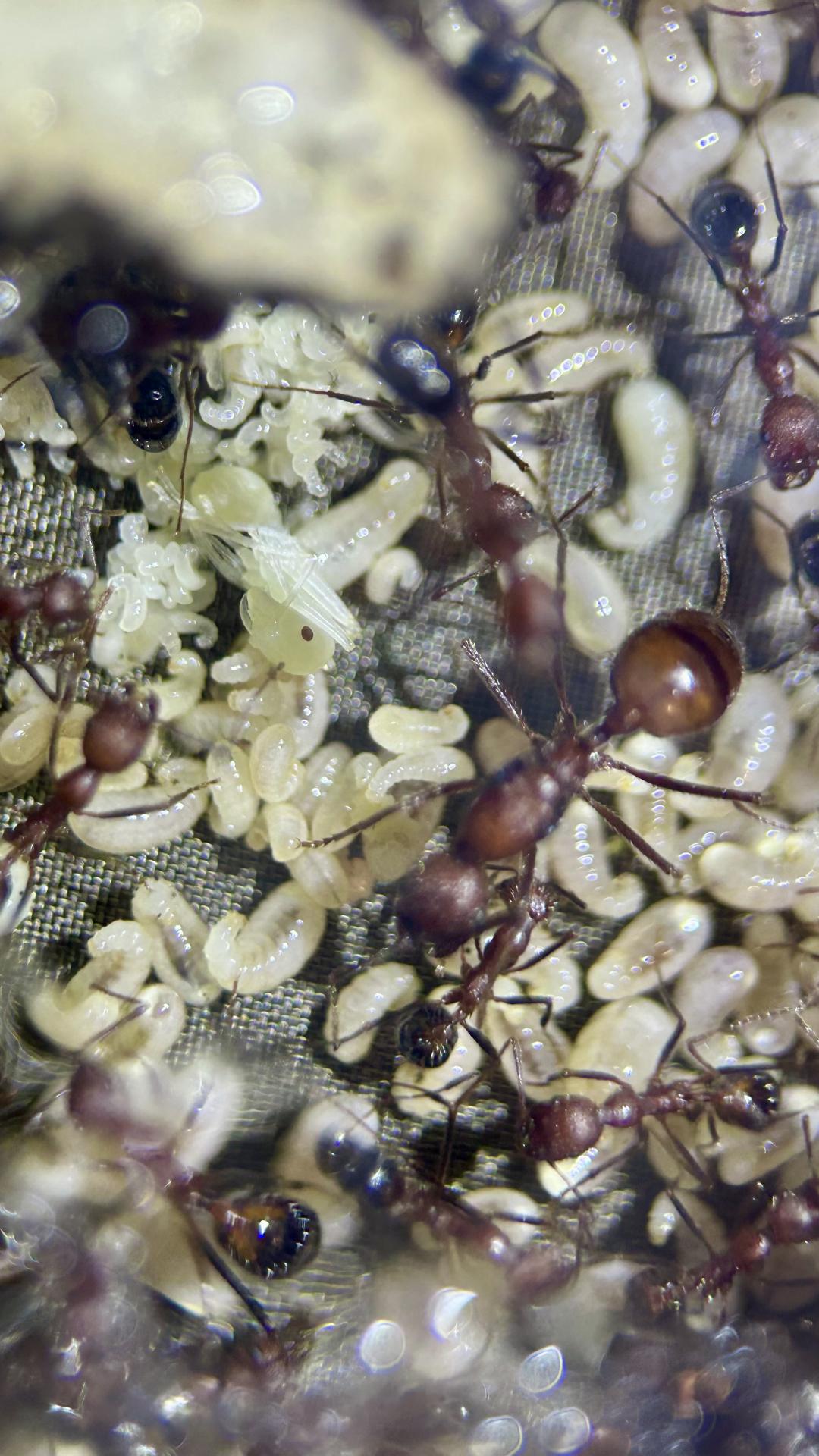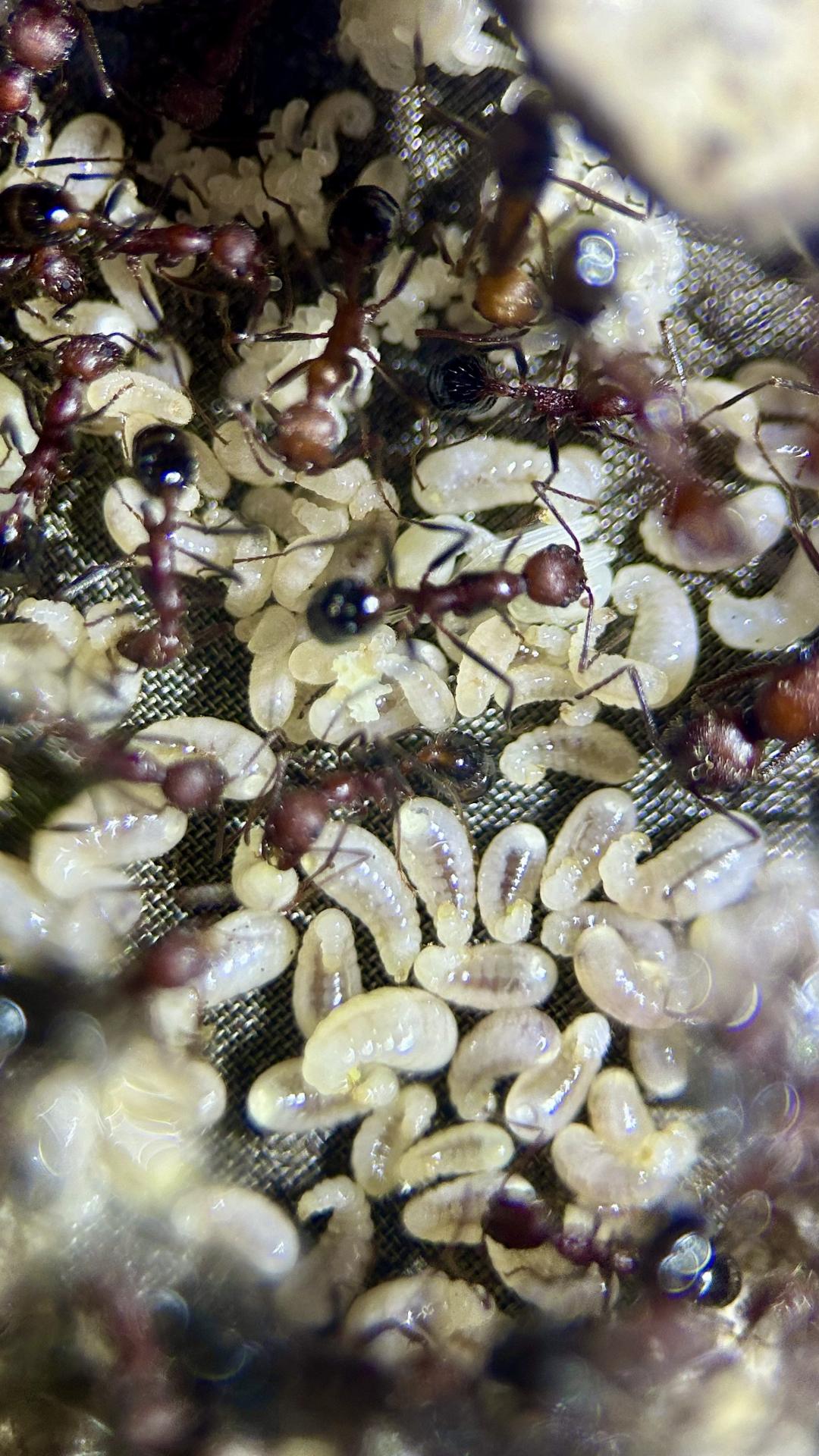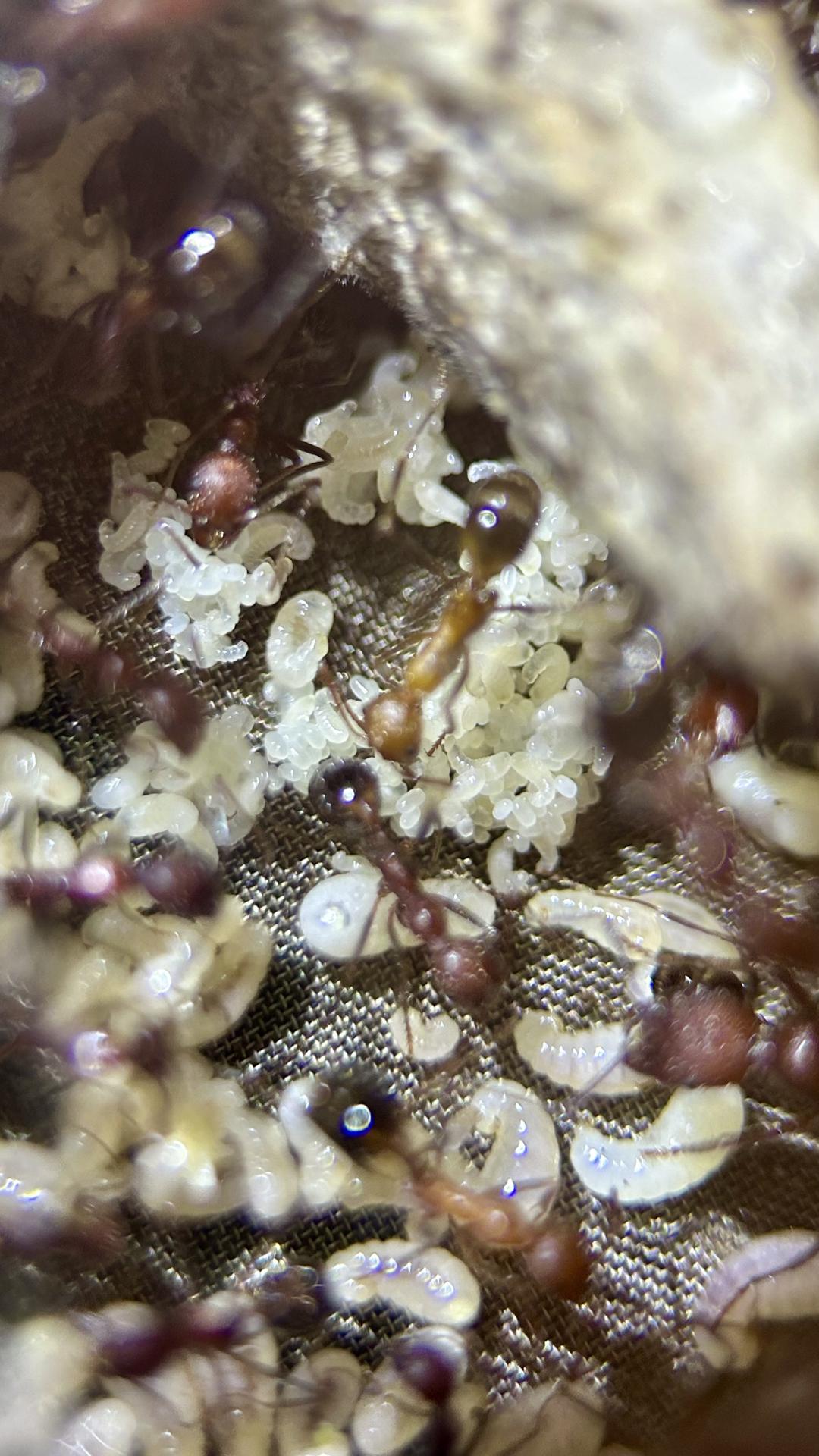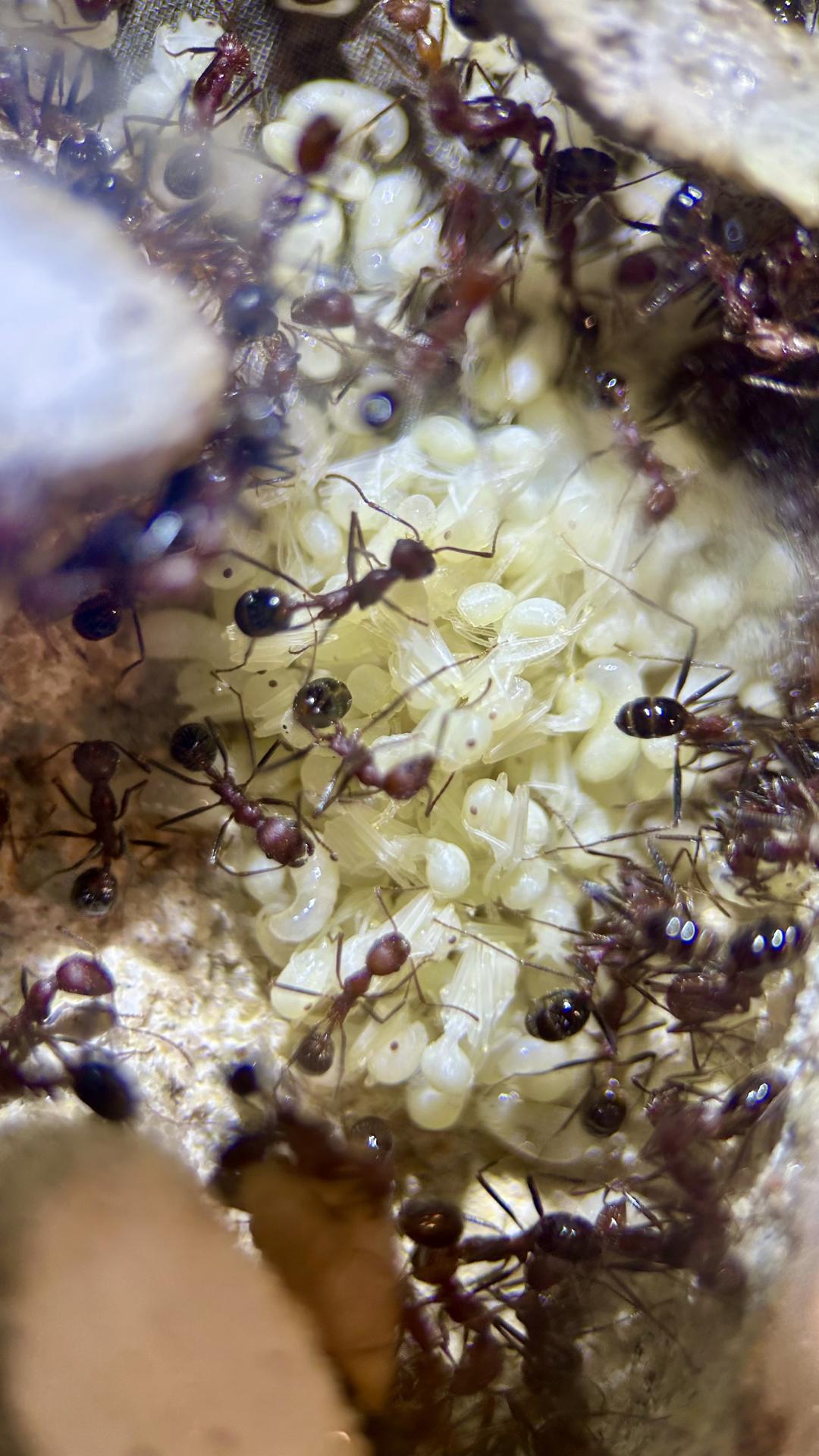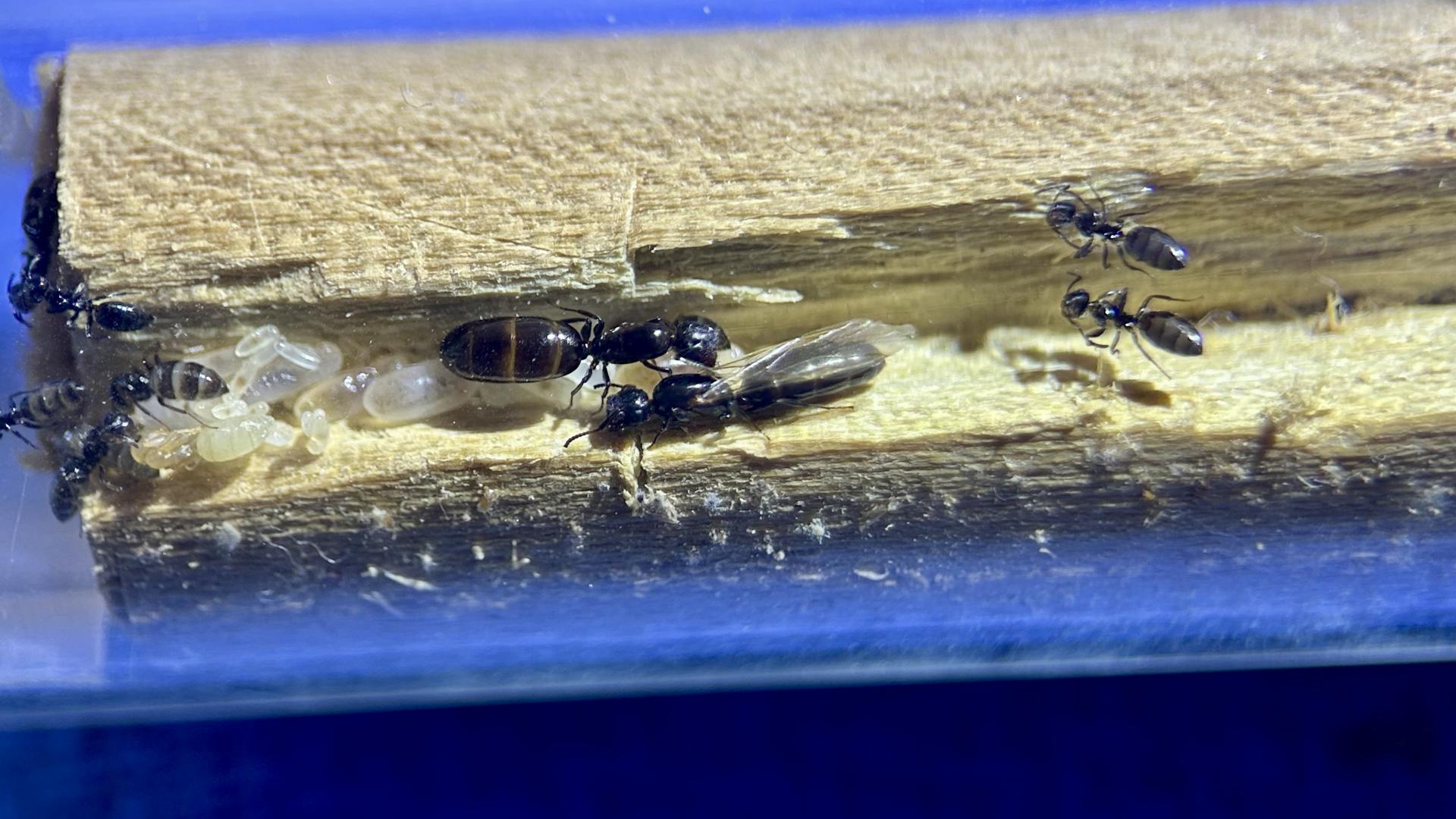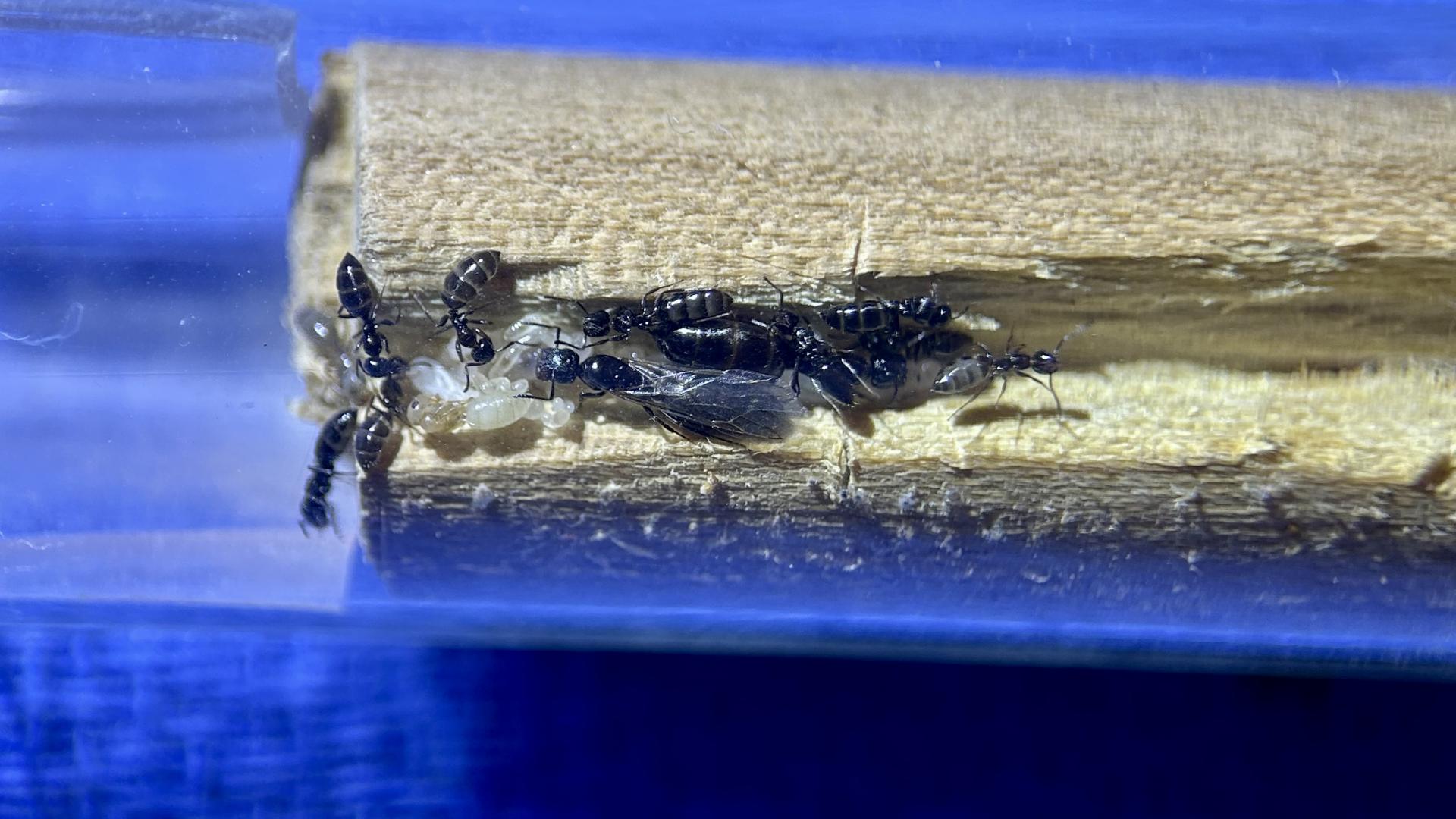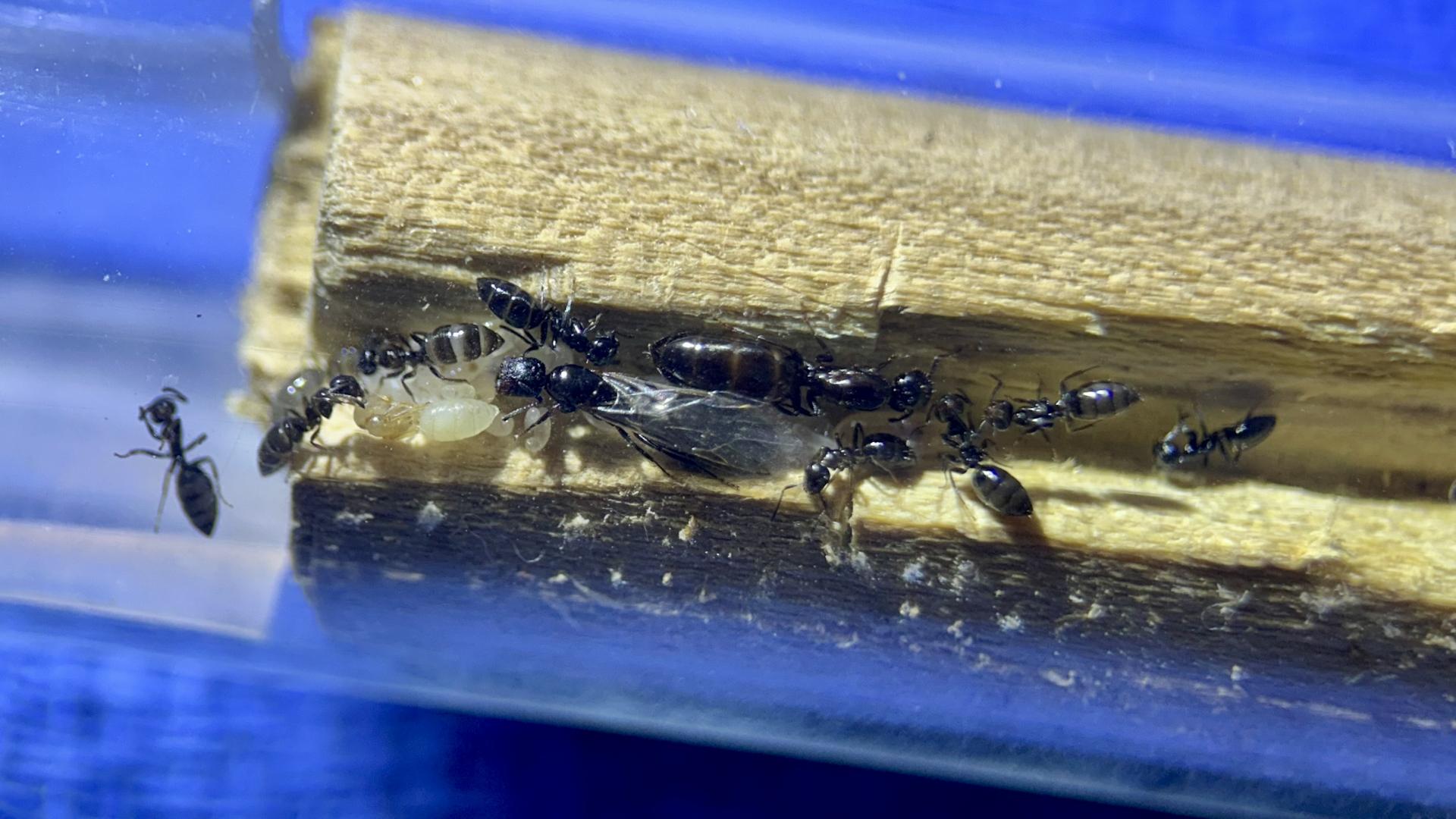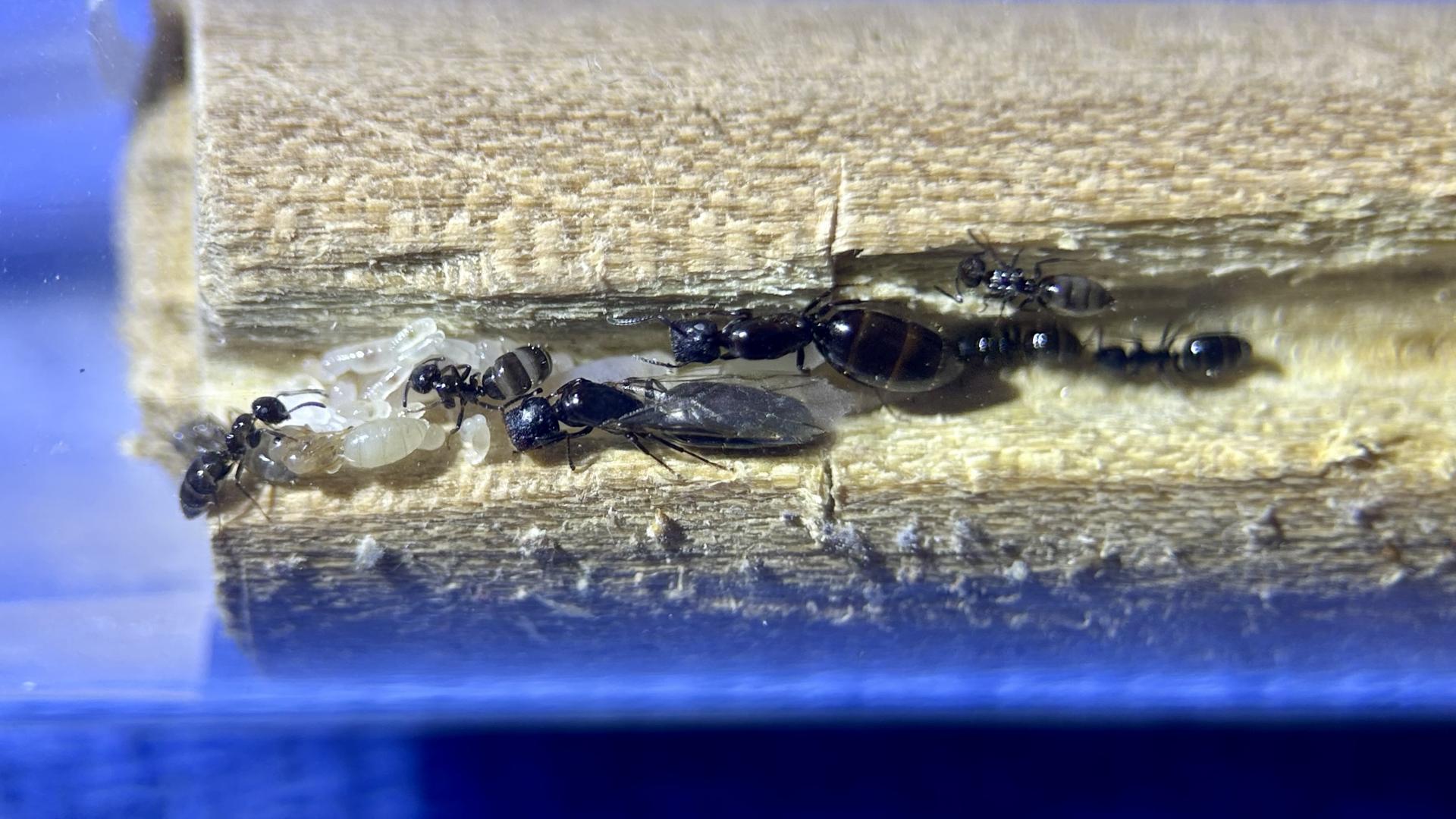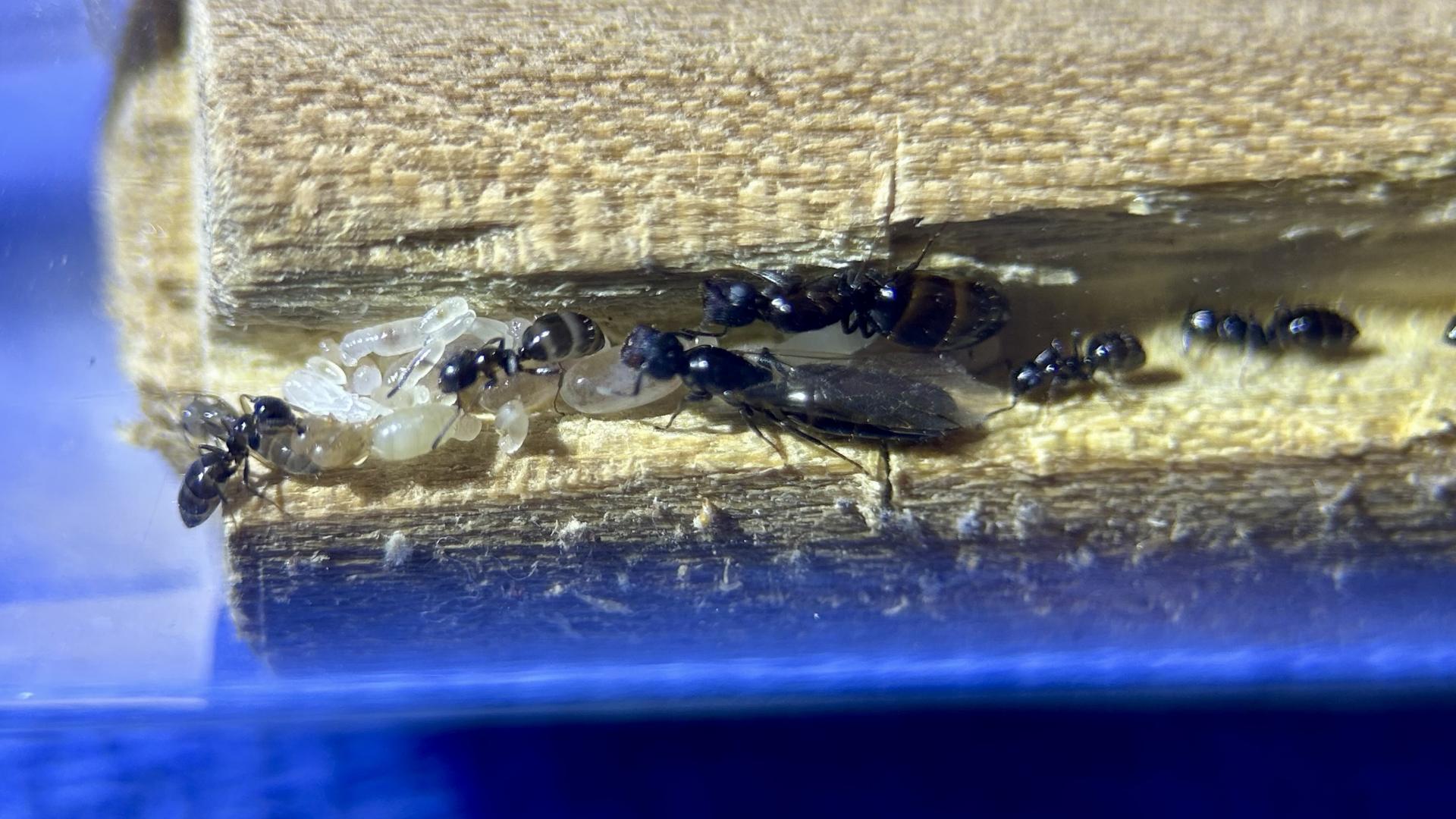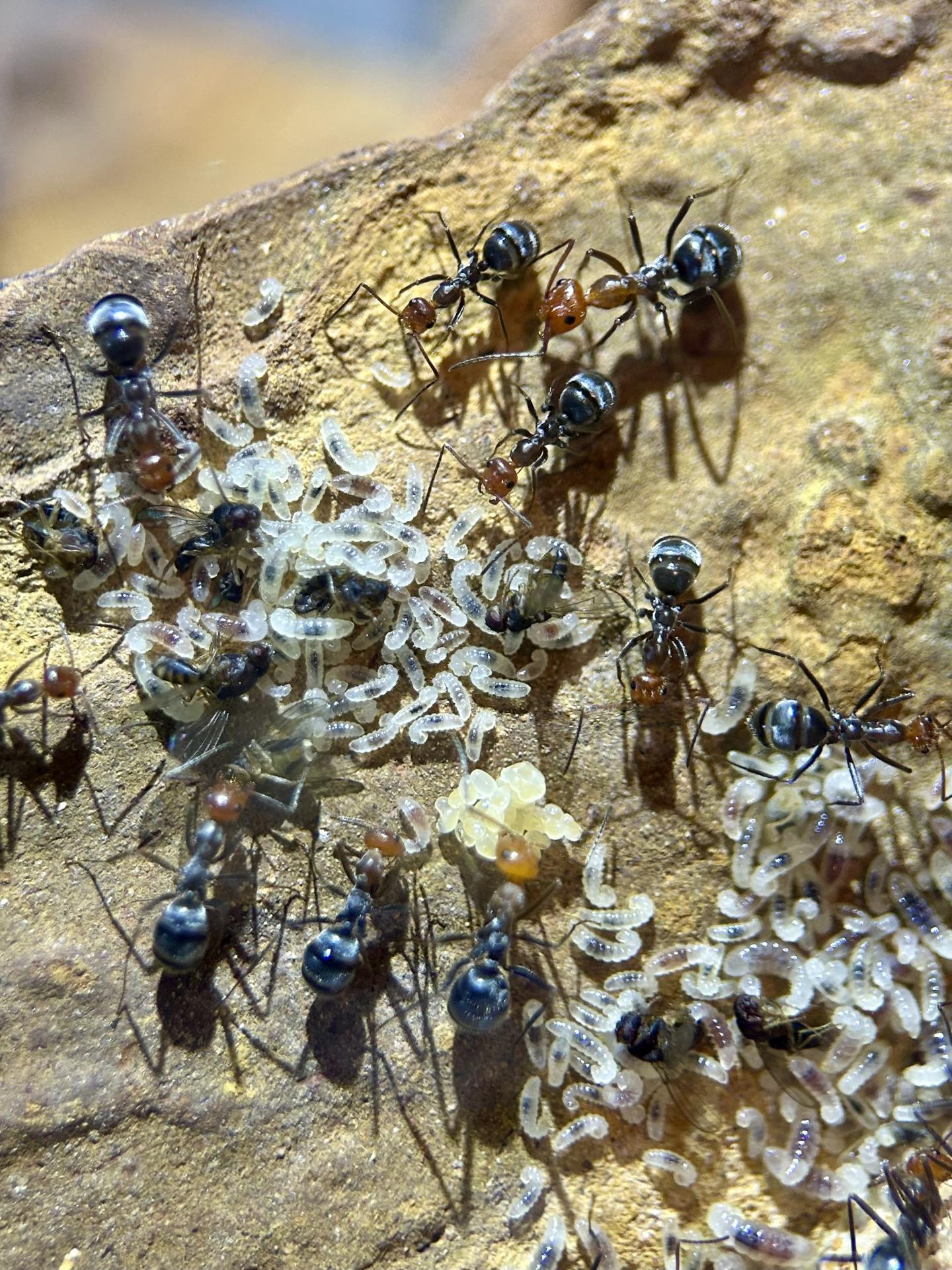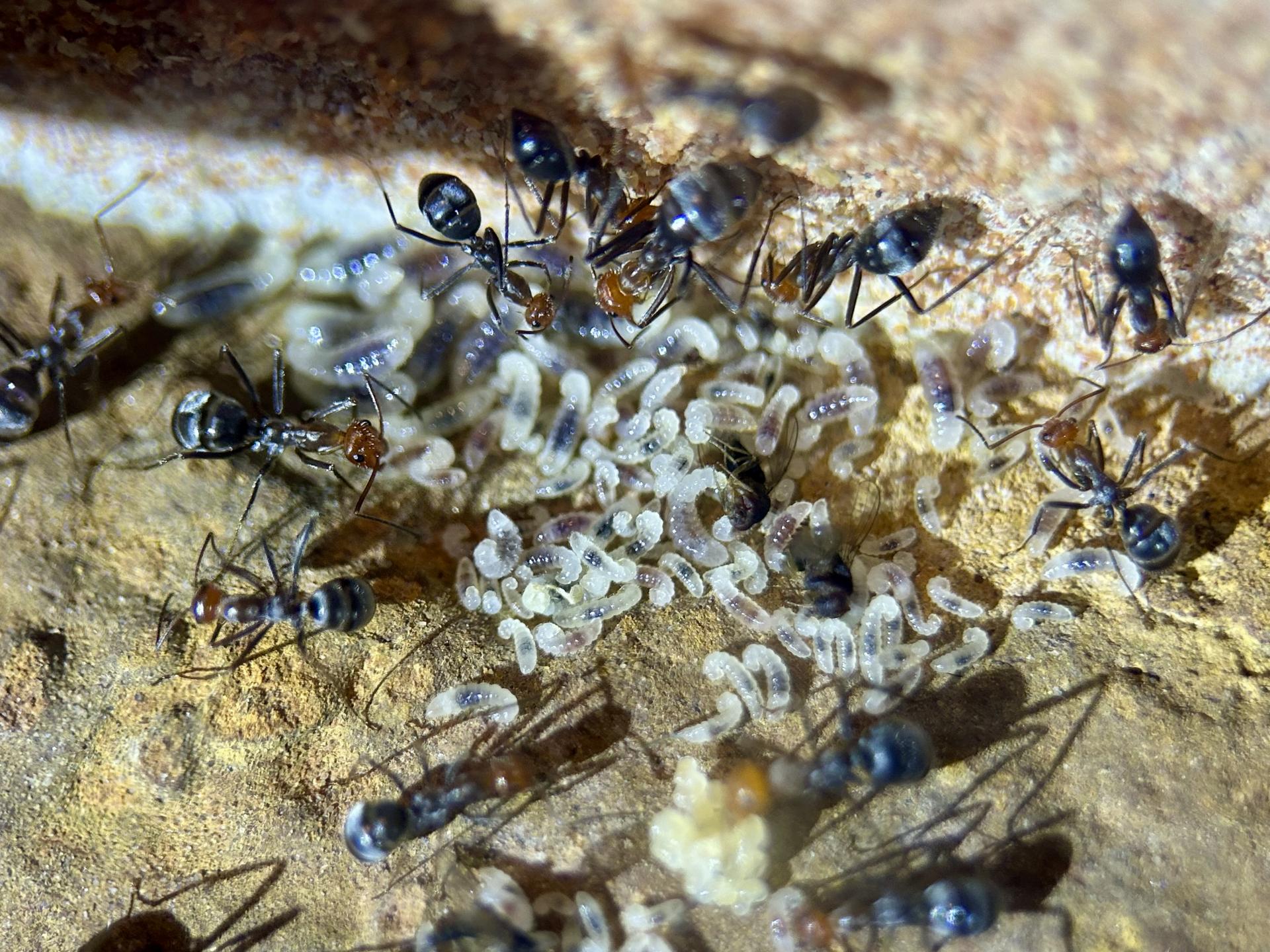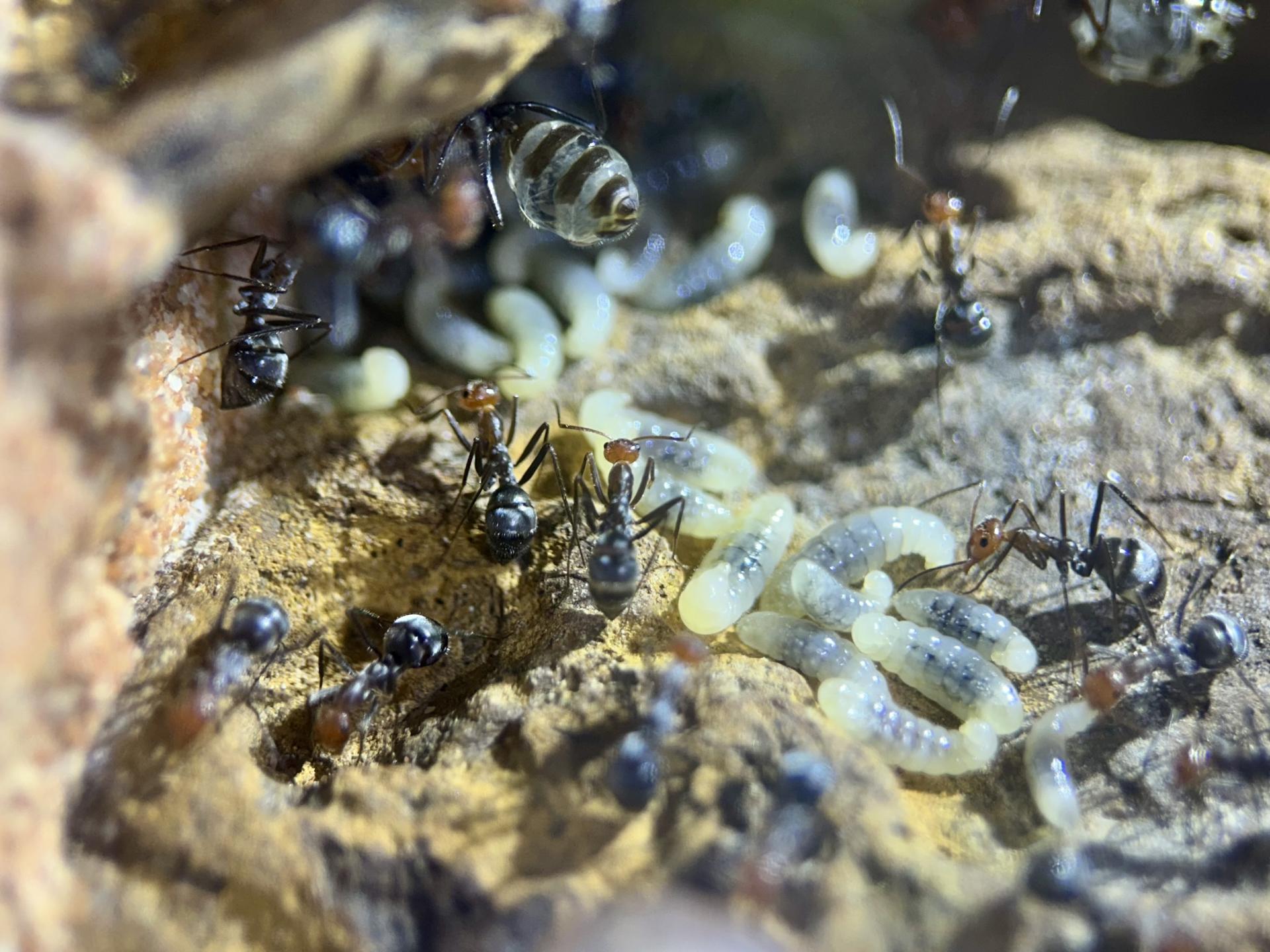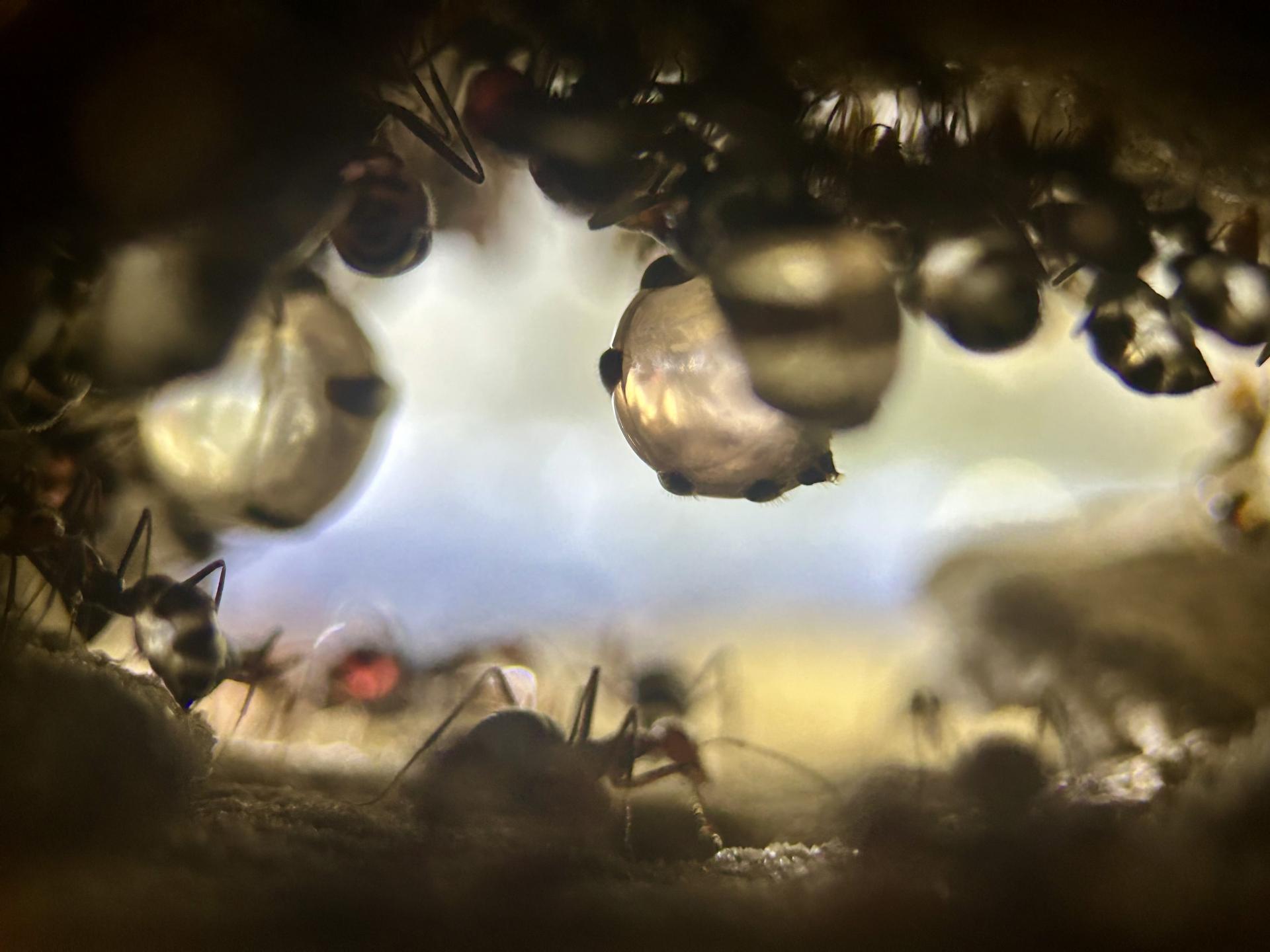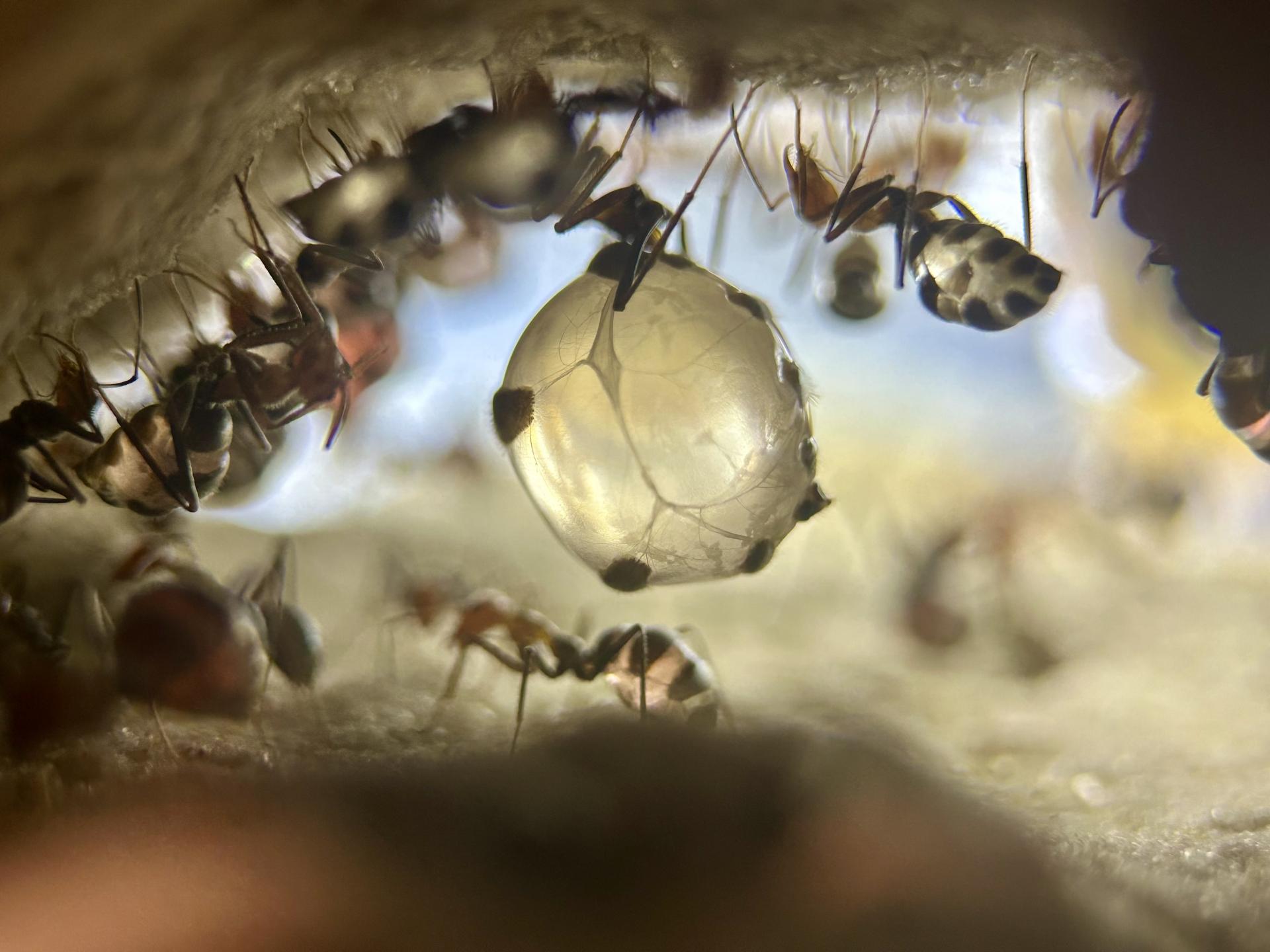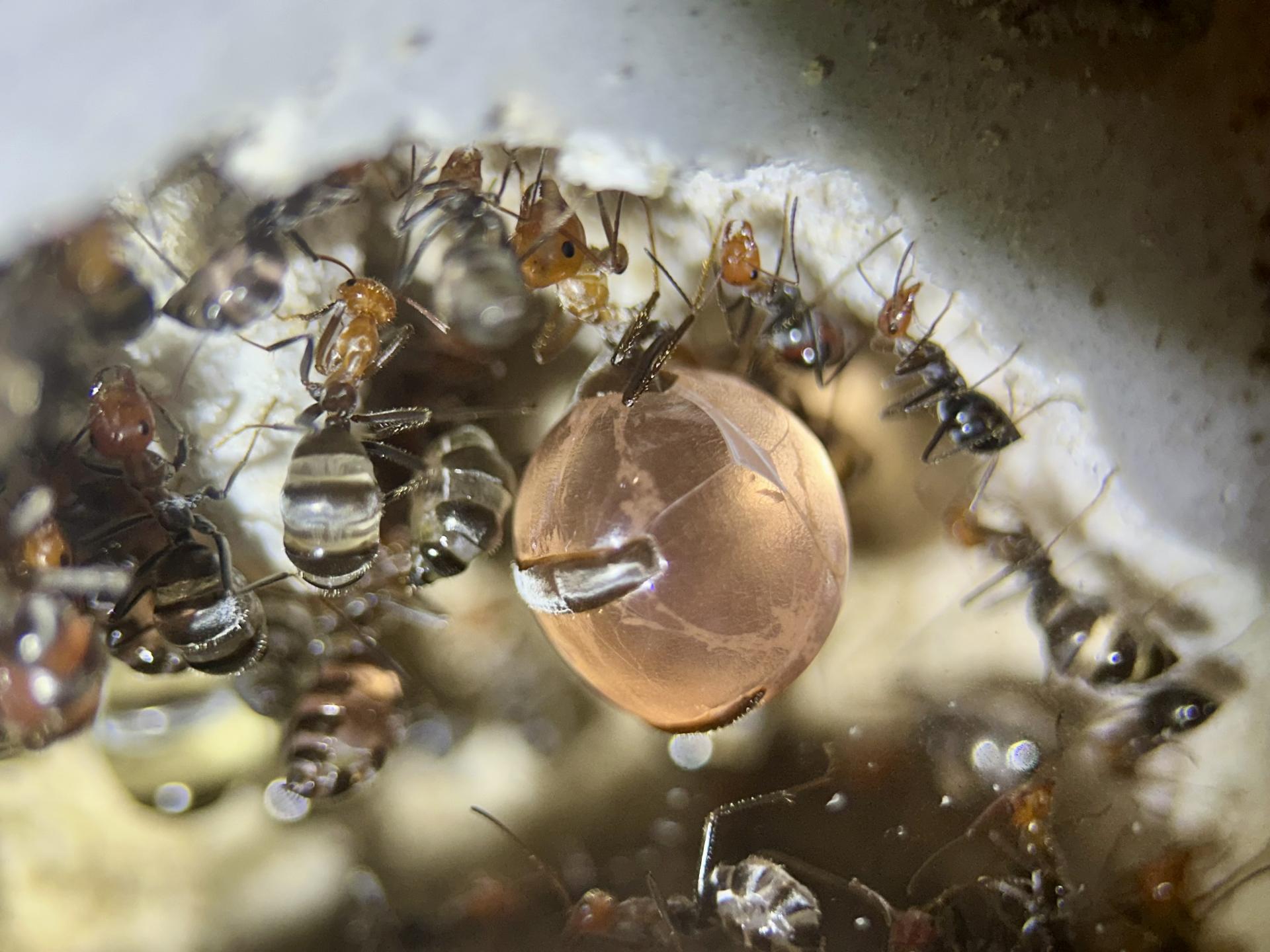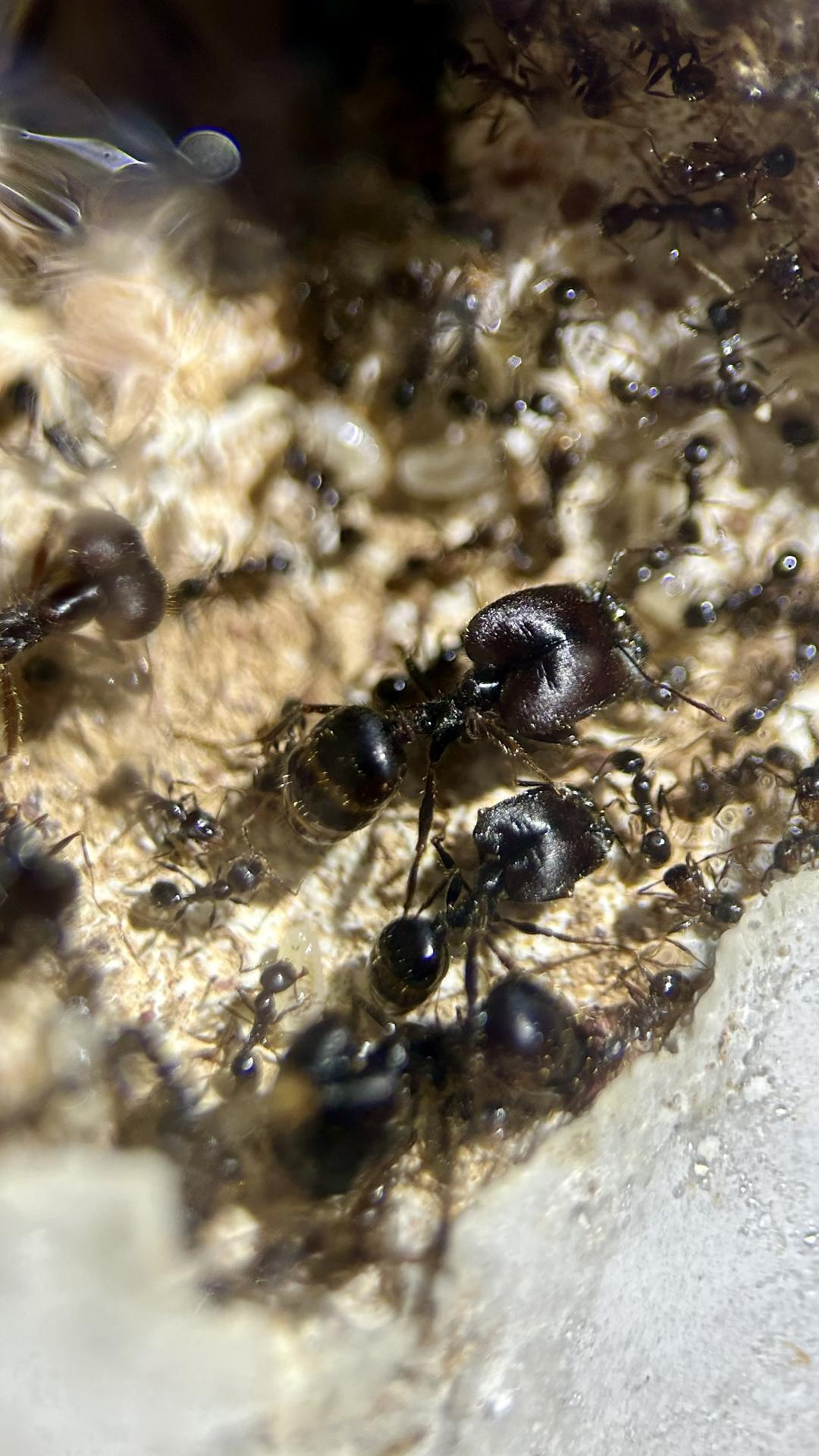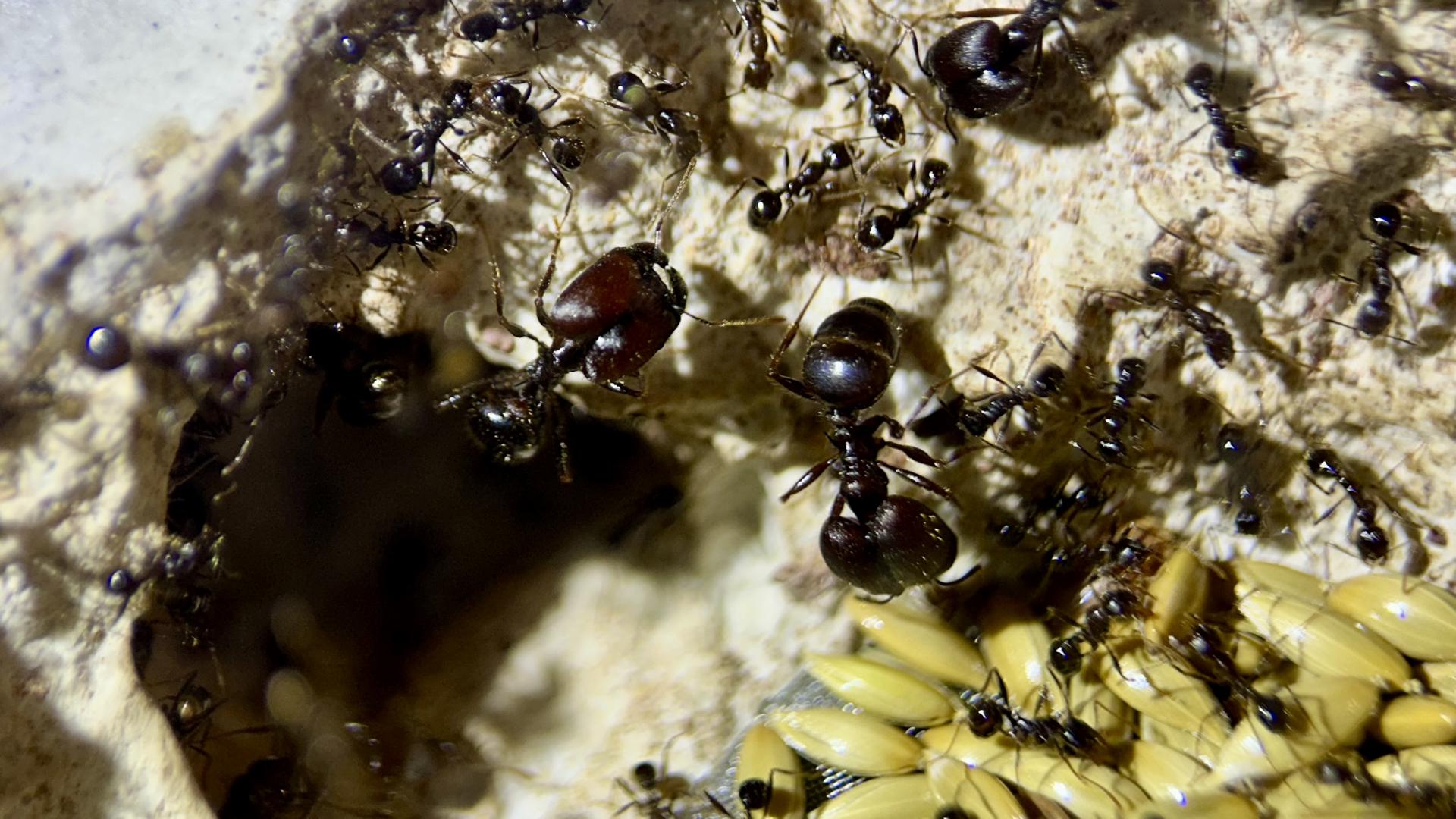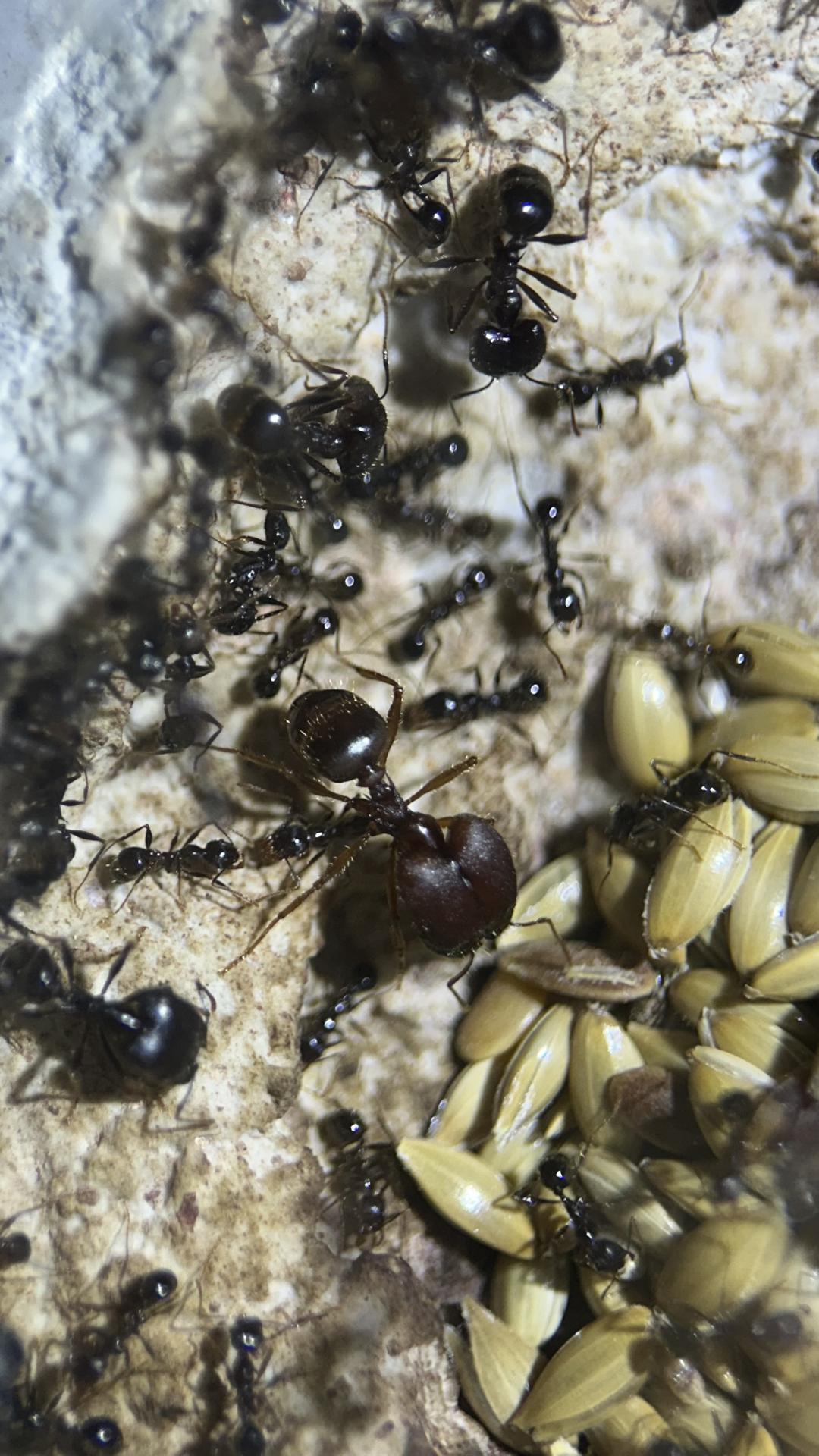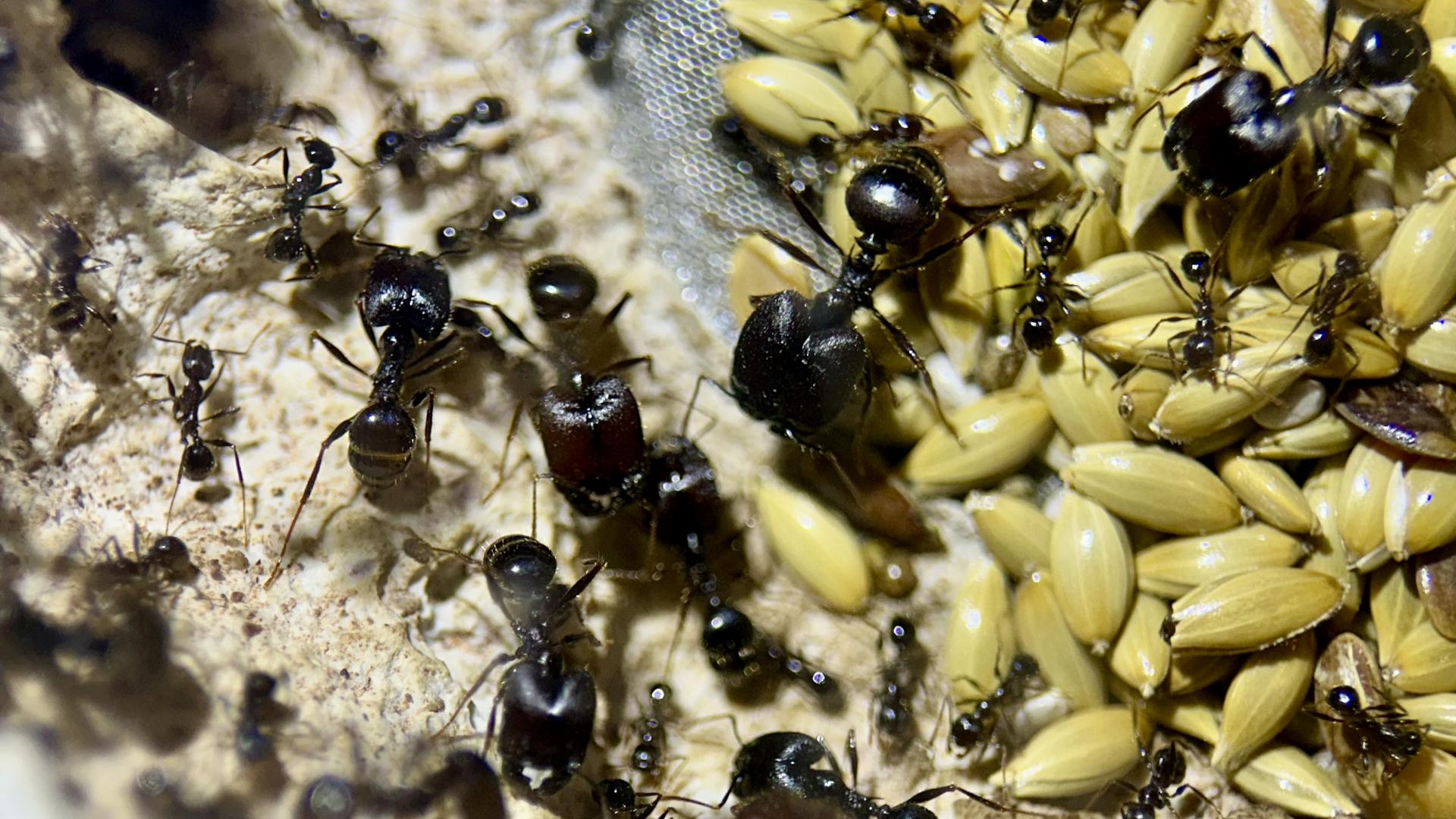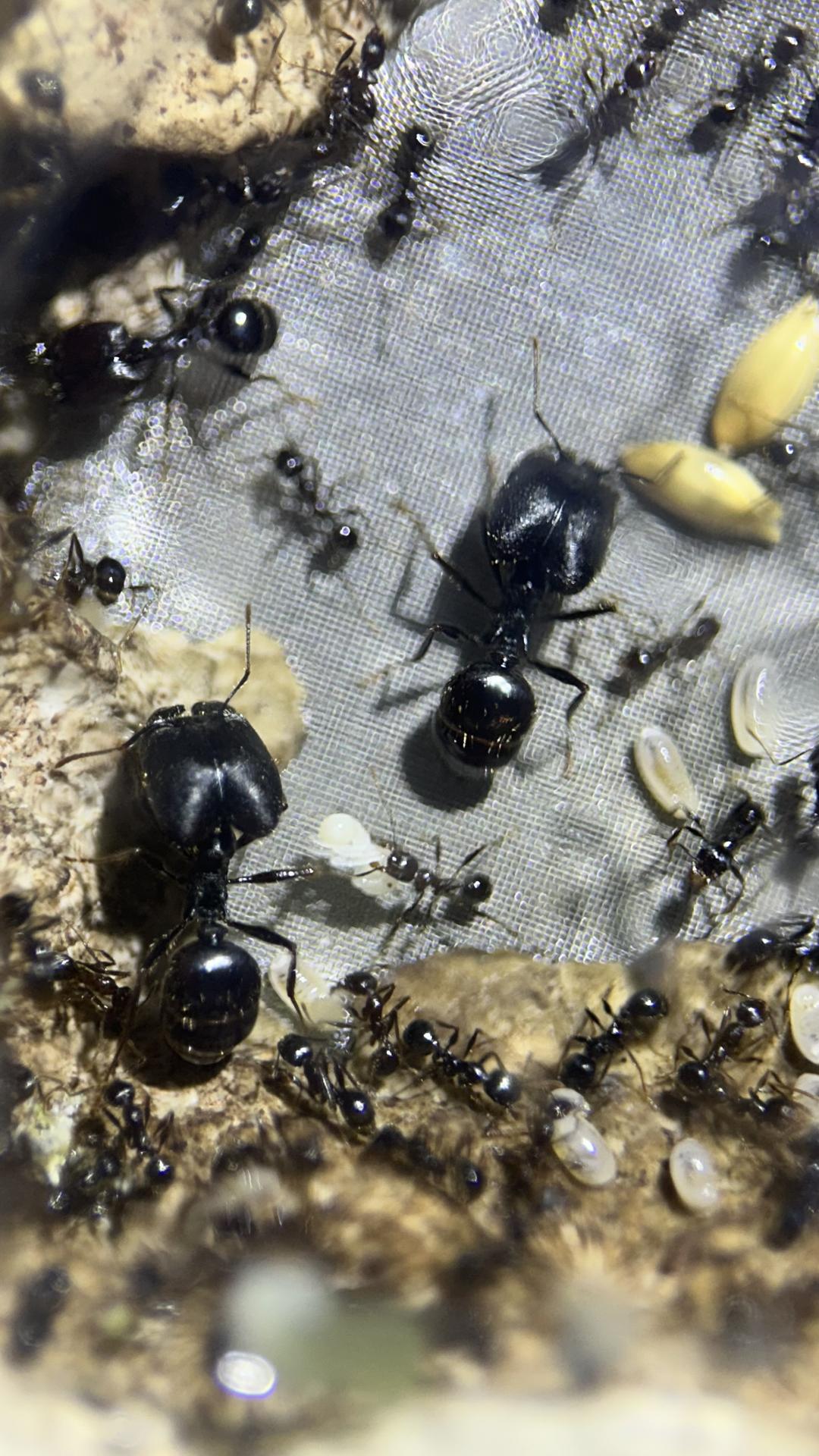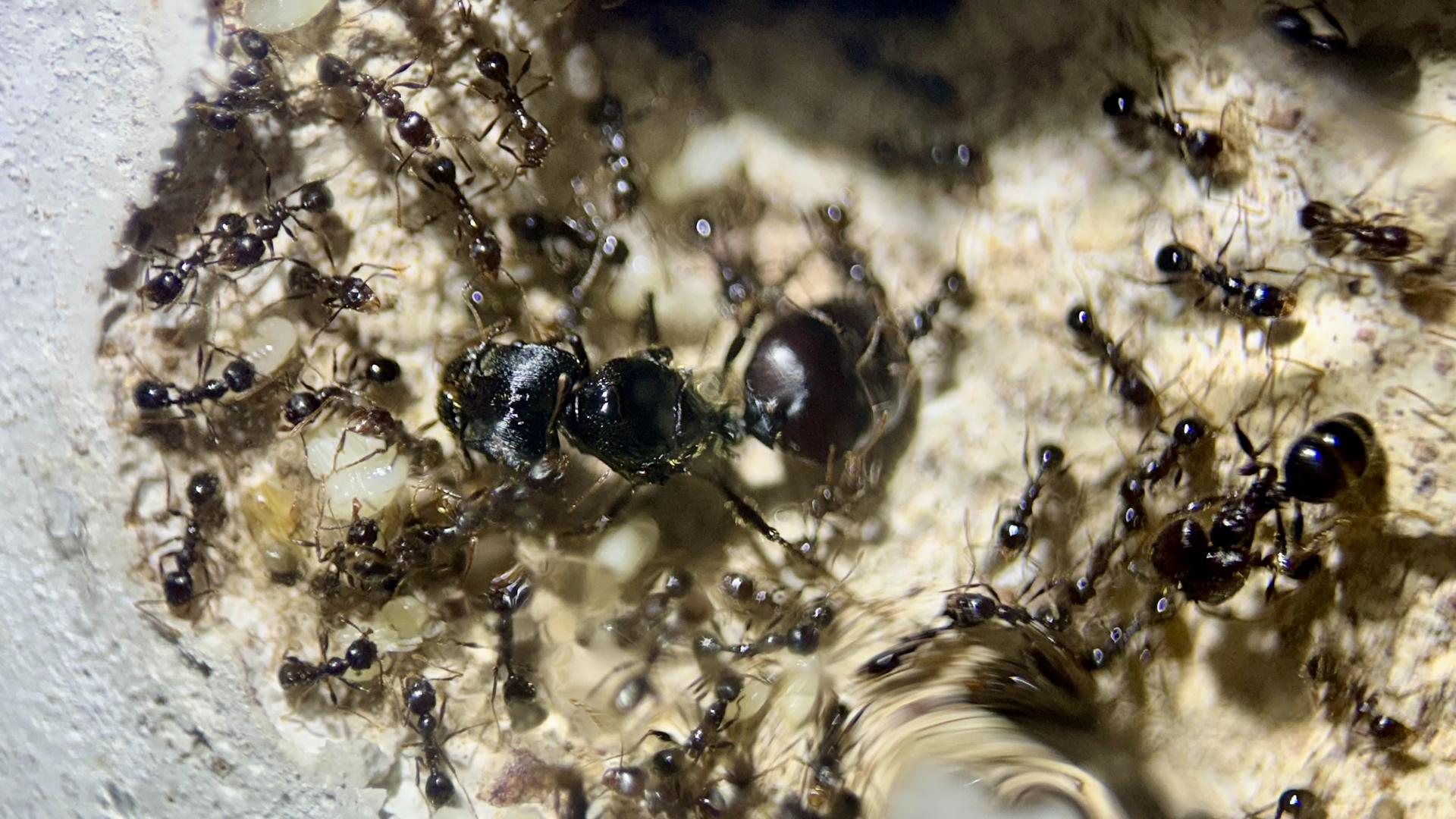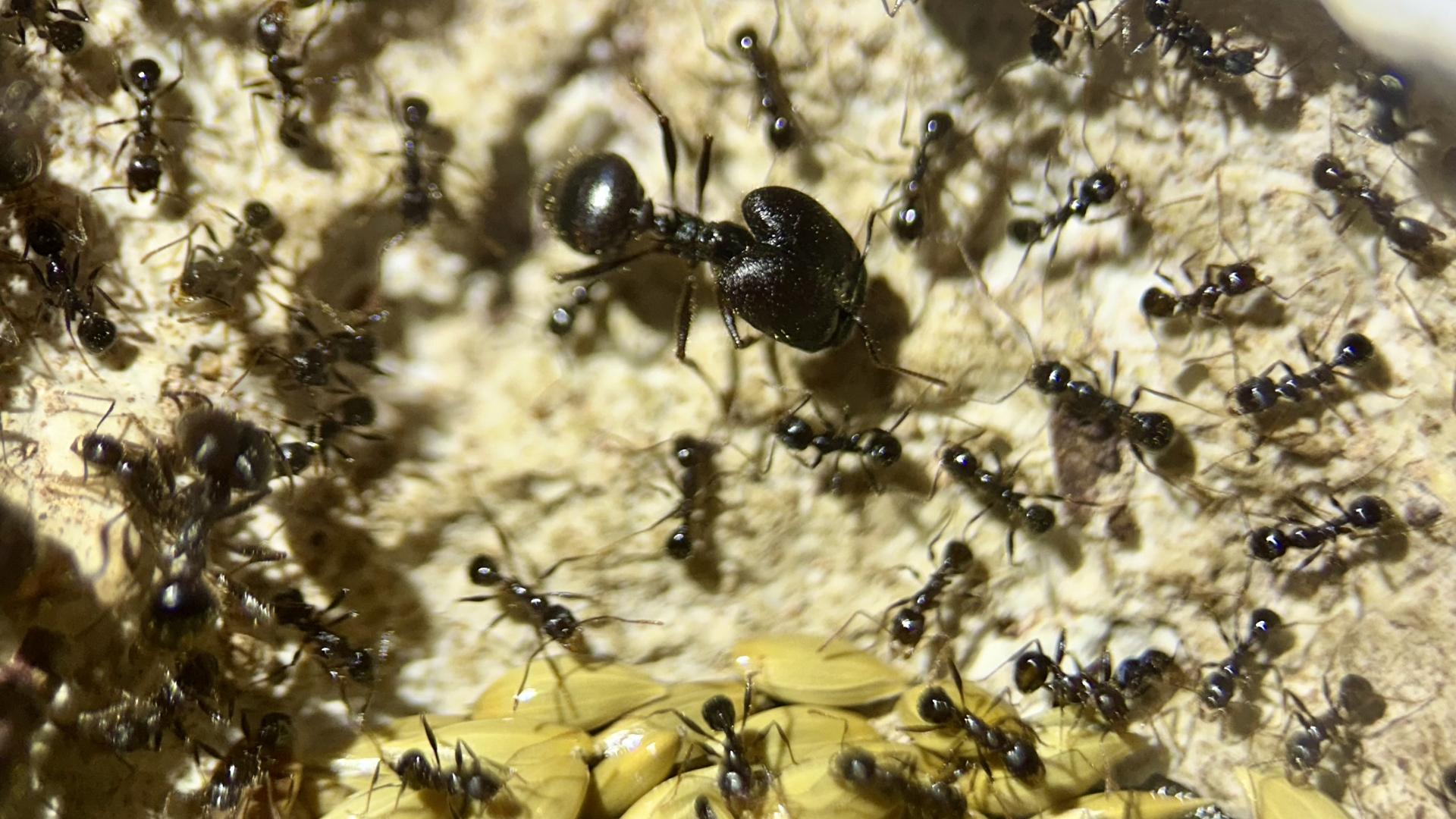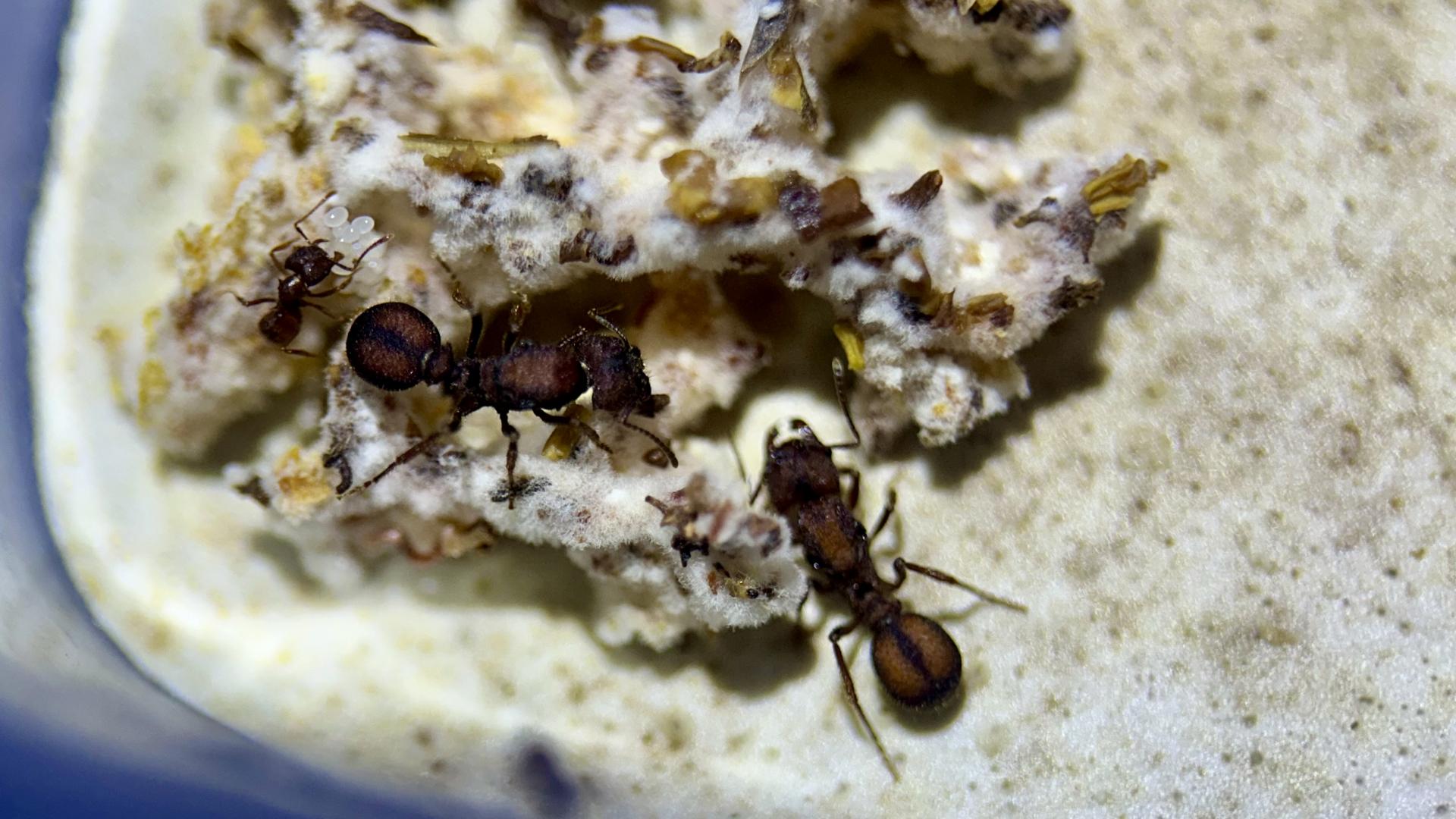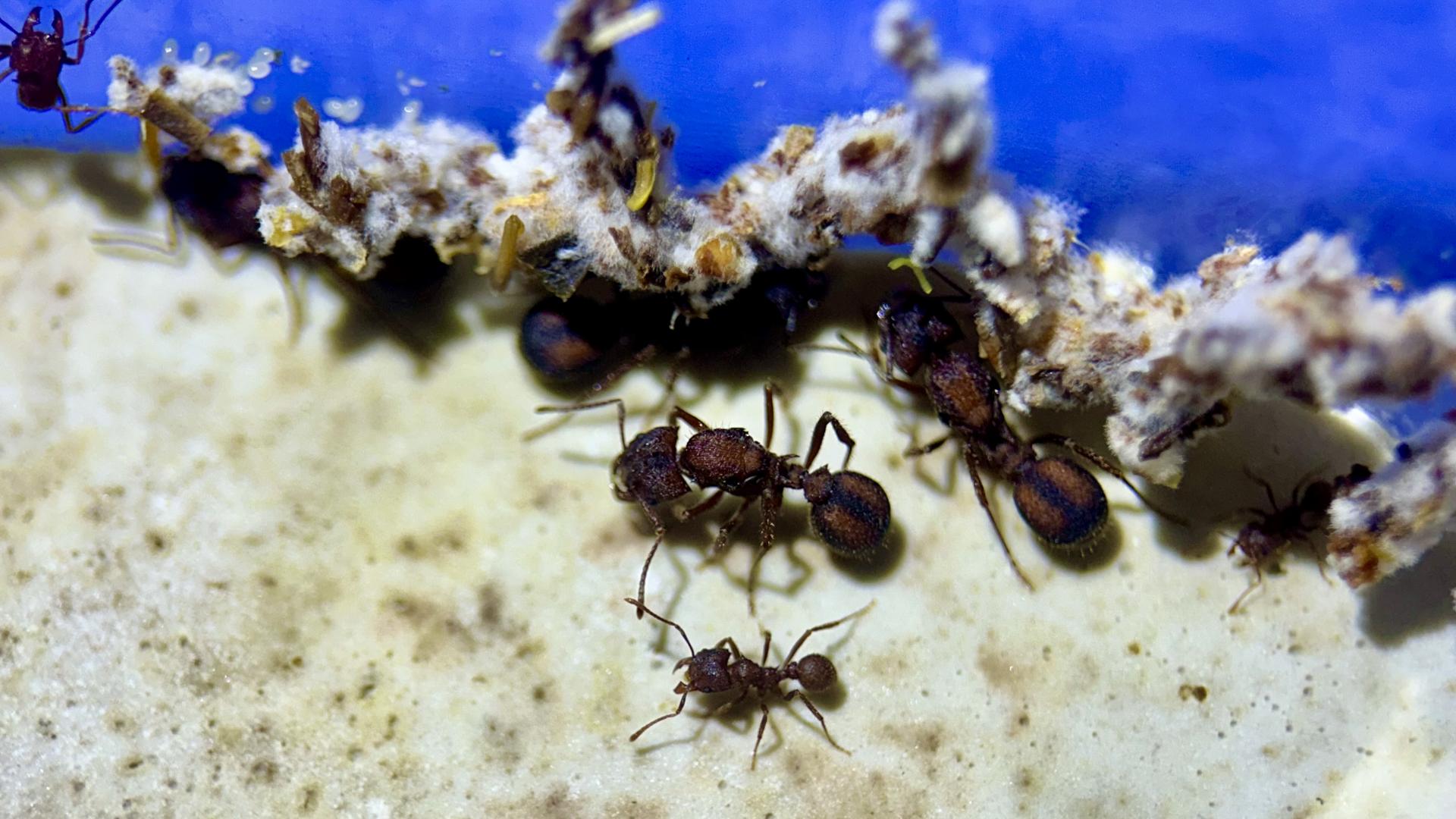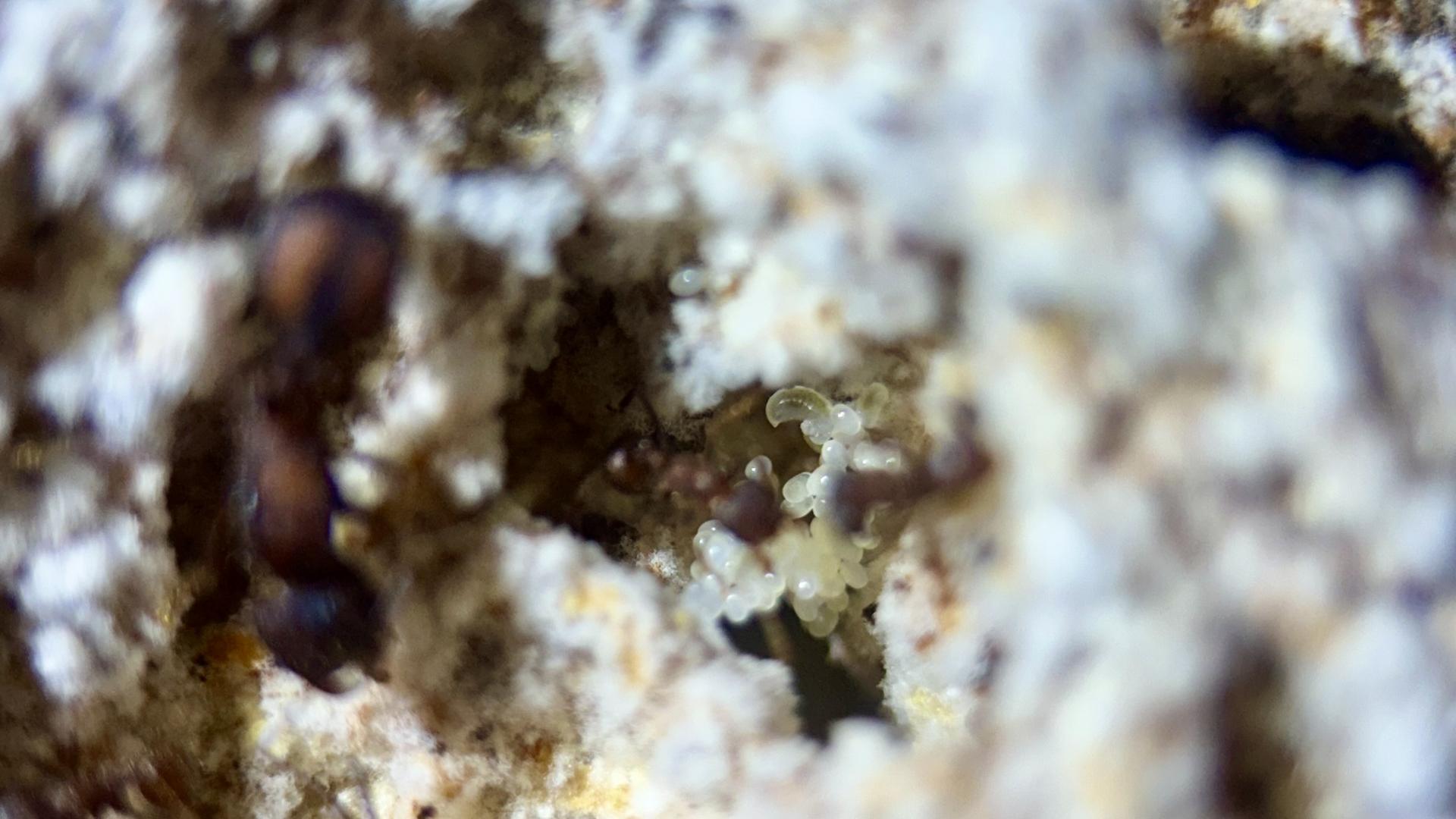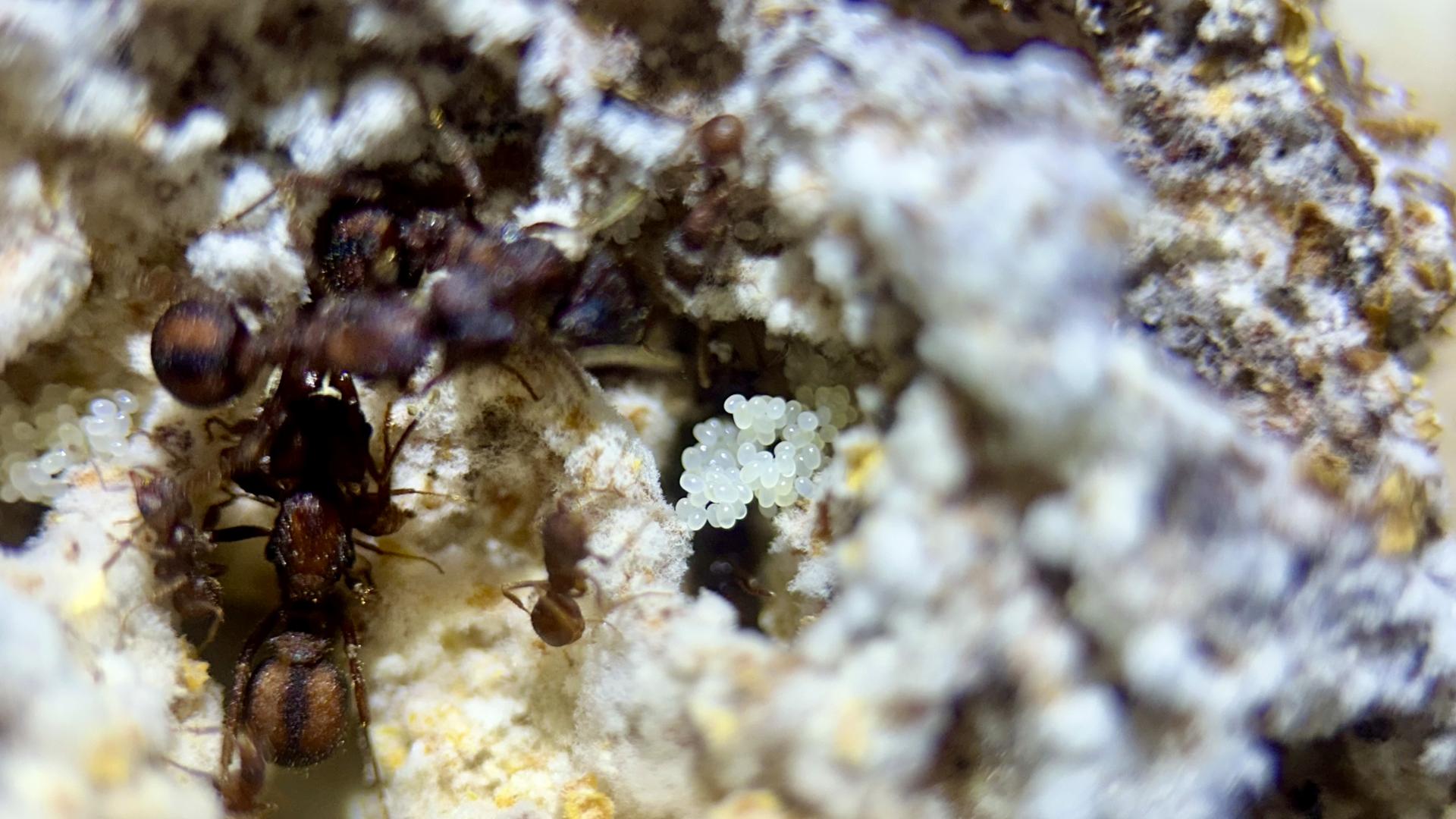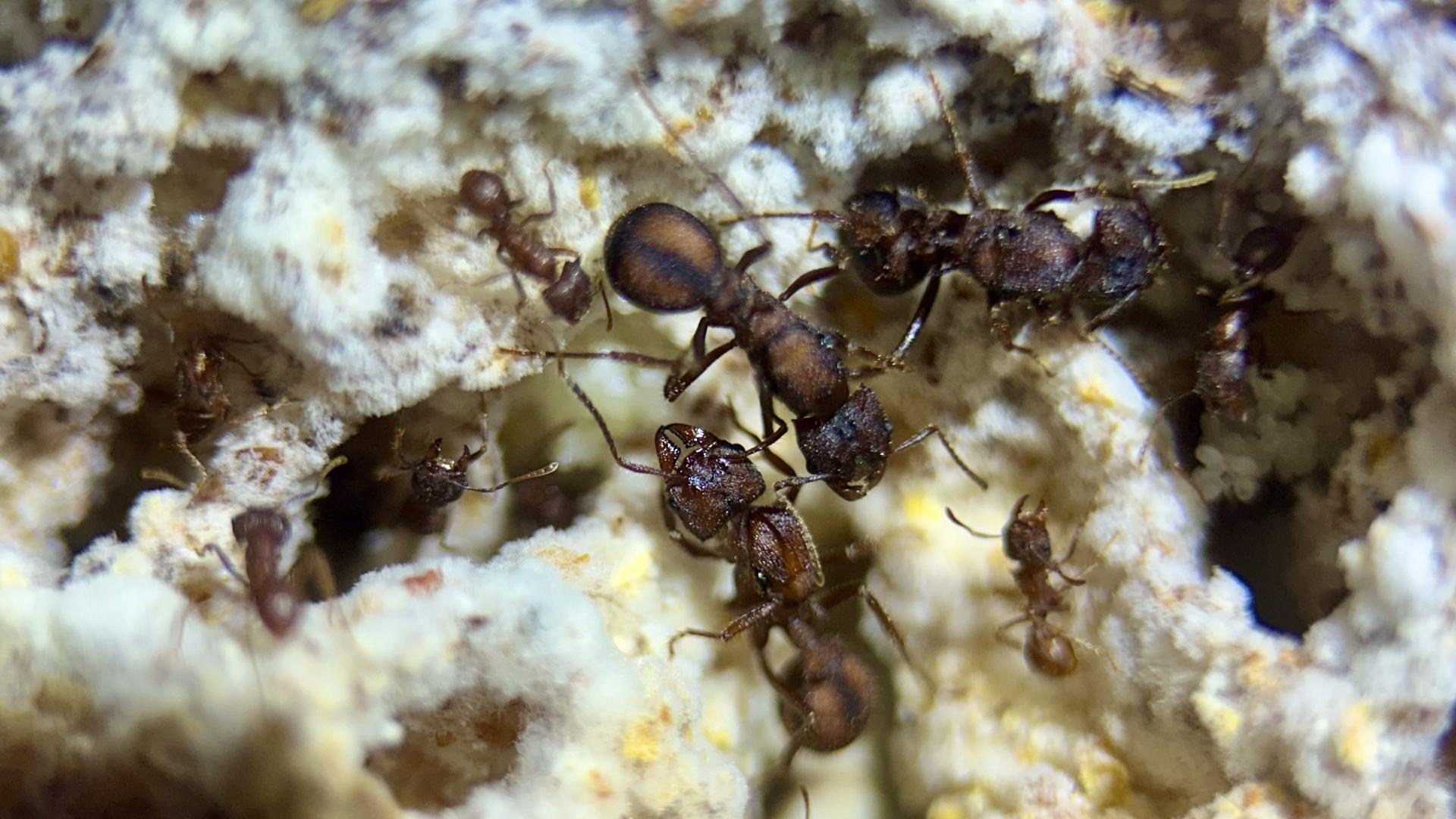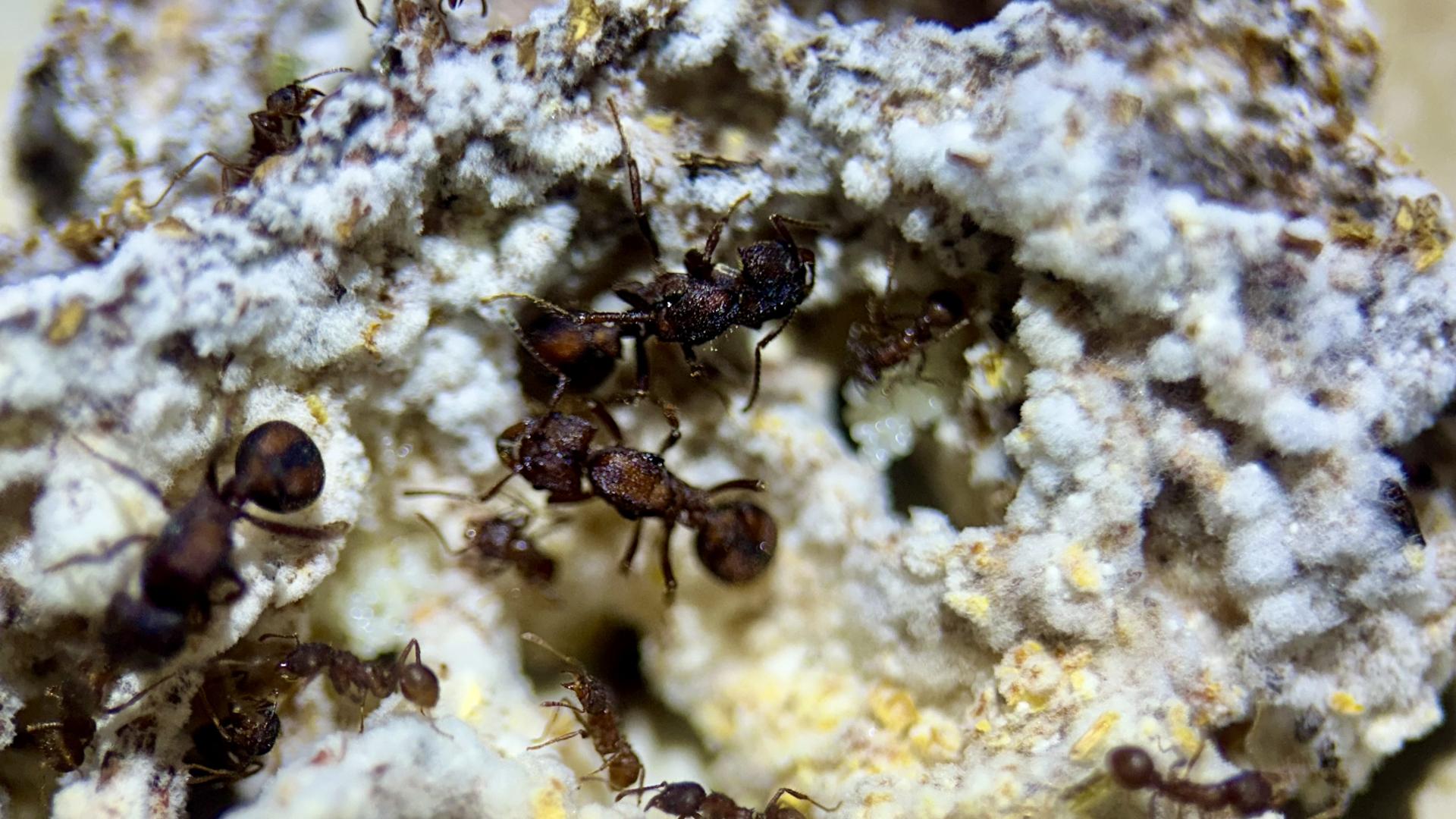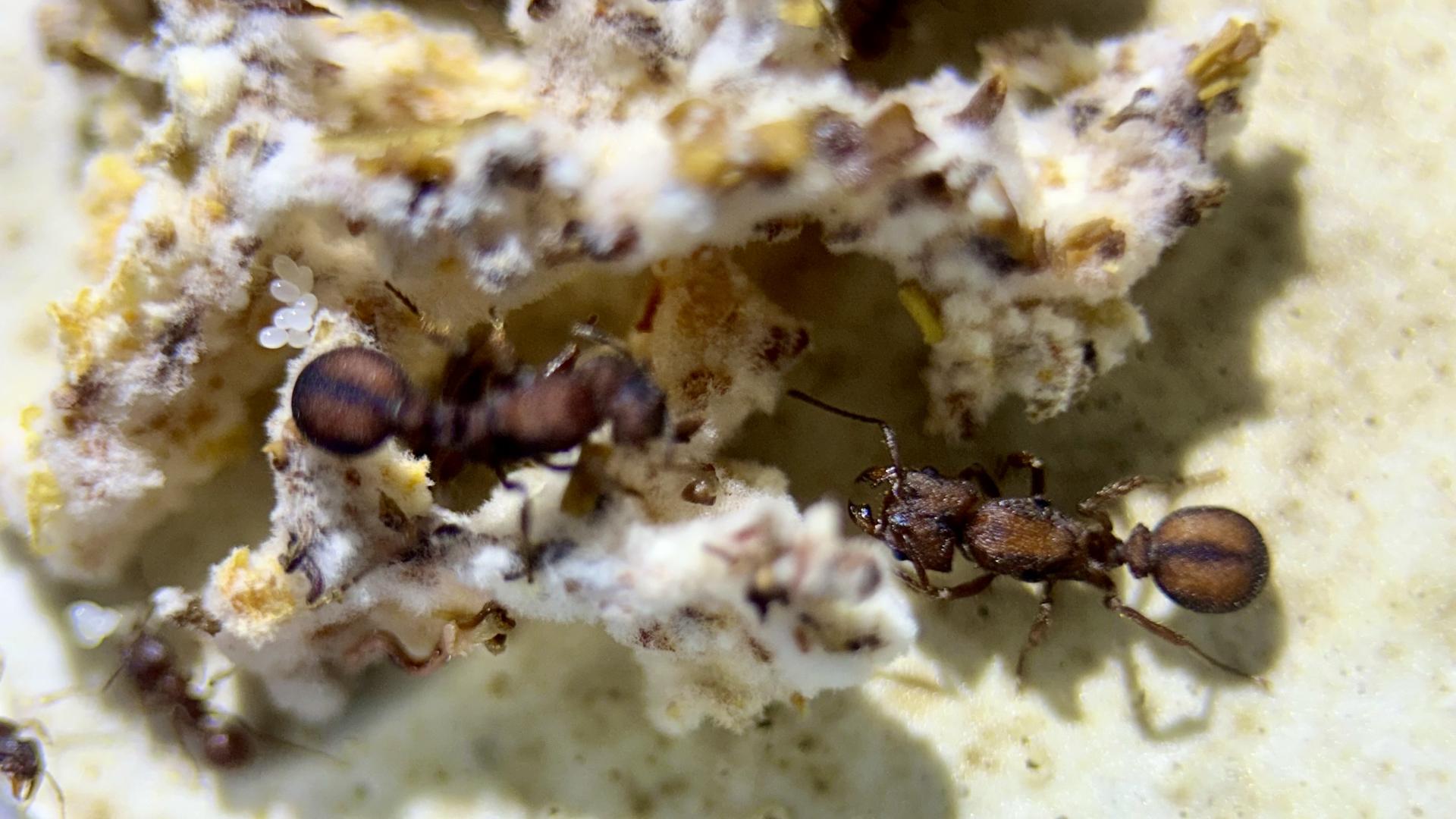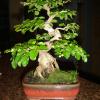- Formiculture.com
- Forums
- Gallery
- Members
- Member Map
- Chat

Kiedeerk's Epic multi-species Ant Keeping Journal
Started By
kiedeerk
, Jul 8 2023 7:15 PM
kiedeerk journal multi-species ant keeping epic
353 replies to this topic
#221
 Offline
-
Posted November 12 2024 - 5:47 PM
Offline
-
Posted November 12 2024 - 5:47 PM
Type *permit* in the search bar and read away!
- Ants_Dakota likes this
"The ants are a people not strong, yet they prepare their meat in the summer." Prov. 30:25
Keep ordinary ants in extraordinary ways.
Keep ordinary ants in extraordinary ways.
#222
 Offline
-
Posted November 24 2024 - 1:45 PM
Offline
-
Posted November 24 2024 - 1:45 PM
Colobopsis Papago up to 5 workers with 4-5 pupae and healthy brood pile. They are doing well in their wood insert. They are being fed baby fruit flies and termites along with sugar water. They are really dry loving and does not require much moisture/water.
- Karma, rptraut, AntsGodzilla and 1 other like this
#223
 Offline
-
Posted November 24 2024 - 8:37 PM
Offline
-
Posted November 24 2024 - 8:37 PM
M placadops 01 colony doing great. They have high hundreds of workers. Although they are picky with proteins they seemed to be growing steadily. It’s winter here on the east coast, so it’s hard if not impossible to find insects outside to feed my colonies. I have a fruit fly and mealworm farm but sometimes they do not take them at all. The summer time it’s quite easy to find insects and give my colonies variety of foods.
Edited by kiedeerk, November 24 2024 - 8:39 PM.
- Karma, rptraut, Ernteameise and 2 others like this
#224
 Offline
-
Posted November 25 2024 - 3:36 PM
Offline
-
Posted November 25 2024 - 3:36 PM
Camponotus socius showing no signs of slowing down or diapause. Queen has being busy laying eggs.
They are also somewhat picky with proteins but will take sugar water readily. The media and major workers have the nice reddish thorax and head color pattern of the queen compared to the minor workers. They also have a nice yellow patterns on their abdomen.
They are also somewhat picky with proteins but will take sugar water readily. The media and major workers have the nice reddish thorax and head color pattern of the queen compared to the minor workers. They also have a nice yellow patterns on their abdomen.
- Karma, rptraut, Ernteameise and 2 others like this
#225
 Offline
-
Posted November 25 2024 - 5:22 PM
Offline
-
Posted November 25 2024 - 5:22 PM
Gotta love the colors of those ants! The majors seem the most vivid
- 1tsm3jack likes this
Currently keeping:
1x Formica subsericea, 35-40 workers + maybe eggs *New* 2x Camponotus nova, one has only larva
1x Crematogaster cerasi, All workers is ded ![]() *extreme internal screaming* 1x Myrmica ruba sp around 10 workers + pupa
*extreme internal screaming* 1x Myrmica ruba sp around 10 workers + pupa
*New* 1x Temnothorax curvispinosus, 101 or something worker + 3 or 4 royal mom ants + pile of white ant worms
*As you watch your ants march, remember that every thing begins with a small step and continued by diligence and shared dreams* -A.T (which is Me)
Sadly due to unforeseen consequences, I will soon be giving away my colonies (I will miss them though ![]() )
)
#226
 Offline
-
Posted November 26 2024 - 7:14 PM
Offline
-
Posted November 26 2024 - 7:14 PM
Pogonomyrmex barbatus. This colony’s numbers have declined quite a bit. The down side of having many colonies is some will be neglected. They basically were not heated for a good part of the year. This shows how important heat is to these desert species of ant. I recently put them back on heat. The queen immediately started laying eggs.
- Karma, rptraut, Ernteameise and 2 others like this
#227
 Offline
-
Posted December 14 2024 - 5:13 AM
Offline
-
Posted December 14 2024 - 5:13 AM
C. papago growing steadily. They now have 7 workers with a decent brood pile and a few more pupae to soon eclose. They are fine in their current set up but in the long term will have to think about a new nest for the coming year. They are however not very fast growing at least for now even having two queens. I do not believe Colobopsis create very large colonies in the wild. I will most likely try to make them a wood nest with very narrow channels. Hoping to see their majors and how they use their heads to block the entrances
- Karma, rptraut, Ernteameise and 3 others like this
#228
 Offline
-
Posted December 14 2024 - 7:04 PM
Offline
-
Posted December 14 2024 - 7:04 PM
Pogonomyrmex badius. I put this colony into diapause one week or two ago. They still have some brood left but I took them off heat. They usually diapause without brood. So in the coming weeks the brood will slowly eclose but there won’t be any new eggs. I plan to diapause them for like 2 months and put them back on heat in February. Although they will be in diapause mode I will keep them in the 60-70s temperature which is higher than my native ants because these are from Florida.
- Karma, rptraut, 100lols and 2 others like this
#229
 Offline
-
Posted December 15 2024 - 3:55 PM
Offline
-
Posted December 15 2024 - 3:55 PM
Acromyrmex versicolor. I was really starting to doubt that these colonies will do well since after their initial batch of workers. The queens pretty much did not lay any new eggs. They were still tending to the fungus garden but nothing was happening. To those who followed from the beginning, these queens were boosted with native trachymyrmex fungus. The queens were able to produce first batch of nanitics from the donated fungus. But I had a theory that because this native fungus undergo diapause during the long winters here maybe the fungus stopped producing nutrients needed to sustain the acromyrmex and that’s why they weren’t laying eggs. I have been keeping them in constant 65-75 degree temperature room so I don’t think it’s temperature. The other possible cause is the lack of fresh flowers and leaves for them in the winter time. I have been giving them dried rose and flowers that I got in the summer time. Yesterday to my surprise I finally noticed some new eggs. I’m not sure what is happening but all in all this is just an experiment but I am hoping they can last until spring when flowers will becoming available again.
- Karma, antsriondel, rptraut and 4 others like this
#230
 Offline
-
Posted December 16 2024 - 8:36 PM
Offline
-
Posted December 16 2024 - 8:36 PM
Camponotus socius are beautiful ants. They still have a massive brood pile and the queen has been laying eggs still. I was planning to diapause them but seeing no signs of slow down I may not unless these ants show me. They must been nearing close to 200 workers which is exceptional for a first year colony.
- Karma, rptraut, 100lols and 1 other like this
#231
 Offline
-
Posted December 22 2024 - 1:51 PM
Offline
-
Posted December 22 2024 - 1:51 PM
Native colonies are deep in diapause. This year I left all my native colonies in my garage which can get to below freezing. This week some nights are in the 20s F which is well below freezing. These are the temperatures the native species have to deal with in the wild. Especially the wood dwelling Camponotus species they really don’t have any protection from the cold. The ground nesting species can dig deeper into the soil but I doubt the temperatures are much higher. So as long as they have access to fresh water hopefully they should be able to survive diapause with few losses. I’m planning to bring them back probably by end of January unless I see signs of large numbers of worker deaths.
Species include: (1) Camponotus caryae, (2) camponotus nearcticus, (3) Camponotus subbarbatus, (4) Camponotus castaneus, (5) Camponotus chromaoides, (6) Camponotus Pennsylvanicus, and (7) trachymyrmex septentrionalis
Something cool to see is the fungal pellets the trachy diapuse with. There are several whitish fungal pellets within the balls of workers. We will see if they manage to keep the fungus alive until spring. In the wild they also do this and rebuild their fungal garden yearly.
Species include: (1) Camponotus caryae, (2) camponotus nearcticus, (3) Camponotus subbarbatus, (4) Camponotus castaneus, (5) Camponotus chromaoides, (6) Camponotus Pennsylvanicus, and (7) trachymyrmex septentrionalis
Something cool to see is the fungal pellets the trachy diapuse with. There are several whitish fungal pellets within the balls of workers. We will see if they manage to keep the fungus alive until spring. In the wild they also do this and rebuild their fungal garden yearly.
- Karma, ANTdrew, rptraut and 3 others like this
#232
 Offline
-
Posted January 4 2025 - 4:14 PM
Offline
-
Posted January 4 2025 - 4:14 PM
Novomessor are the easiest species to care for in my experience. They grow insanely fast with heat. I rarely even give them insects at this point. They are mainly fed with seeds and nuts. I just put the colony back on heat for the last couple weeks and their brood pile is already massive. I am trying to keep their numbers in check or else they would be in the tens of thousands by now.
- Karma, rptraut, Ernteameise and 3 others like this
#233
 Offline
-
Posted January 5 2025 - 4:18 AM
Offline
-
Posted January 5 2025 - 4:18 AM
They seem like an awesome species to keep.
- rptraut likes this
"The ants are a people not strong, yet they prepare their meat in the summer." Prov. 30:25
Keep ordinary ants in extraordinary ways.
Keep ordinary ants in extraordinary ways.
#235
 Offline
-
Posted January 6 2025 - 8:27 AM
Offline
-
Posted January 6 2025 - 8:27 AM
Those full abdomens remind me of my Formica colonies and how they always have workers that literally look like their about to pop
- rptraut likes this
Currently keeping:
1x Formica subsericea, 35-40 workers + maybe eggs *New* 2x Camponotus nova, one has only larva
1x Crematogaster cerasi, All workers is ded ![]() *extreme internal screaming* 1x Myrmica ruba sp around 10 workers + pupa
*extreme internal screaming* 1x Myrmica ruba sp around 10 workers + pupa
*New* 1x Temnothorax curvispinosus, 101 or something worker + 3 or 4 royal mom ants + pile of white ant worms
*As you watch your ants march, remember that every thing begins with a small step and continued by diligence and shared dreams* -A.T (which is Me)
Sadly due to unforeseen consequences, I will soon be giving away my colonies (I will miss them though ![]() )
)
#236
 Offline
-
Posted January 9 2025 - 9:07 AM
Offline
-
Posted January 9 2025 - 9:07 AM
M placadops still growing although they are picky eaters. Will have to wait until spring to give them more variety of protein sources. The other problem is they keep on moving sand out of the nest causing quite a few larva to fail to pupate. But otherwise they gladly take sugar water and queen is pumping out eggs.
- ANTdrew, rptraut and AntsGodzilla like this
#237
 Offline
-
Posted January 13 2025 - 6:36 PM
Offline
-
Posted January 13 2025 - 6:36 PM
Pheidole rhea recovering from my neglect and being off heat. But the queen is an egg laying machine so I’m not worried about them recovering. All these desert species just explode in numbers once they are heated. They still have many majors and supermajors left.
- AntBoi3030, rptraut, bmb1bee and 2 others like this
#238
 Offline
-
Posted January 15 2025 - 7:24 PM
Offline
-
Posted January 15 2025 - 7:24 PM
Acromyrmrx versicolor colonies have restarted laying eggs. The biggest colony have larva again. They have at least 50-100 eggs in two clusters. I find that because the fungus is donated from native trachymyrmex as the temperature in my house decreased they started to die off and stopped blooming or making nutrient for the ants but I have since moved them into a warmer room. I noticed the queens restarted laying eggs. I am still only giving them dried flower petals from summer so I hope they will last until spring.
- AntBoi3030, rptraut, AntsGodzilla and 1 other like this
#239
 Offline
-
Posted January 15 2025 - 7:46 PM
Offline
-
Posted January 15 2025 - 7:46 PM
How did you get the acromyrmex versicolor? Sorry if you answered this question already. I'm also just shocked at the quality of those images. How?!
Edited by Zhuge, January 15 2025 - 7:47 PM.
If you have permits to ship pheidole californica to washington pls lmk
Keeping:
Solenopsis molesta
Pogonomyrmex occidentalis
Tetramorium immigrans
Camponotus modoc
2 lasius queens (prob pallitarsis)
#240
 Offline
-
Posted January 15 2025 - 10:52 PM
Offline
-
Posted January 15 2025 - 10:52 PM
Hello kiedeerk;
I enjoy your photos and journal. I'm wondering if these ants would accept something other than dried rose petals, like dried herbs. Would they use something like dried parsley, a gently flavoured herb? I don't keep these kinds of ants and I'm just curious. Thank you
RPT
My father always said I had ants in my pants.
Also tagged with one or more of these keywords: kiedeerk, journal, multi-species, ant keeping, epic
Ant Keeping →
Ant Keeping Journals →
cooIboyJ's Nylanderia vividula journalStarted by cooIboyJ , Sep 6 2025 |
|
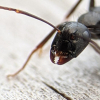
|
||
Ant Keeping →
Ant Keeping Journals →
Ants_Dakota's Camponotus sp. JournalStarted by Ants_Dakota , Jul 13 2025 |
|
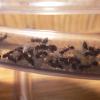
|
||
Ant Keeping →
Ant Keeping Journals →
Strickys Formica JournalStarted by stricky_ants , Jun 21 2025 |
|
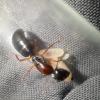
|
||
Ant Keeping →
Ant Keeping Journals →
AntTx's Camponotus sansabeanus JournalStarted by AntsTx , Jun 17 2025 |
|
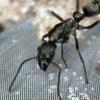
|
||
Ant Keeping →
Ant Keeping Journals →
The Bark Battalion (Liometopum occidentale)Started by AntsGodzilla , Jun 3 2025 |
|
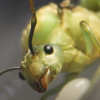
|
1 user(s) are reading this topic
0 members, 1 guests, 0 anonymous users



